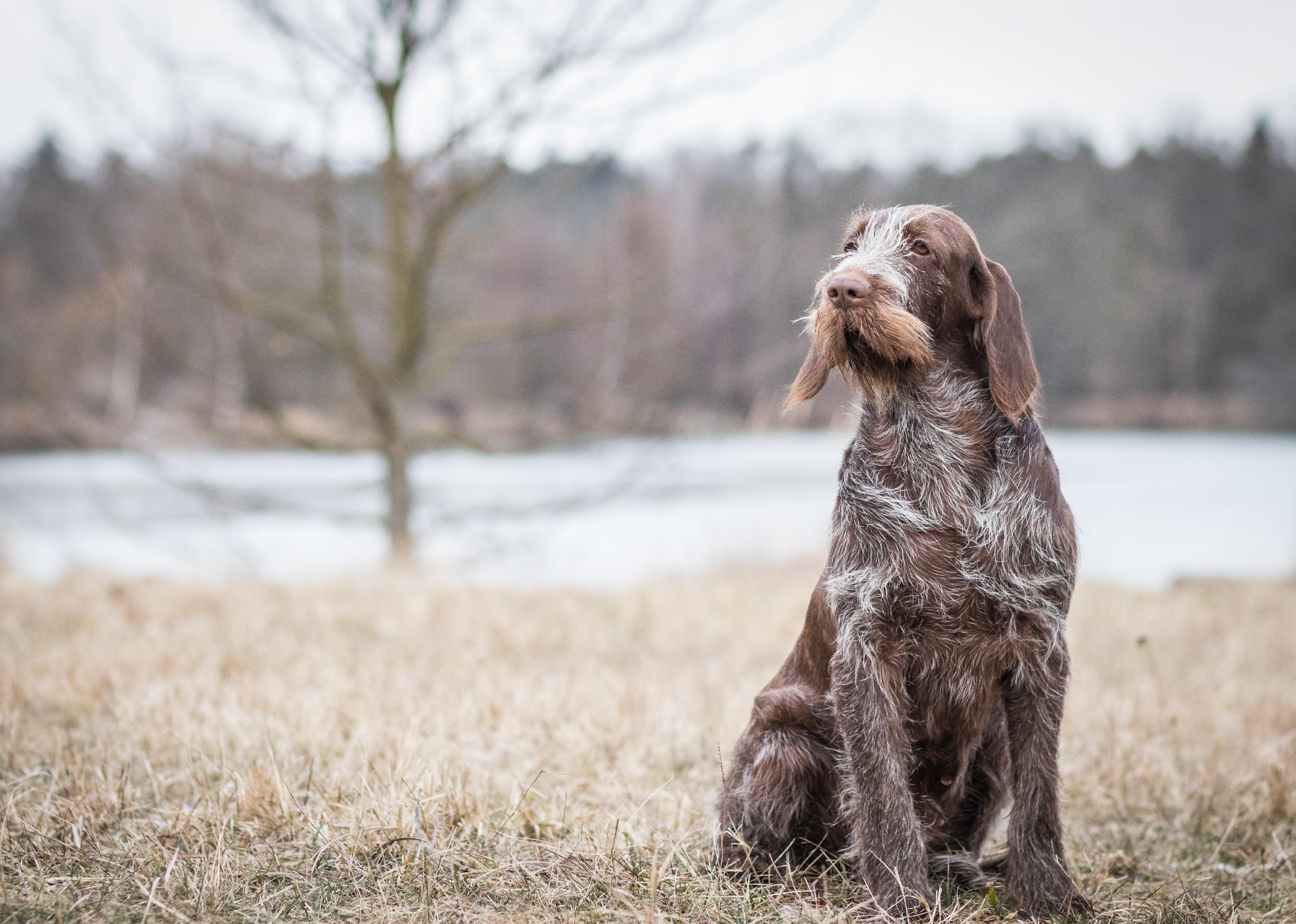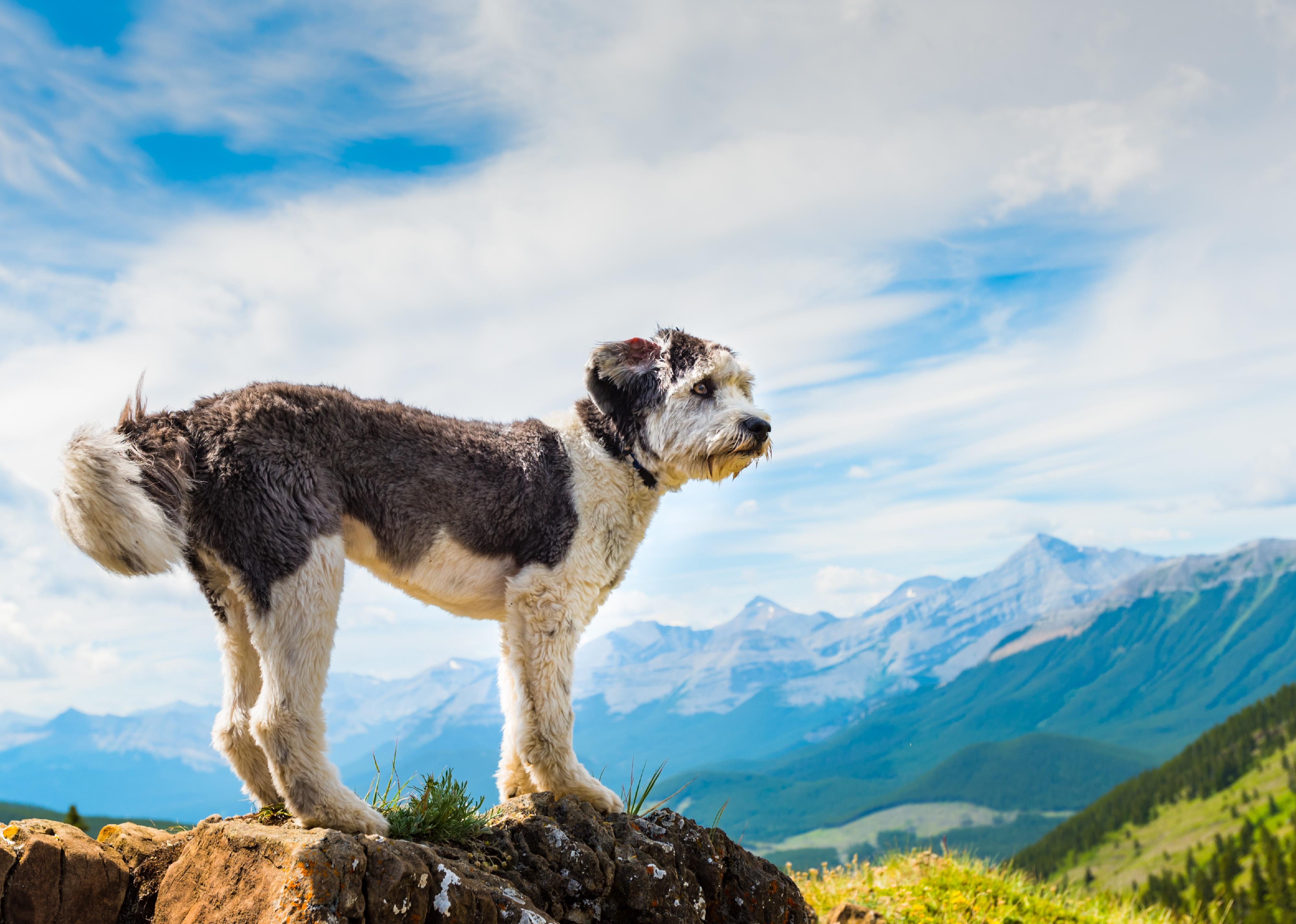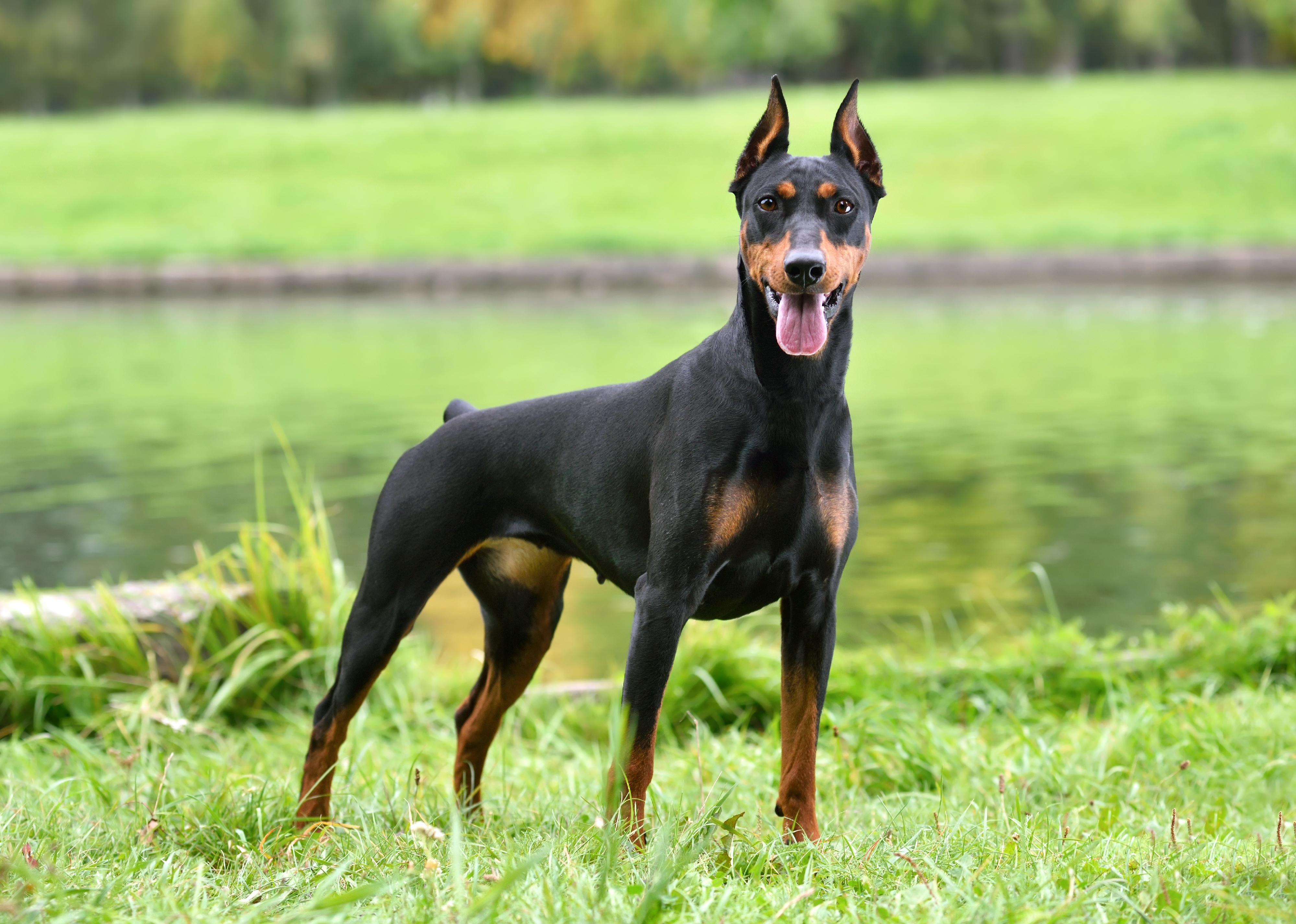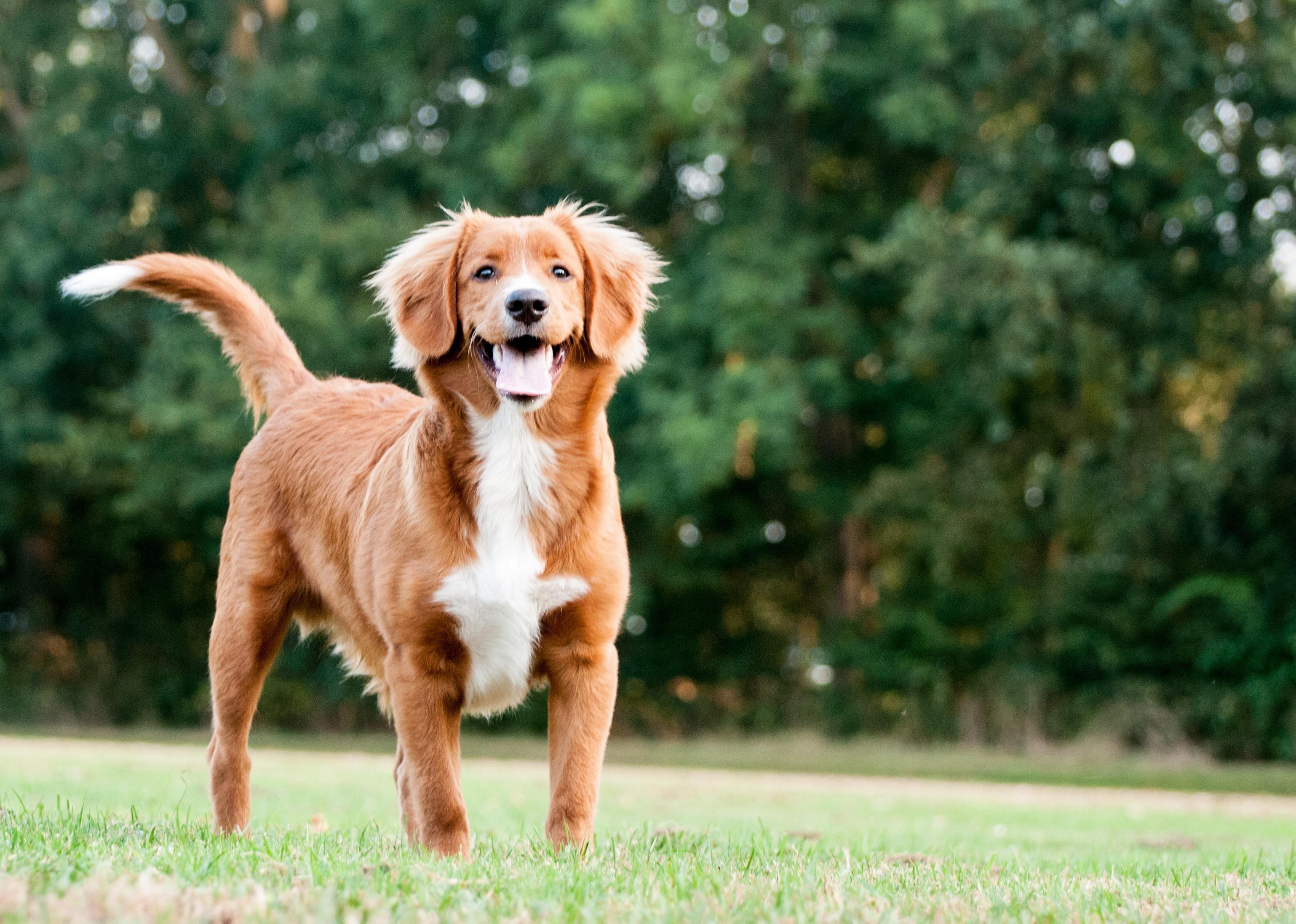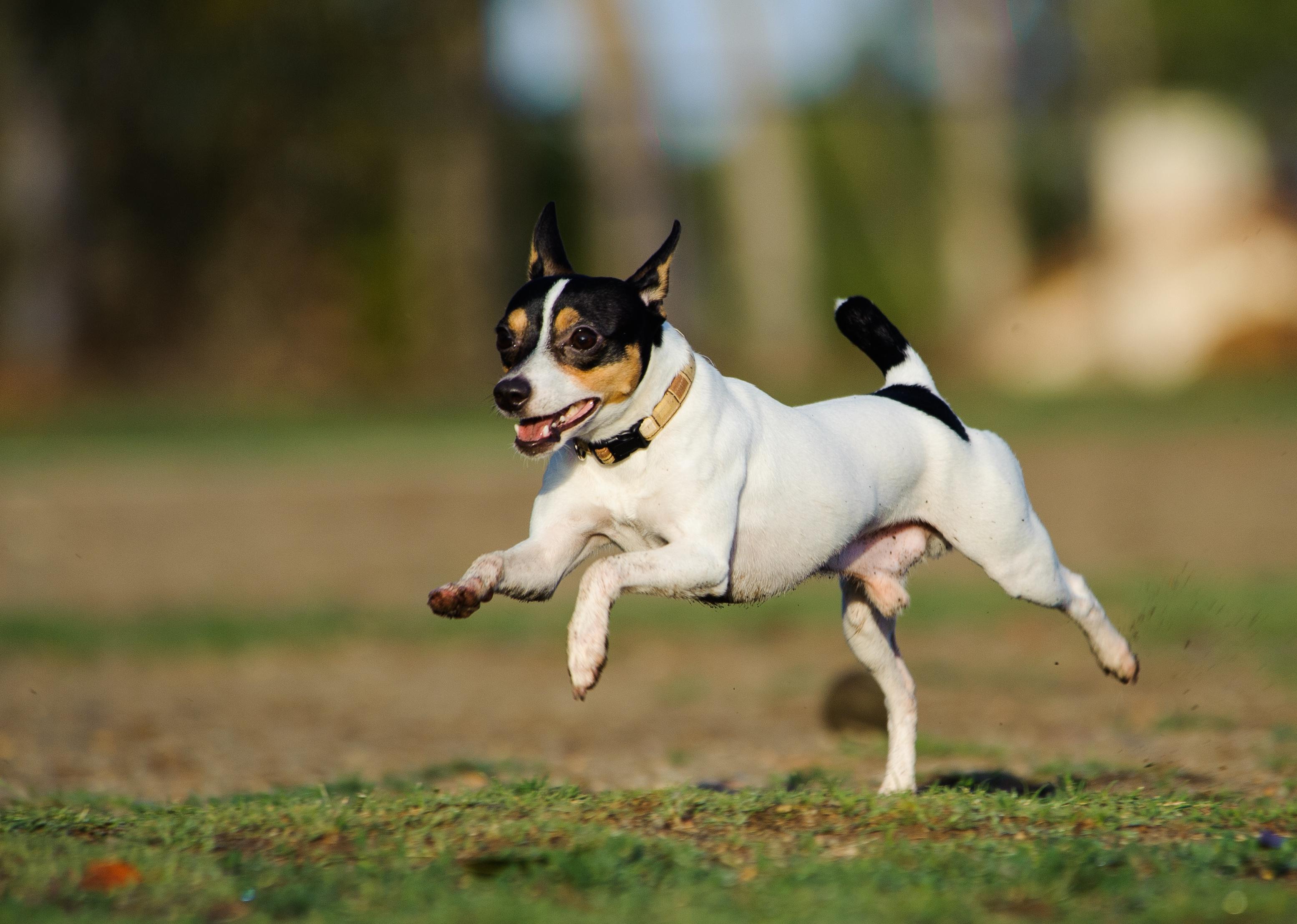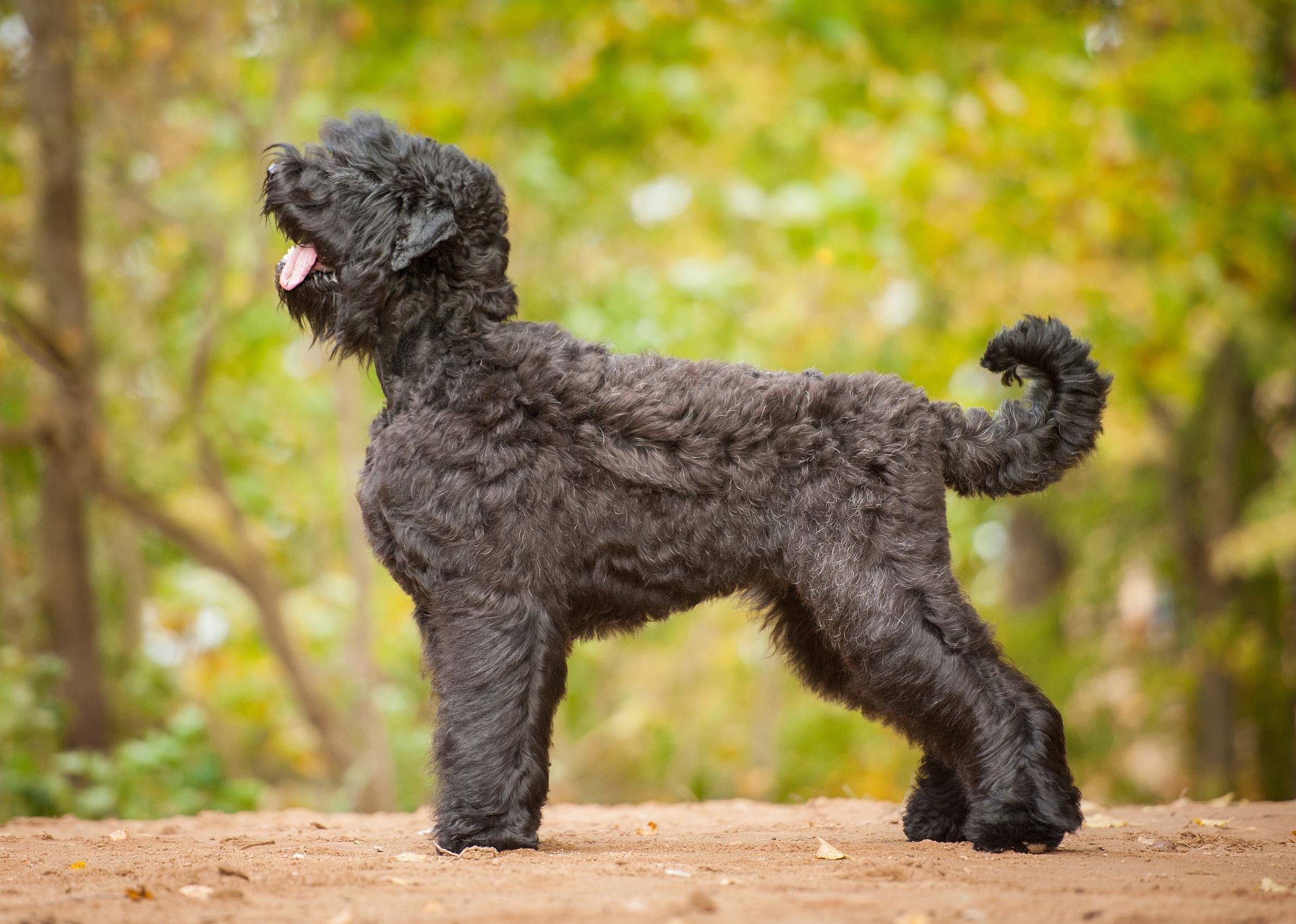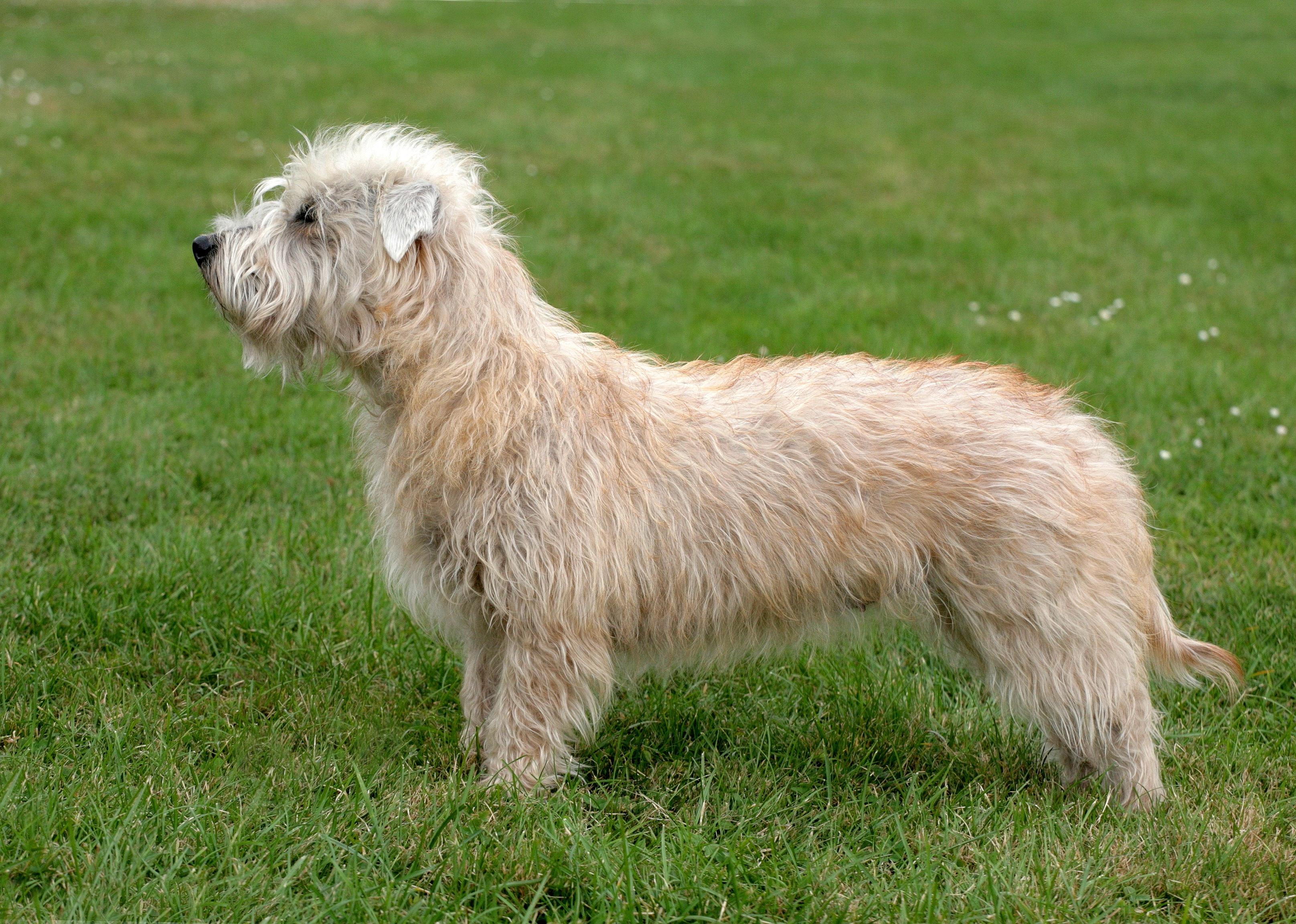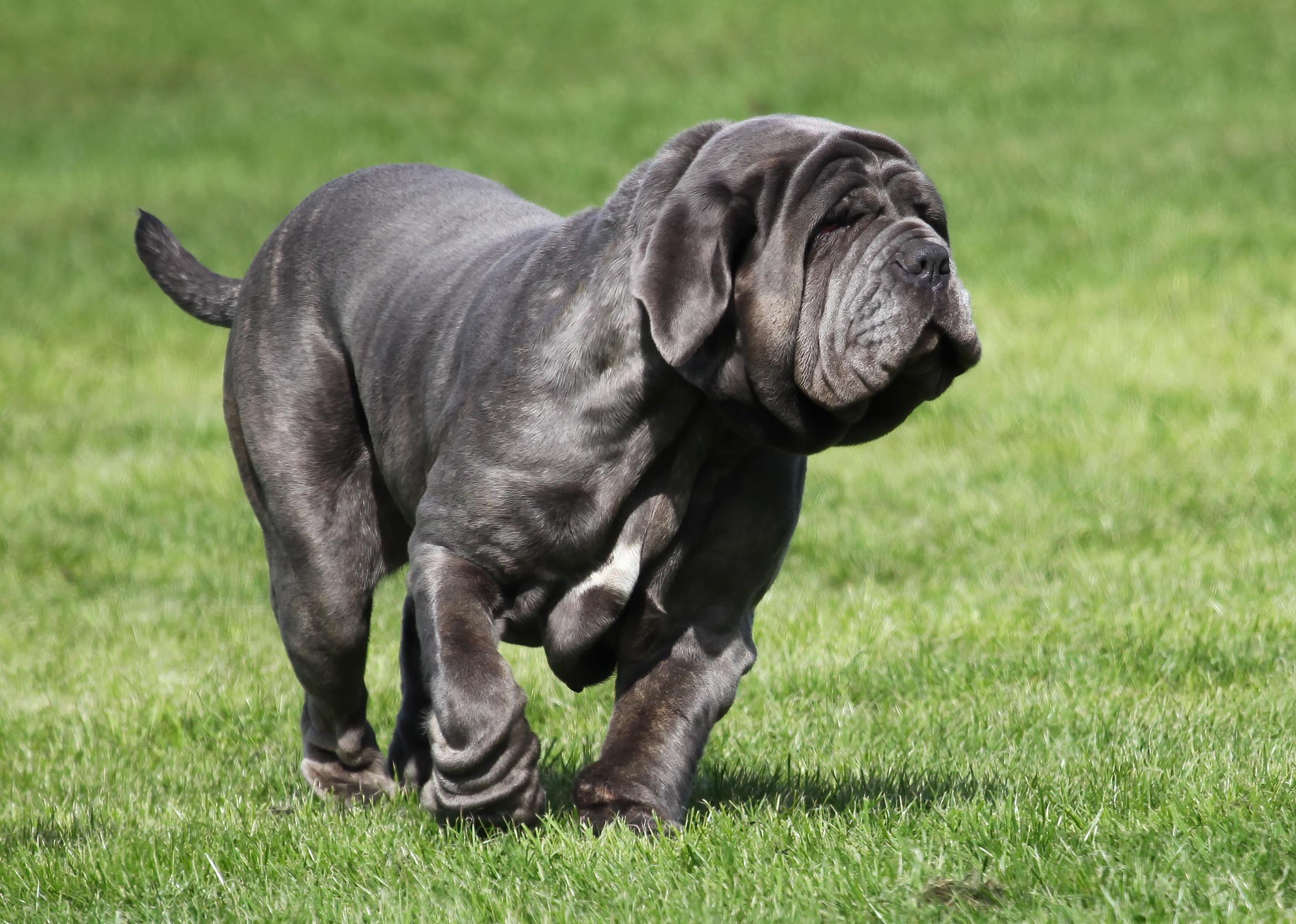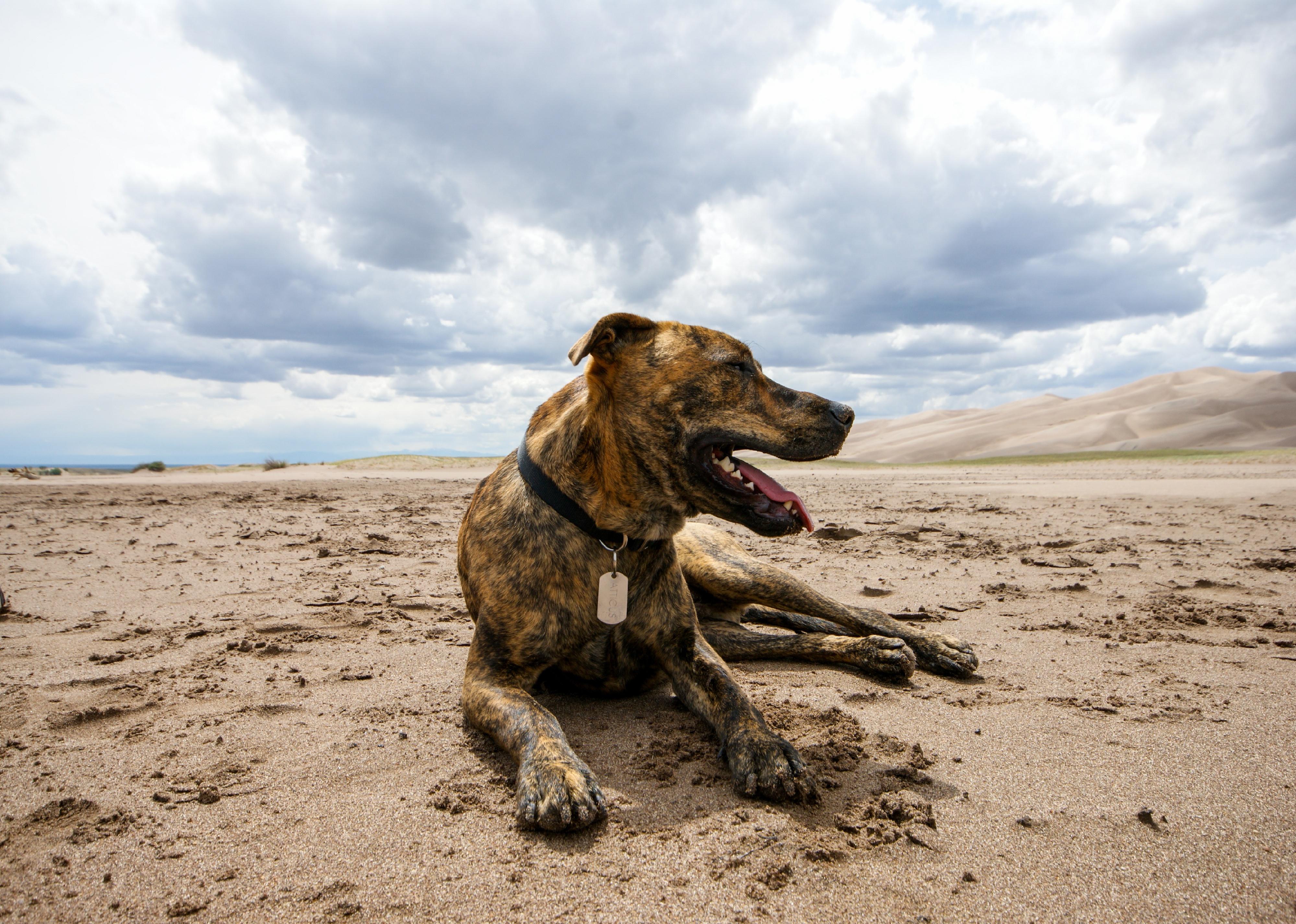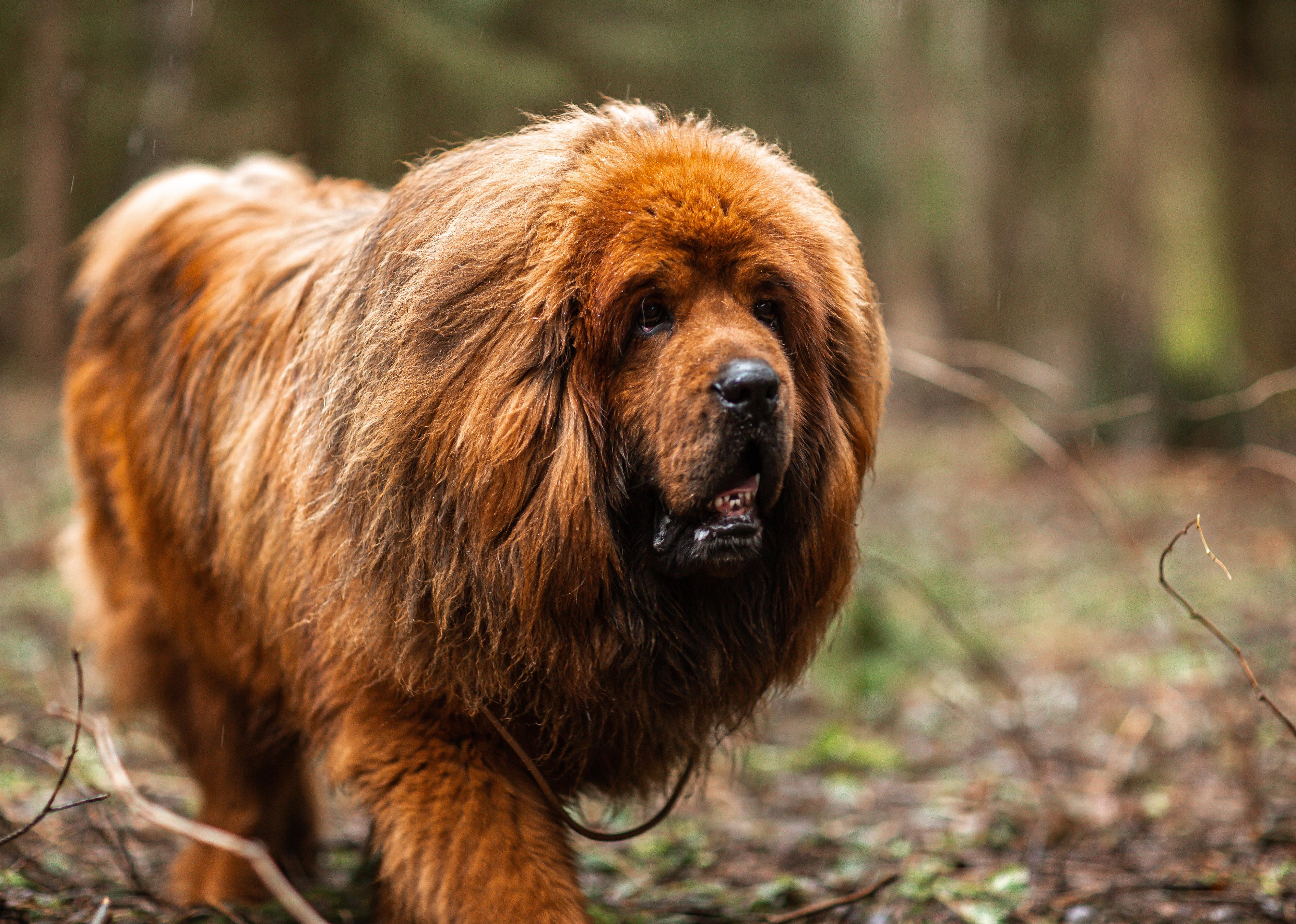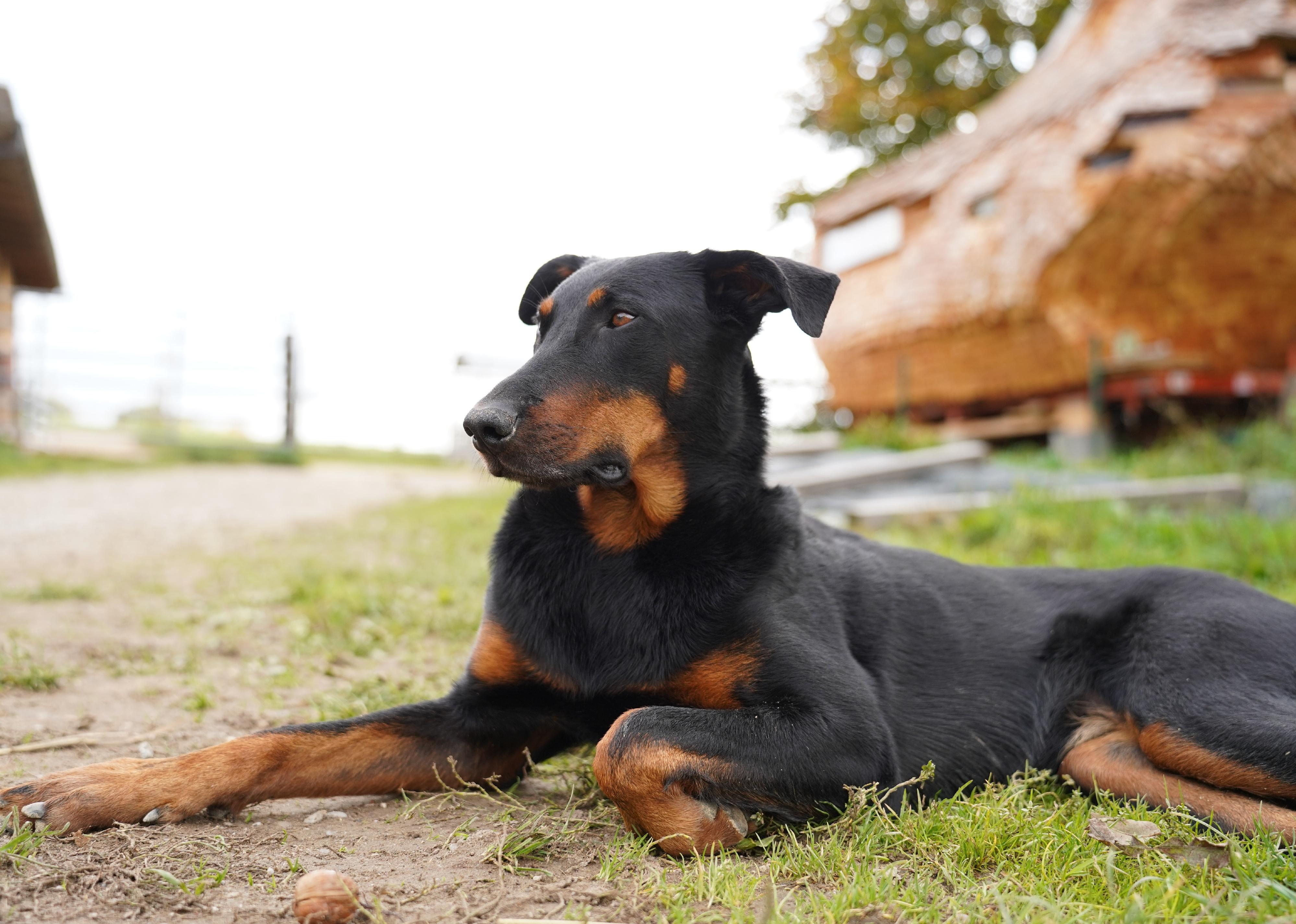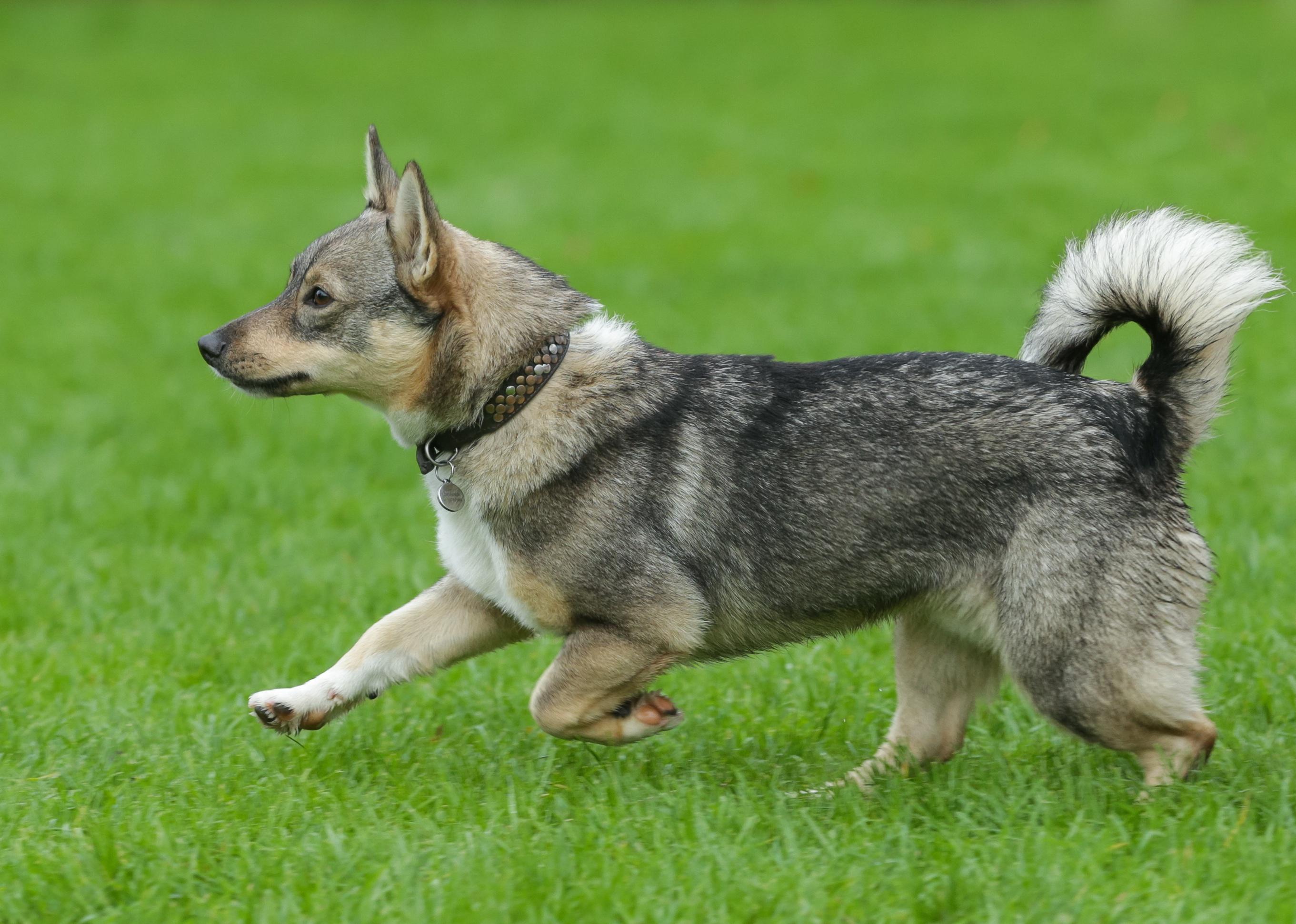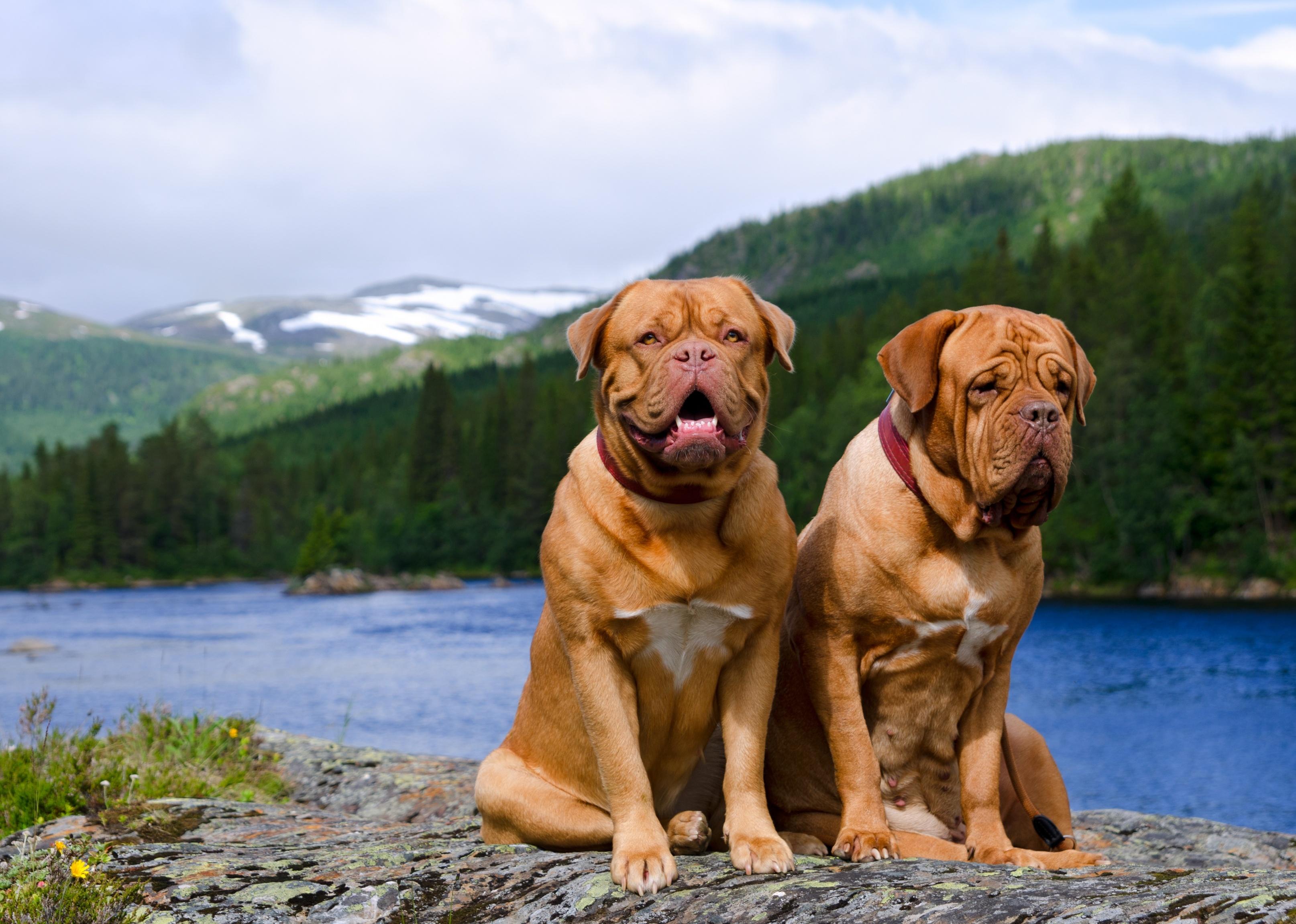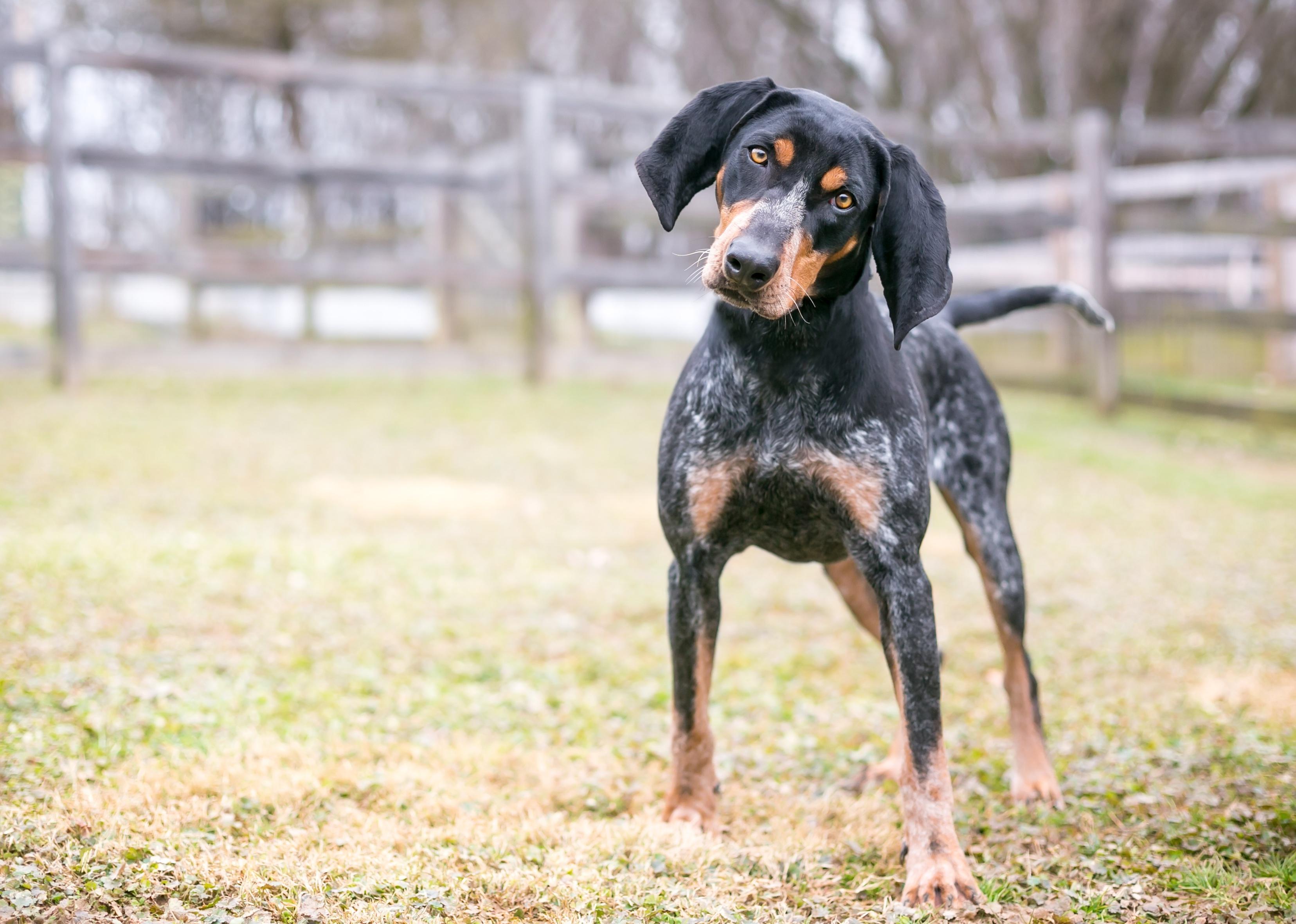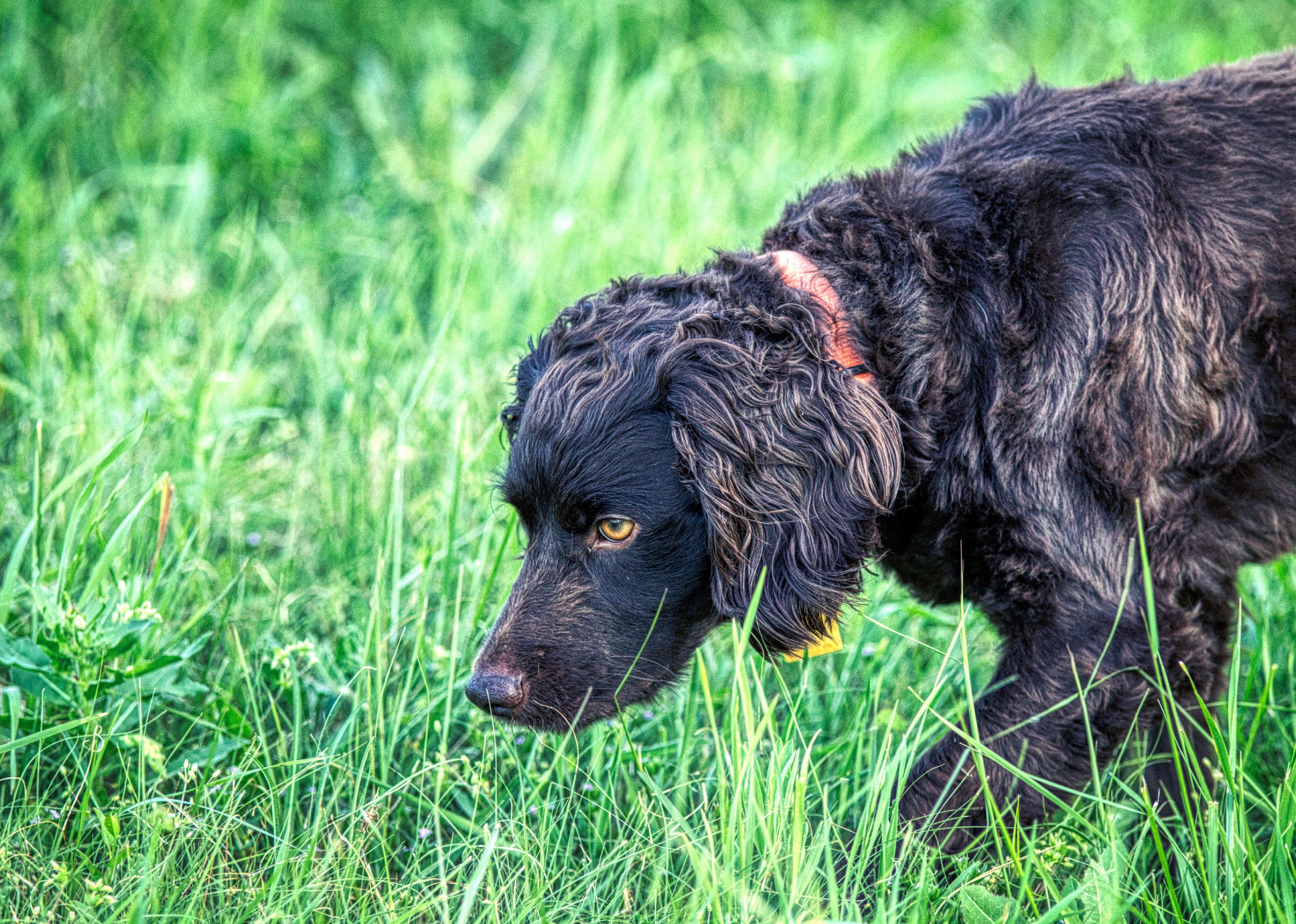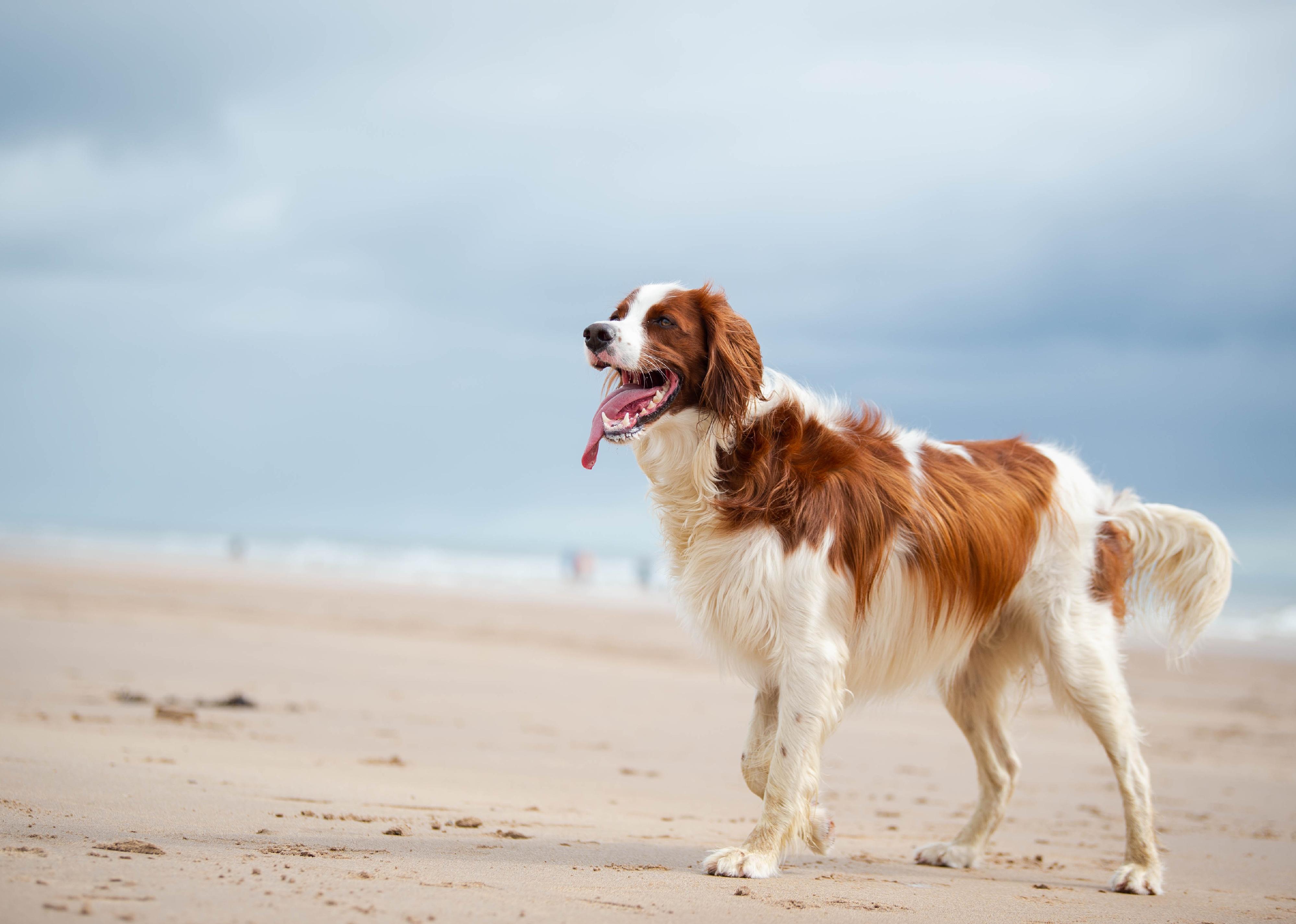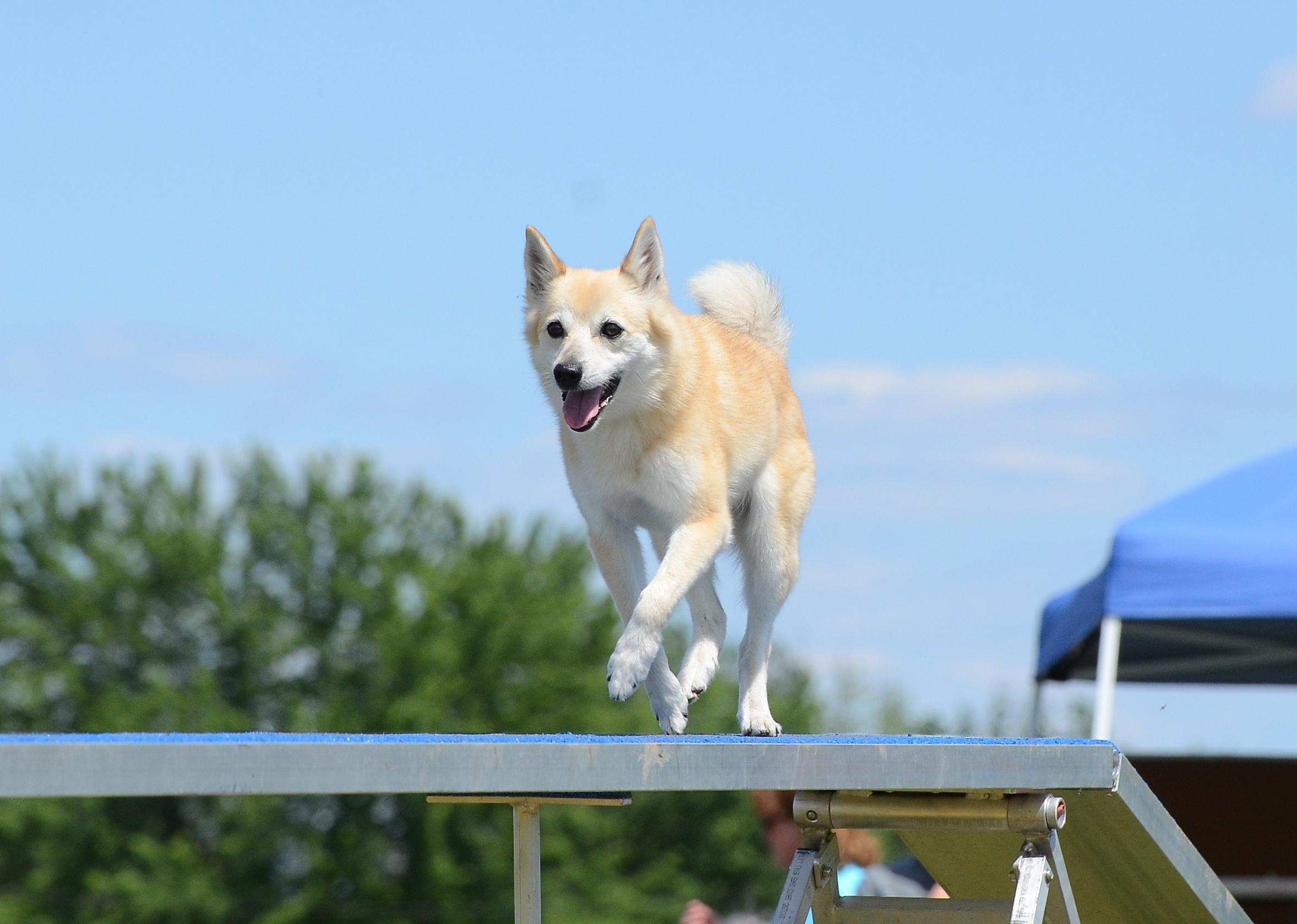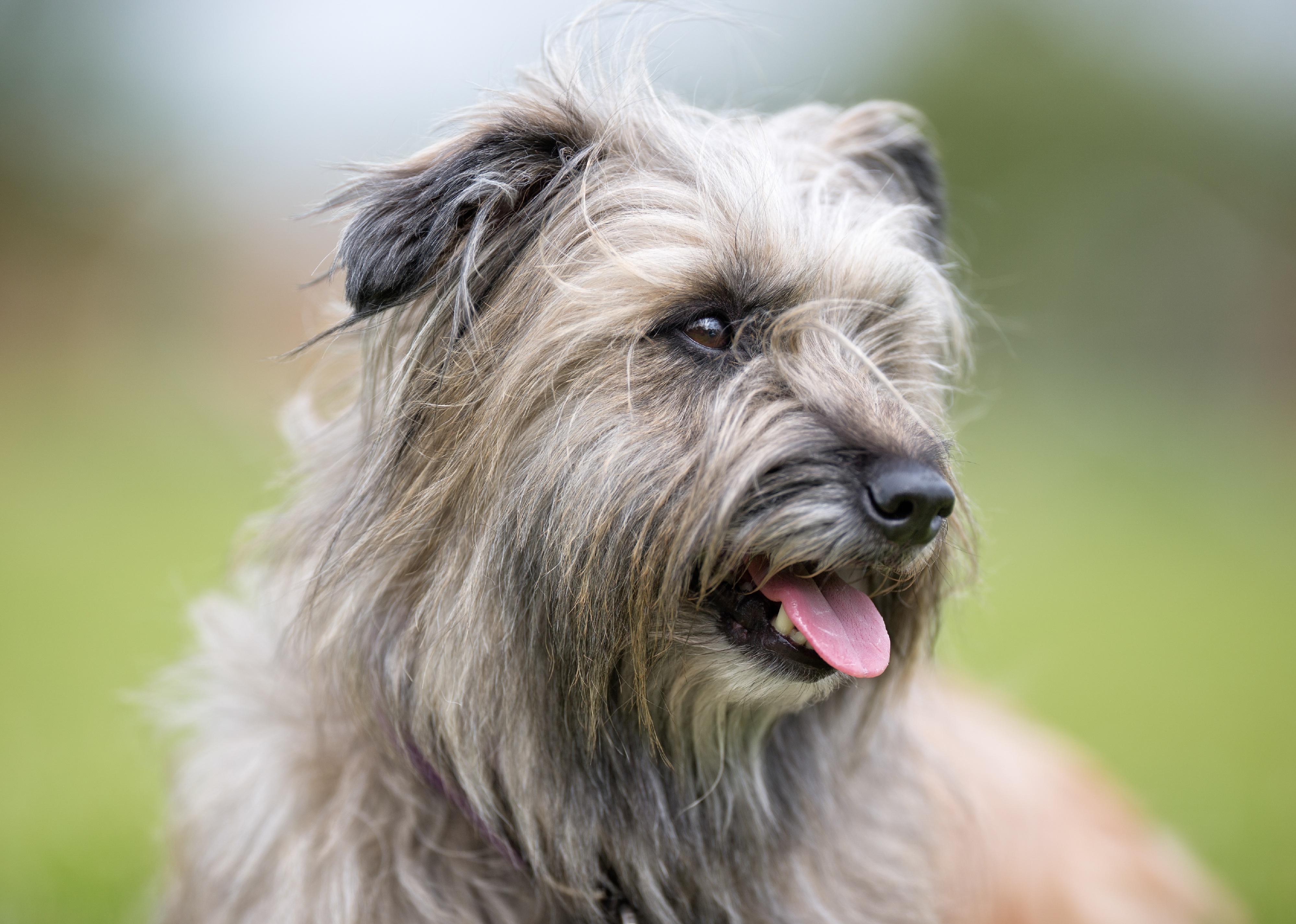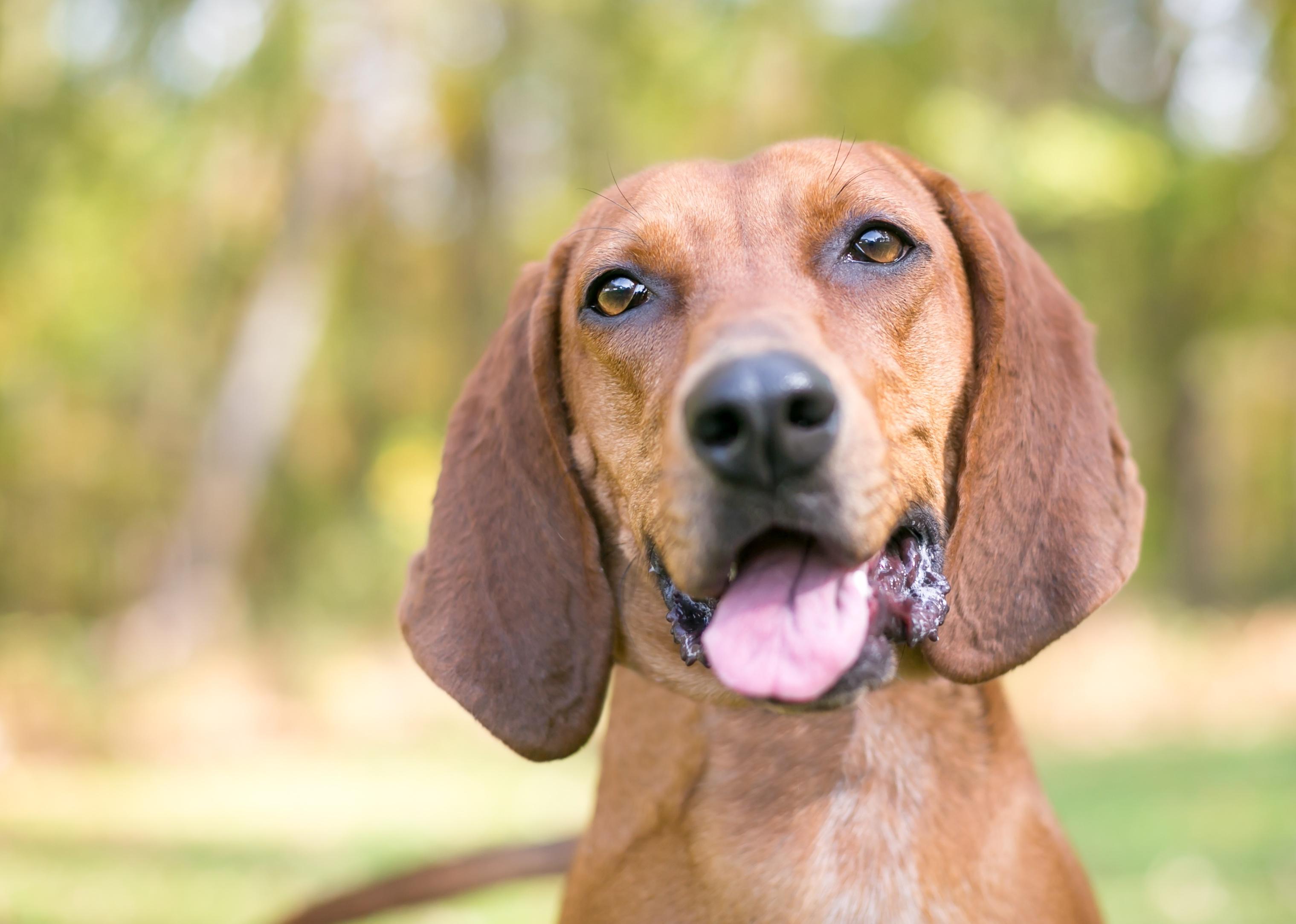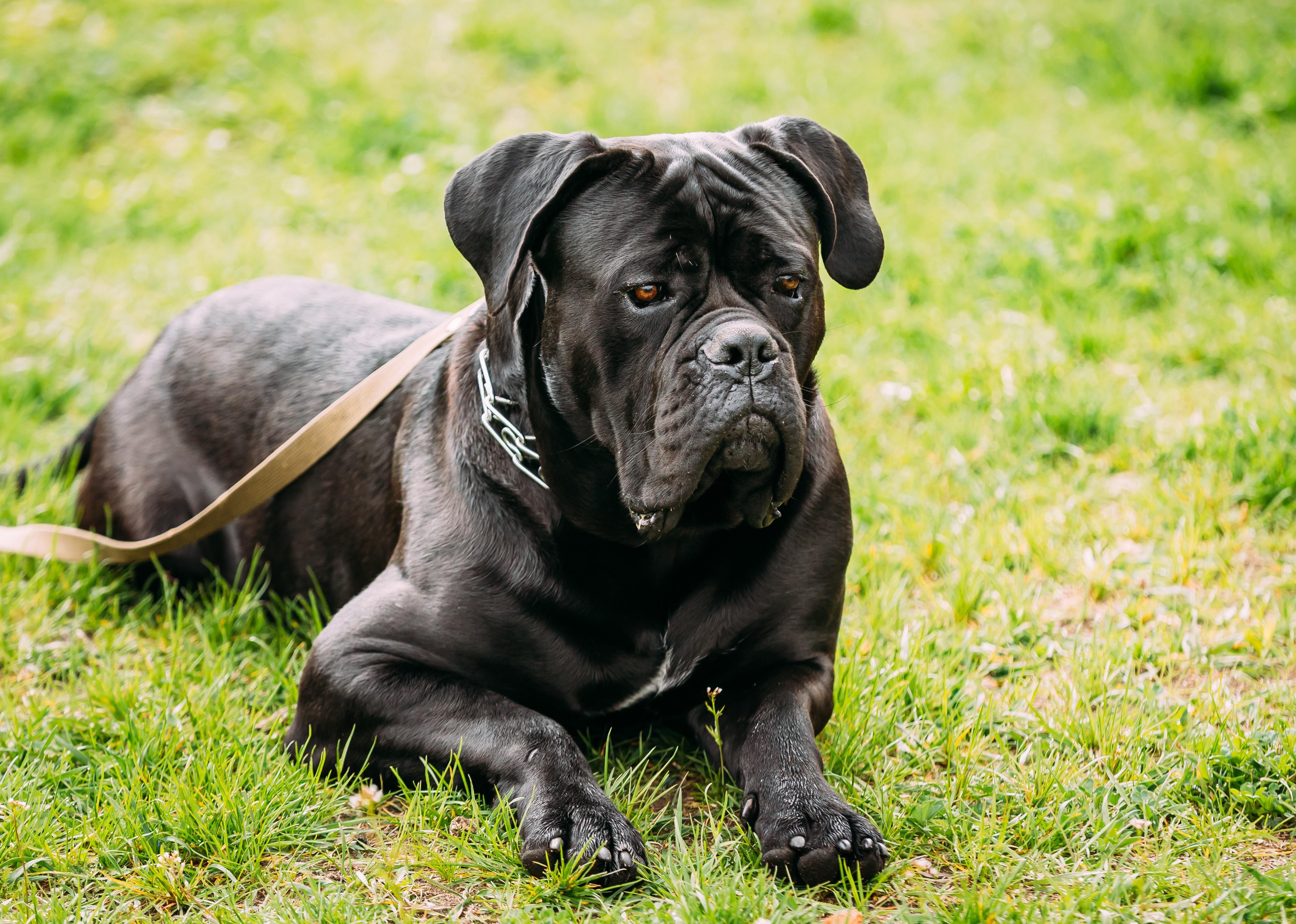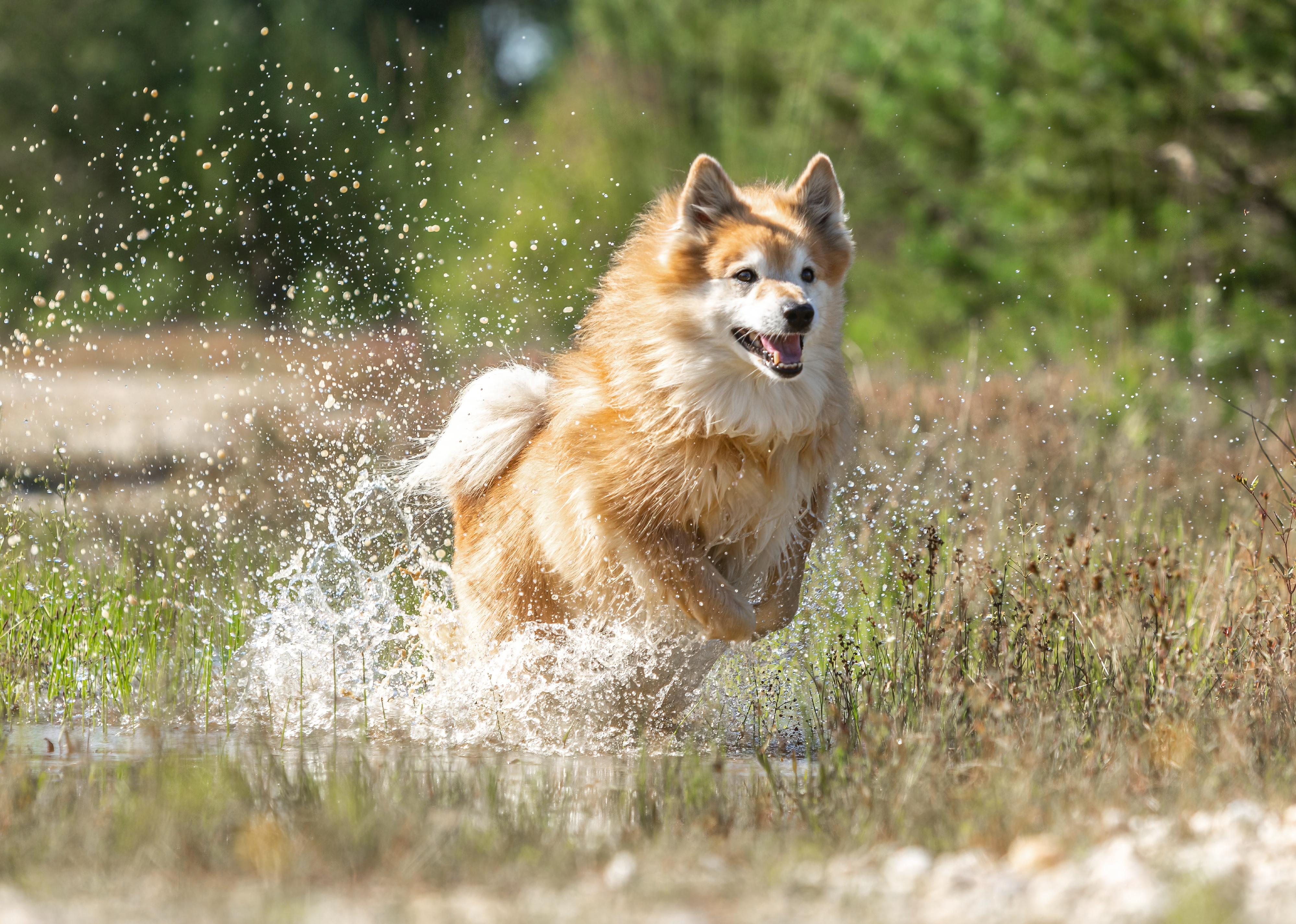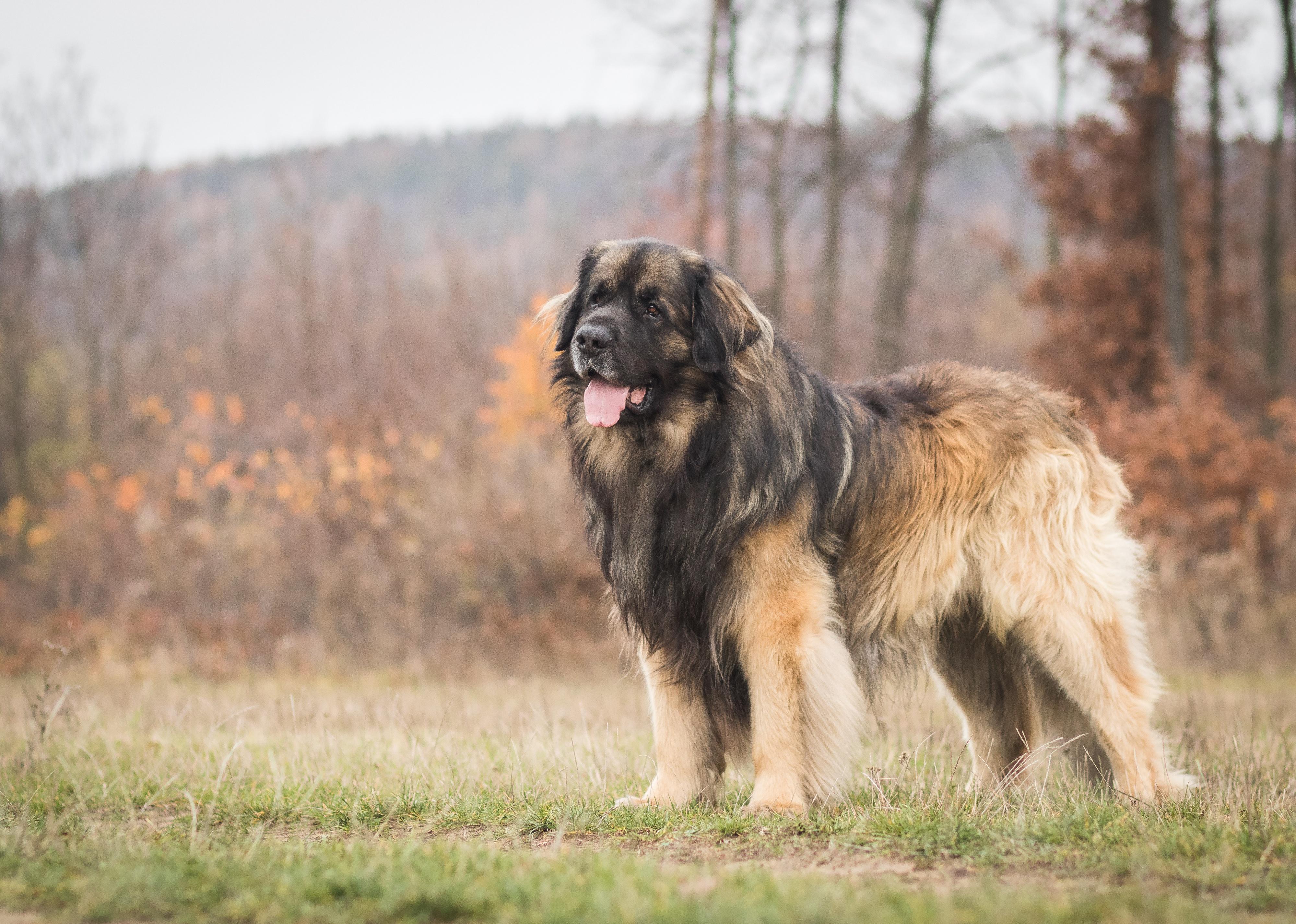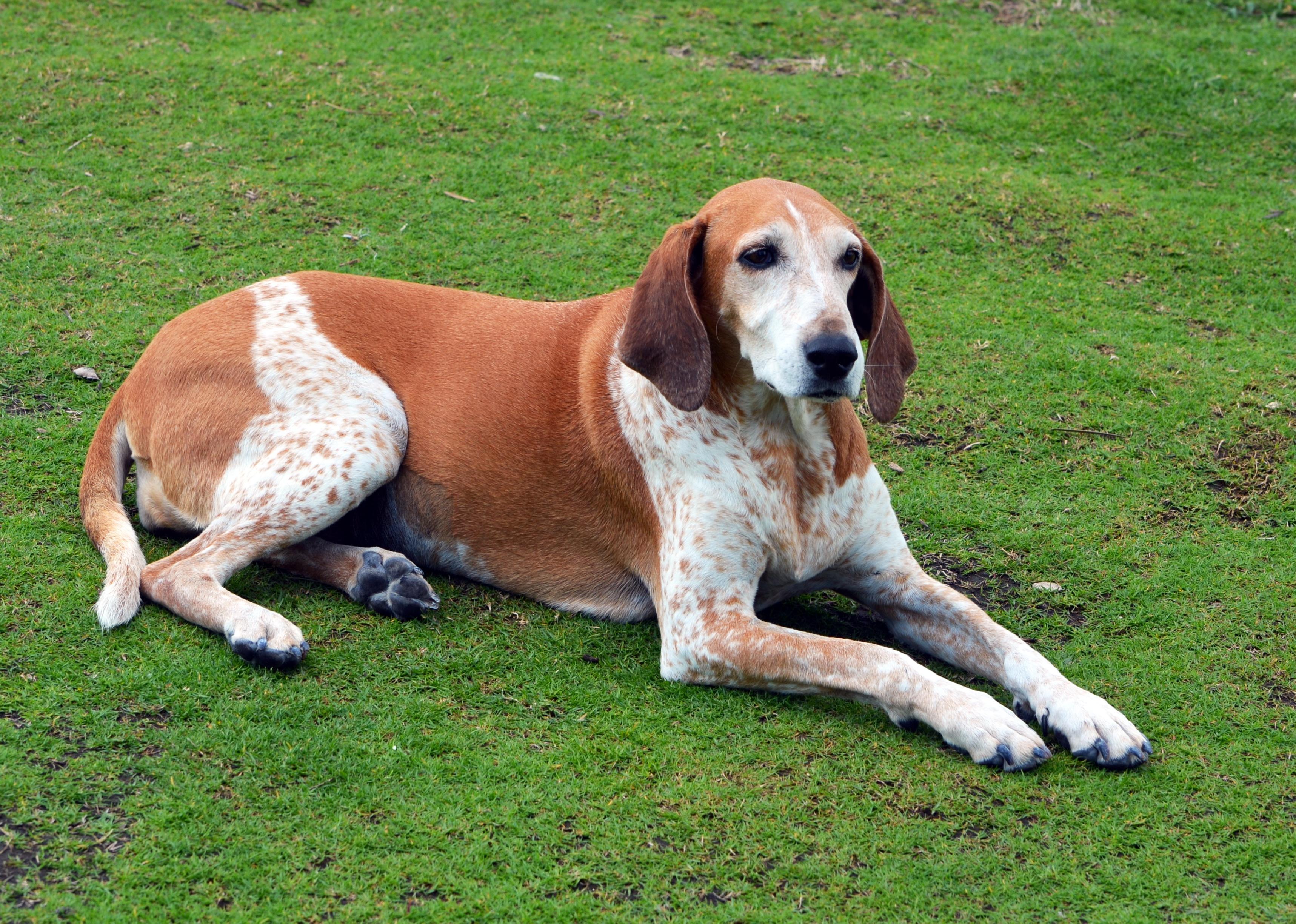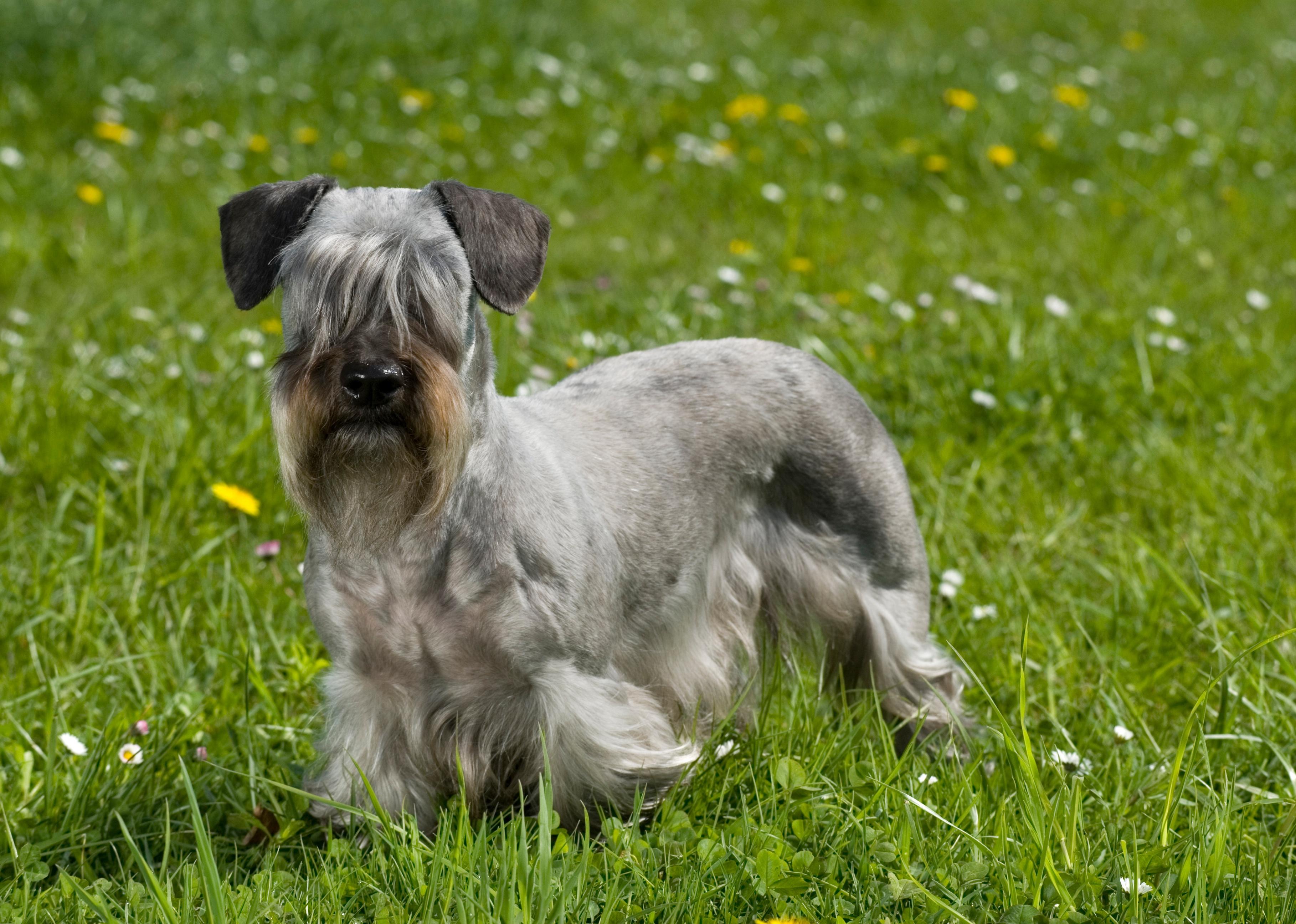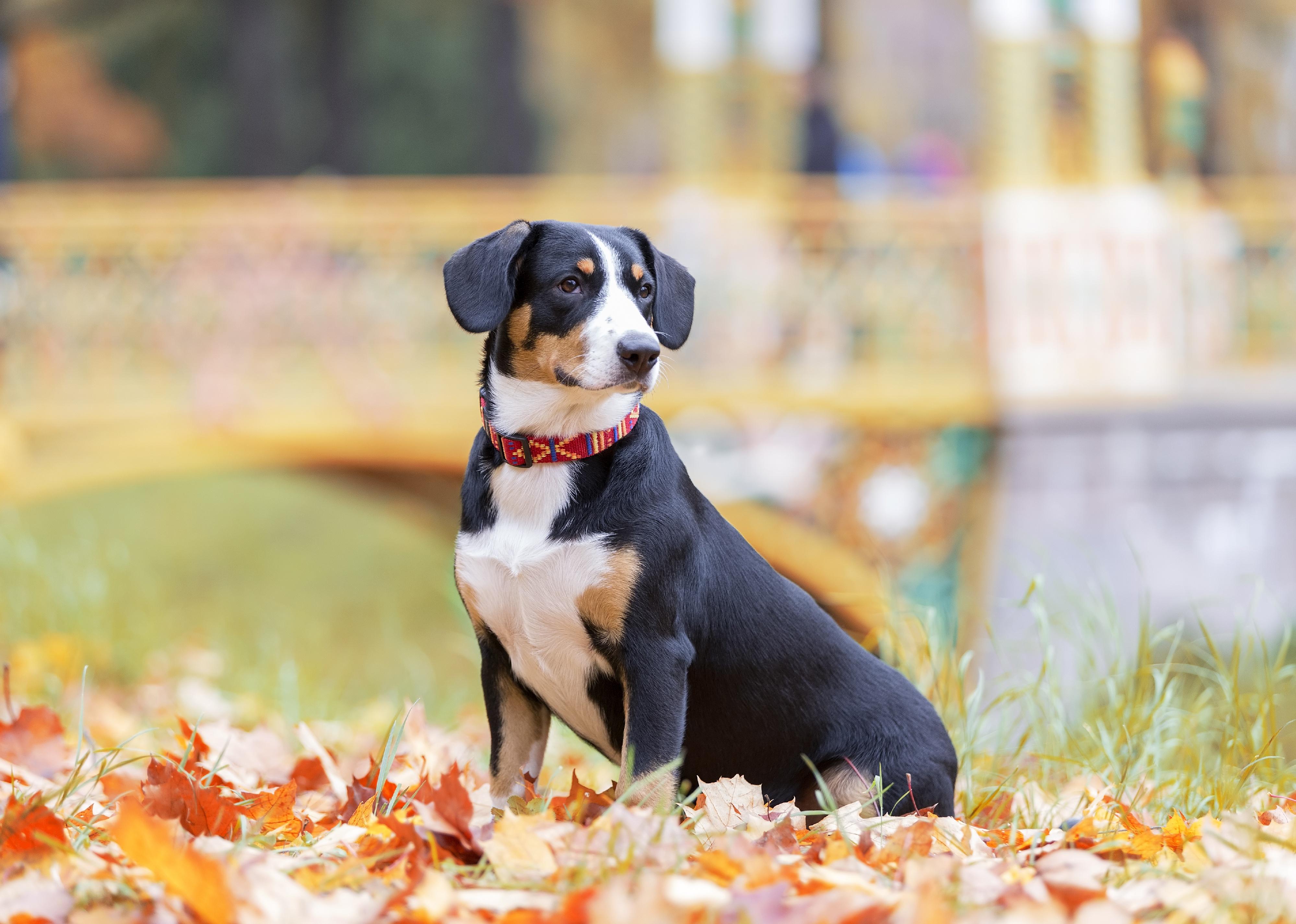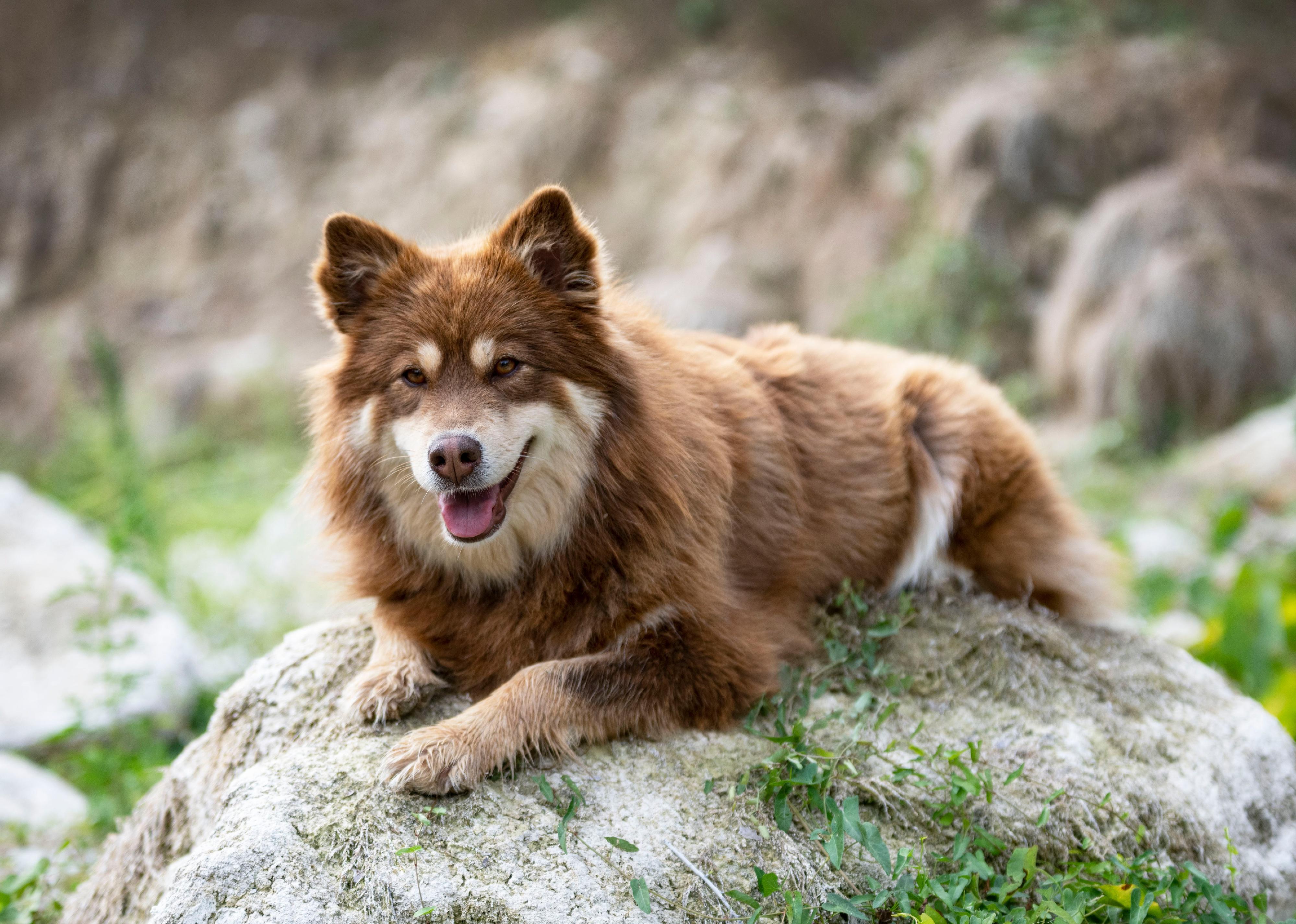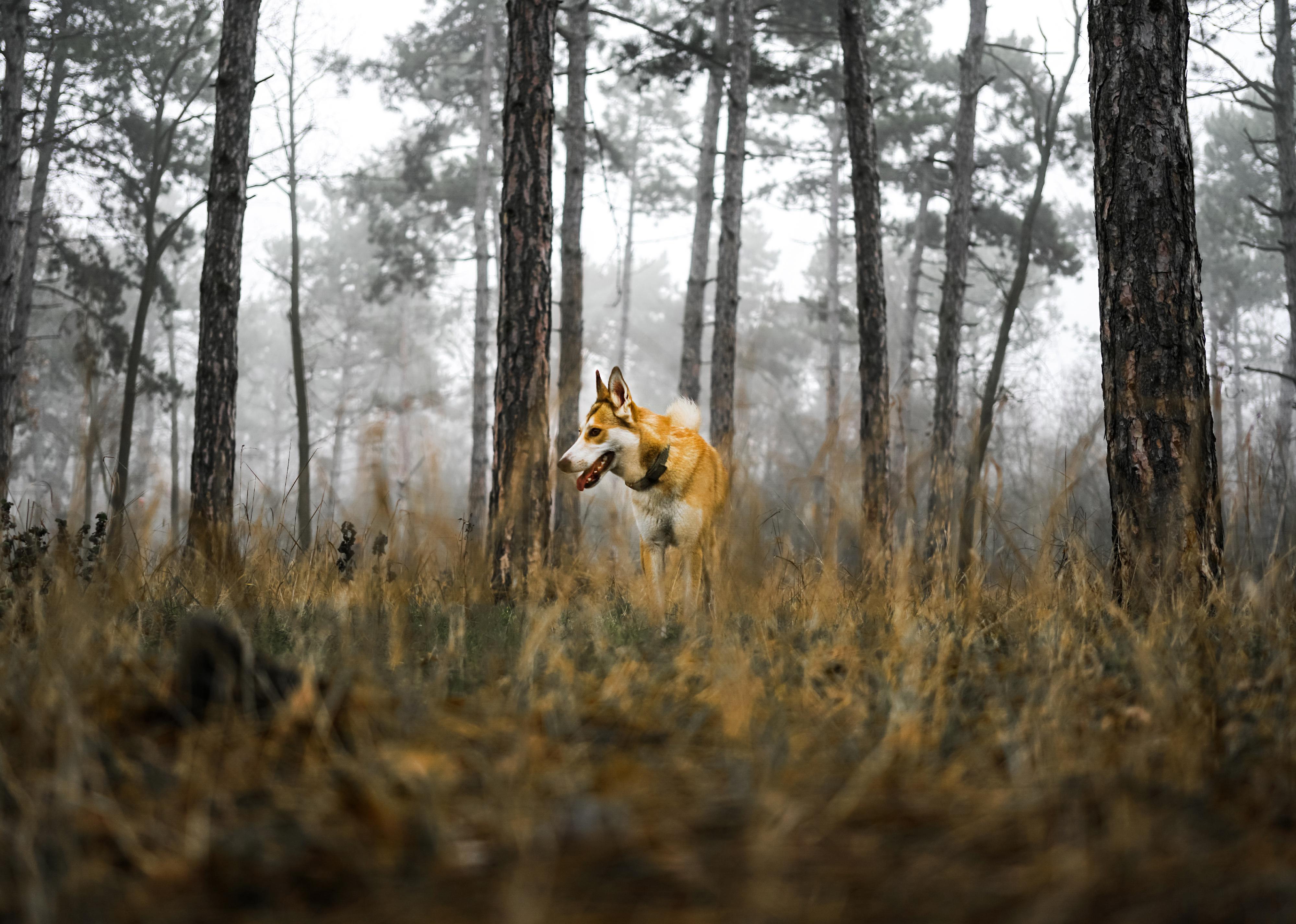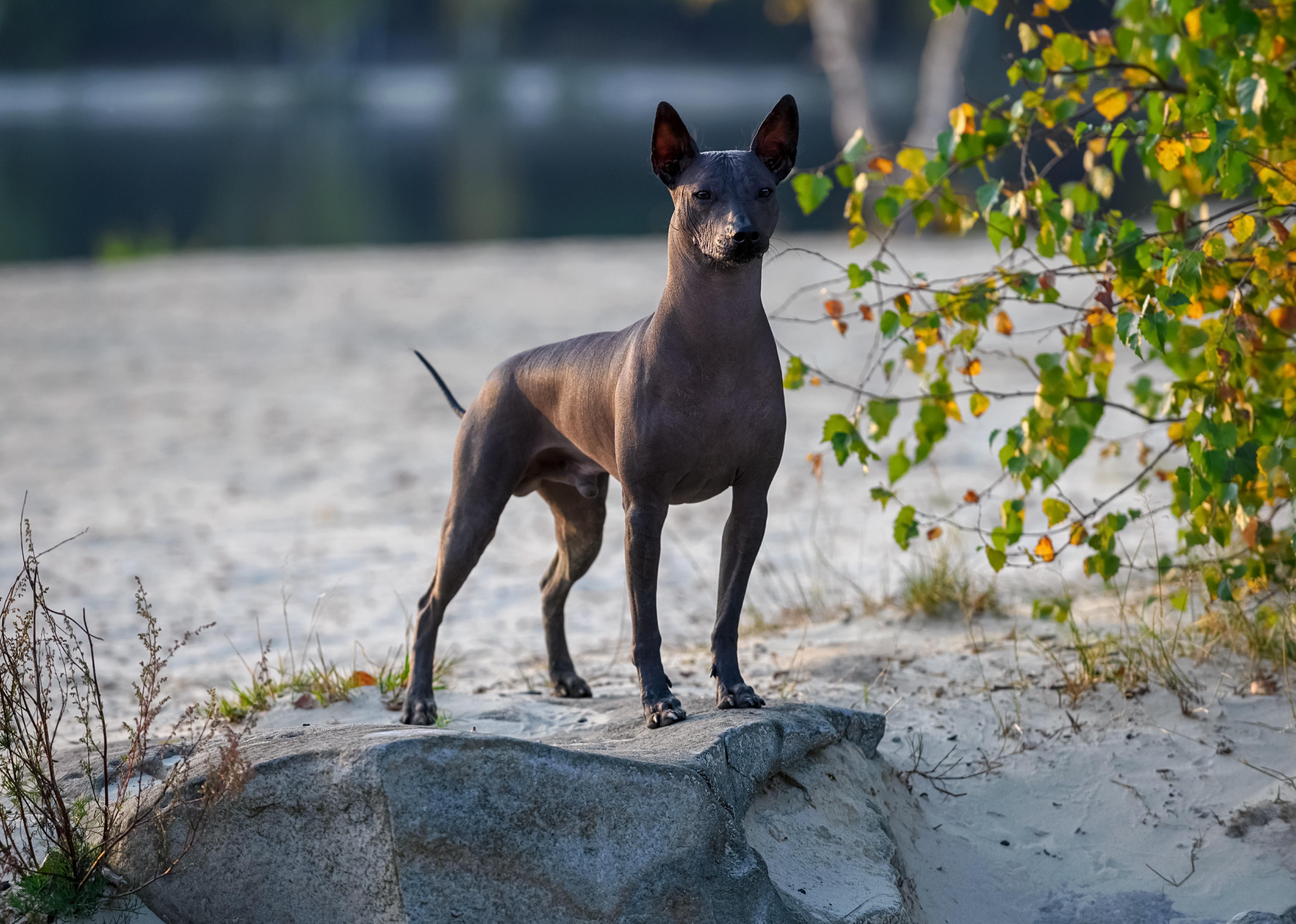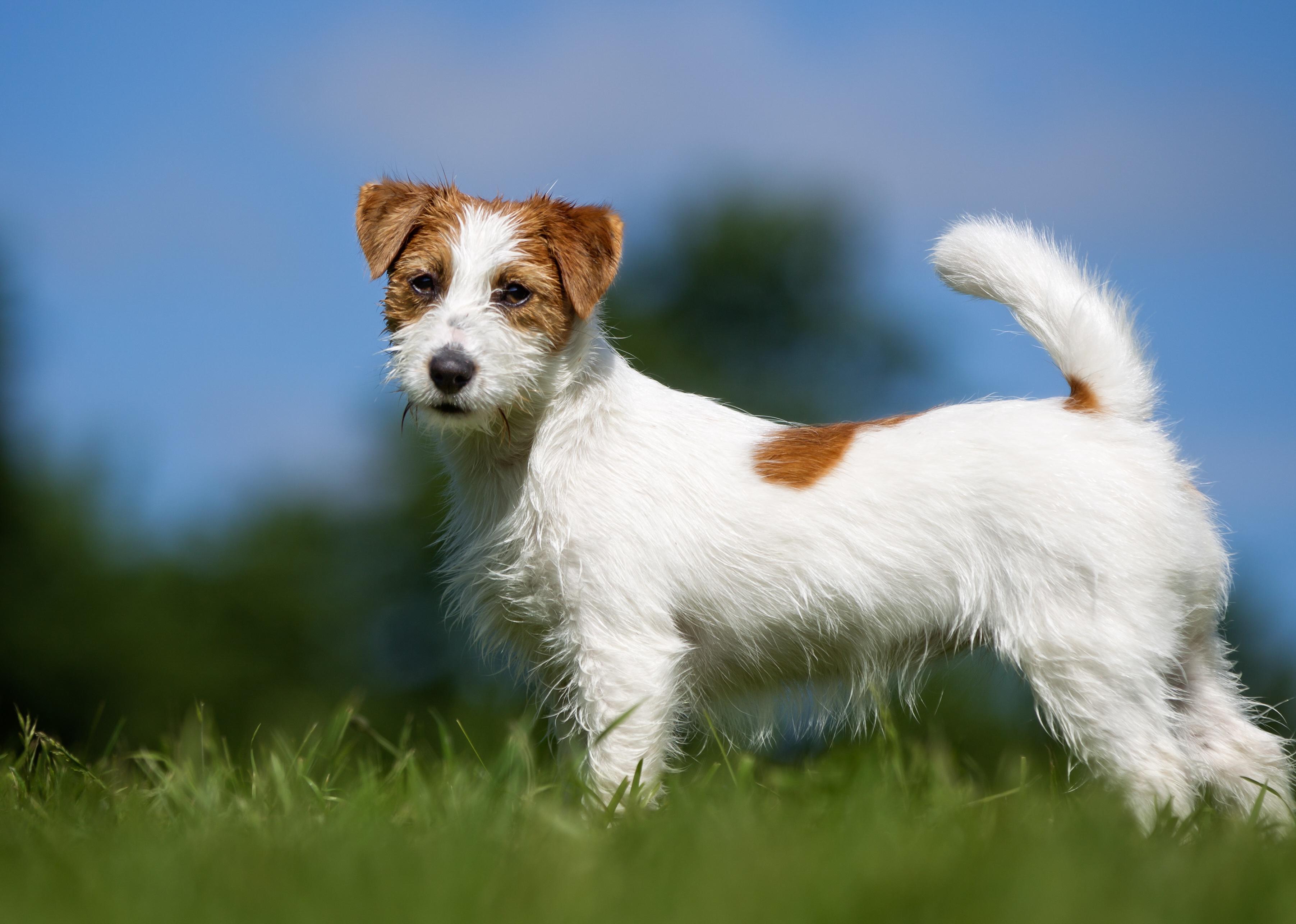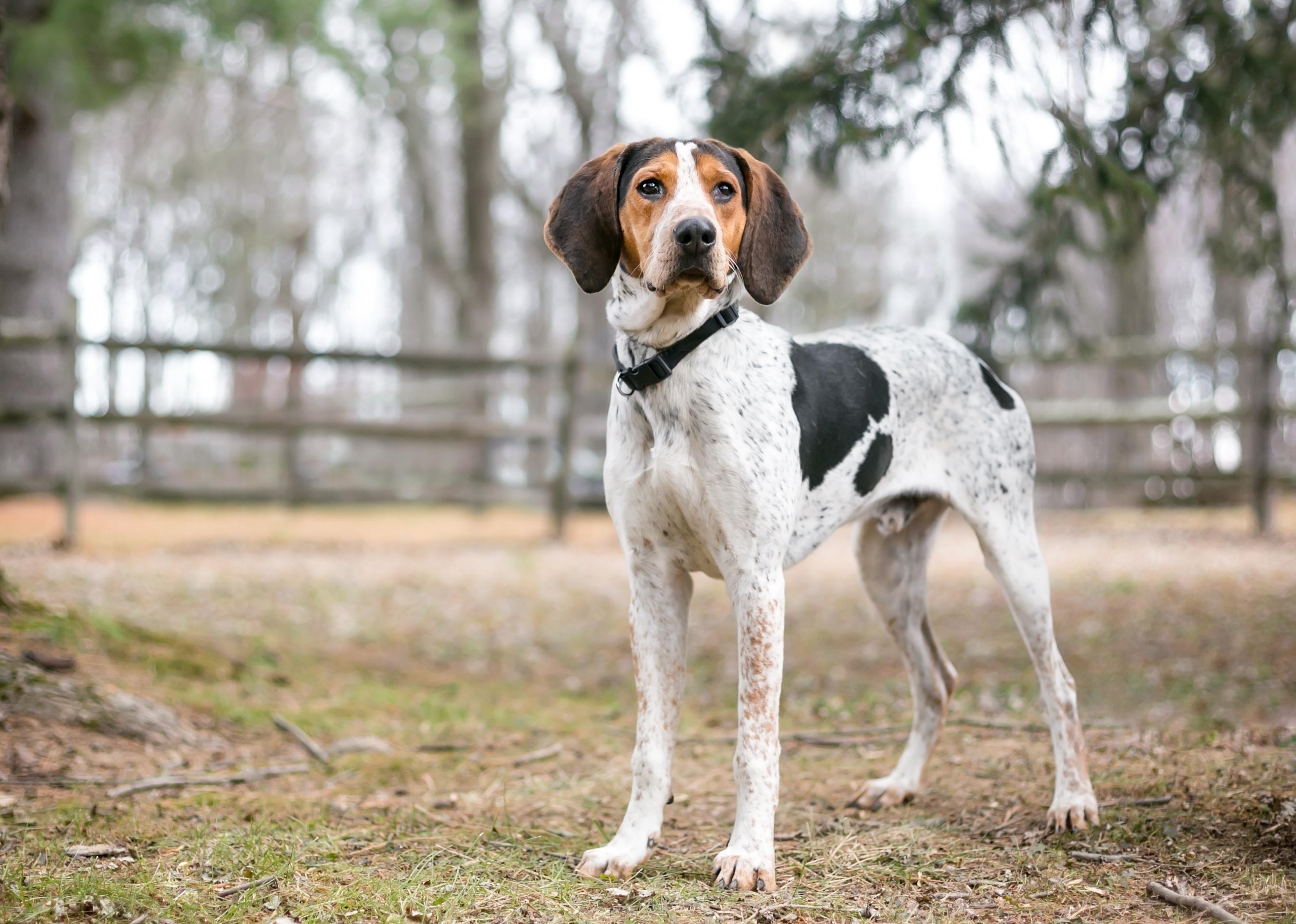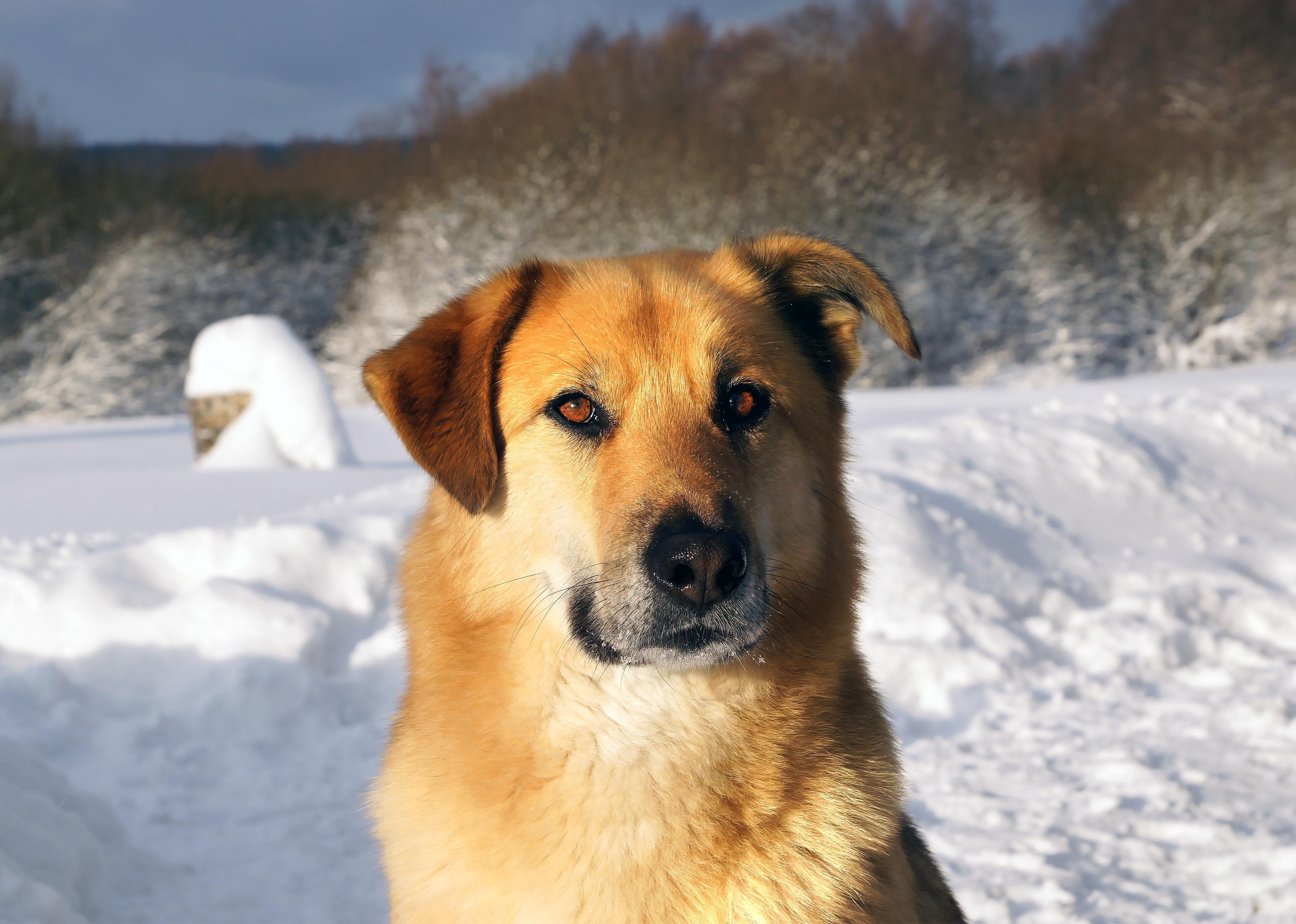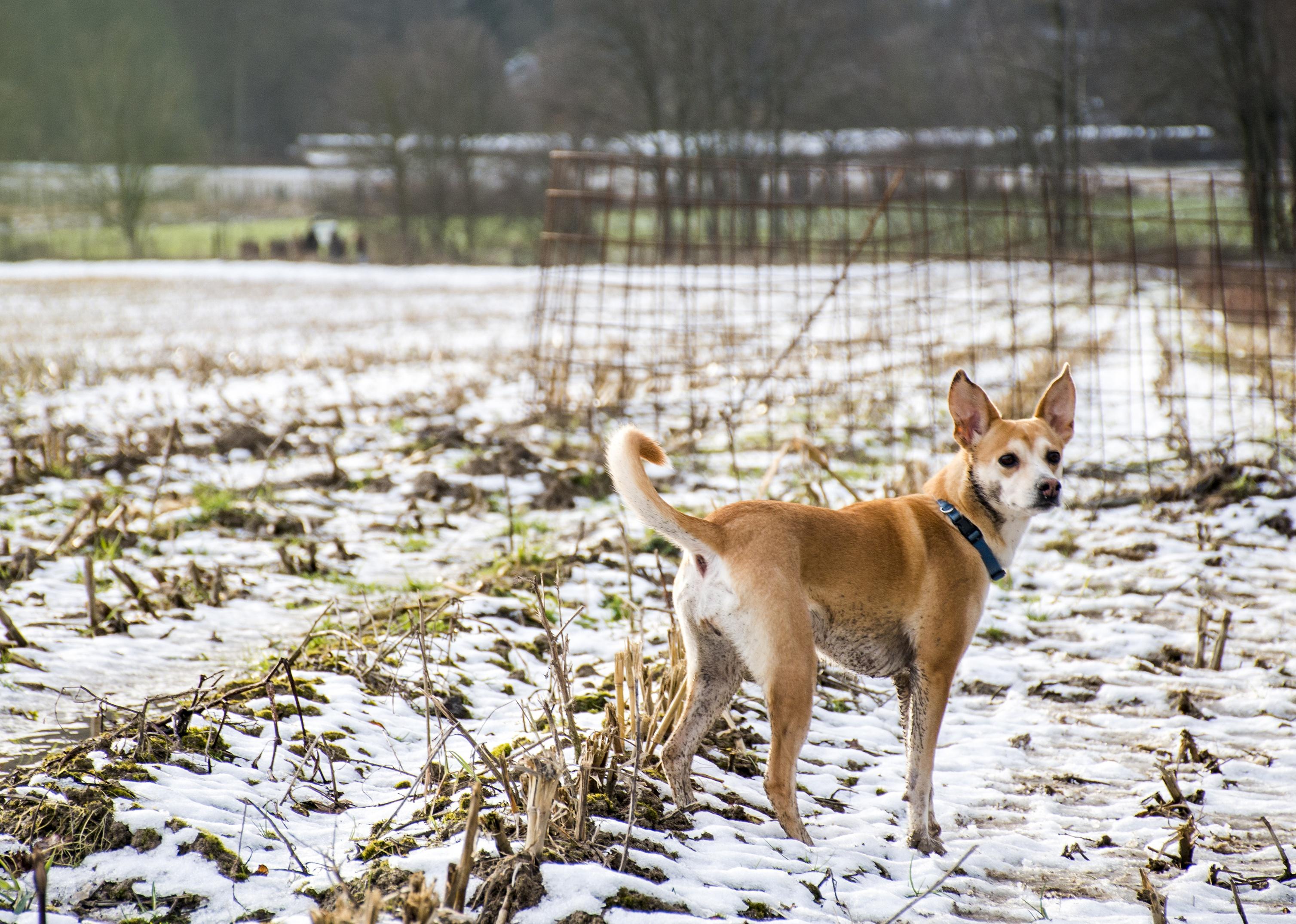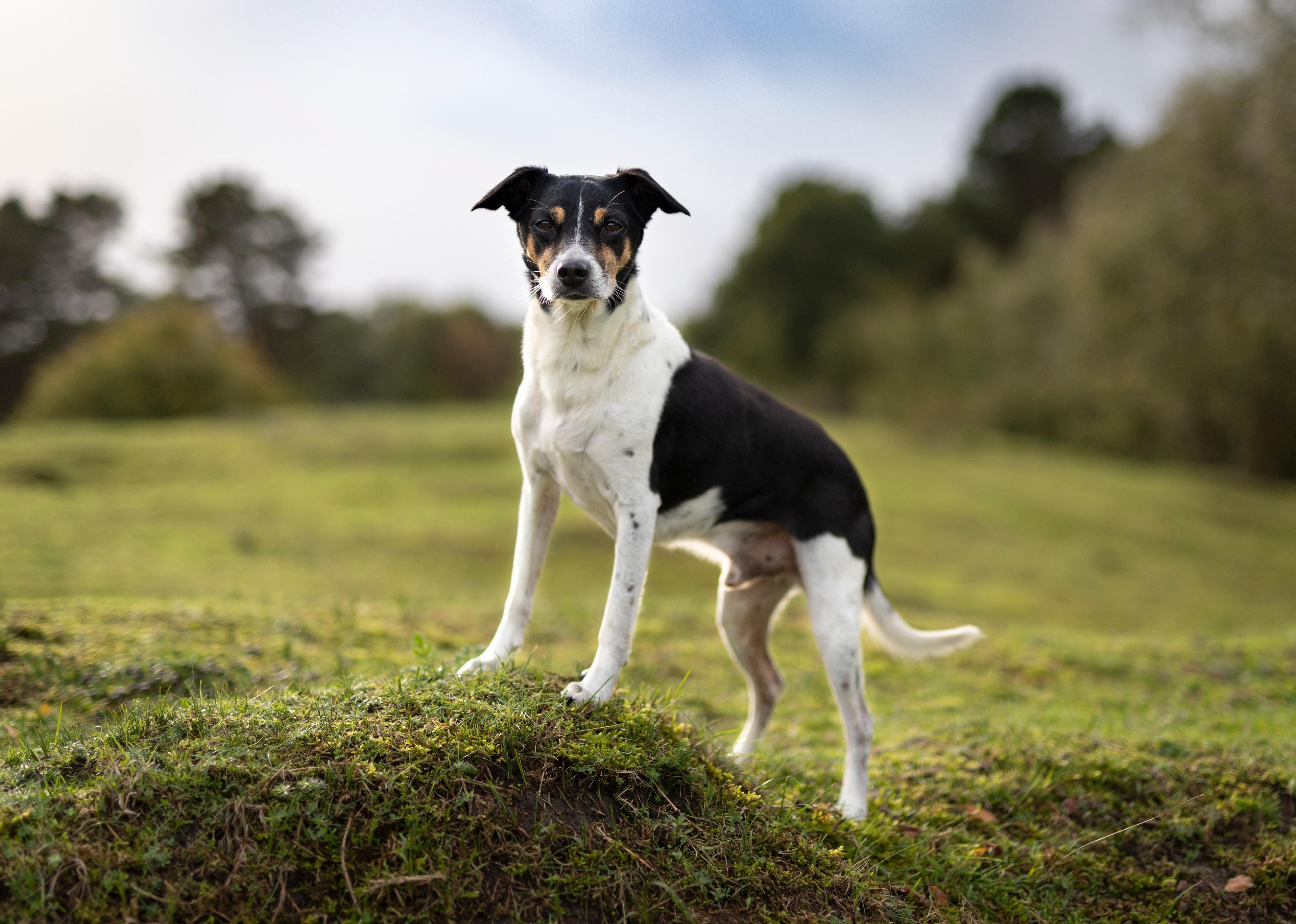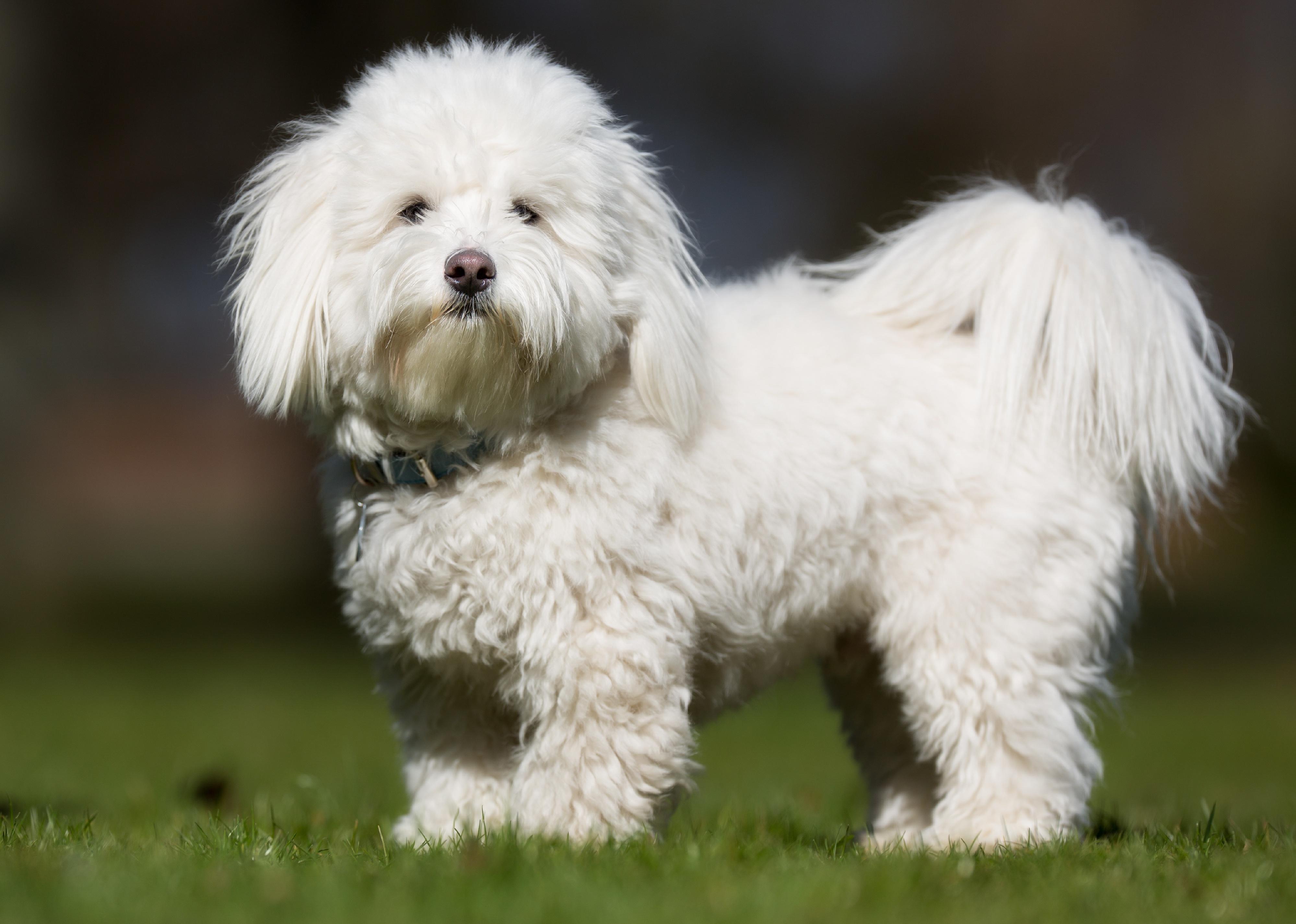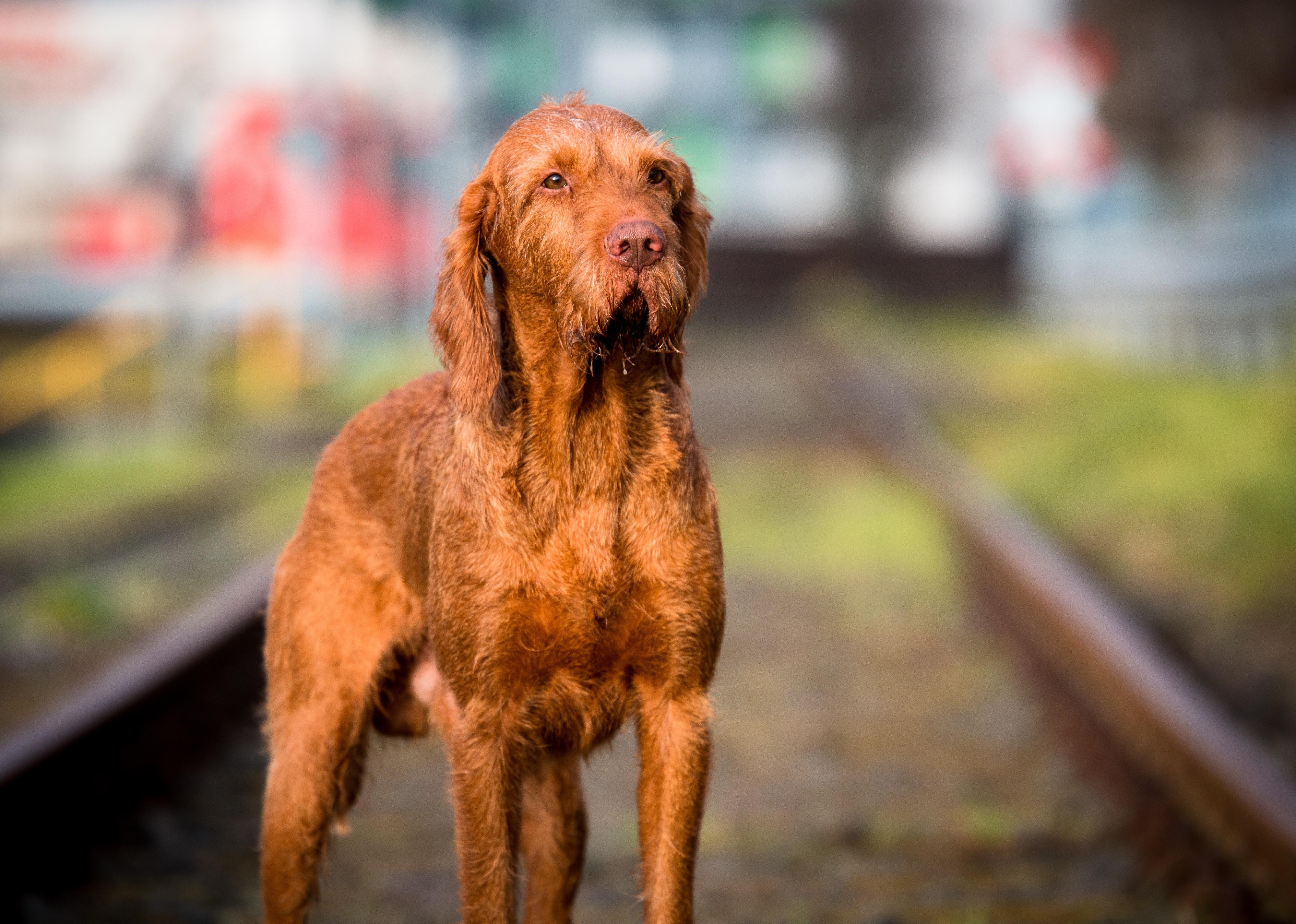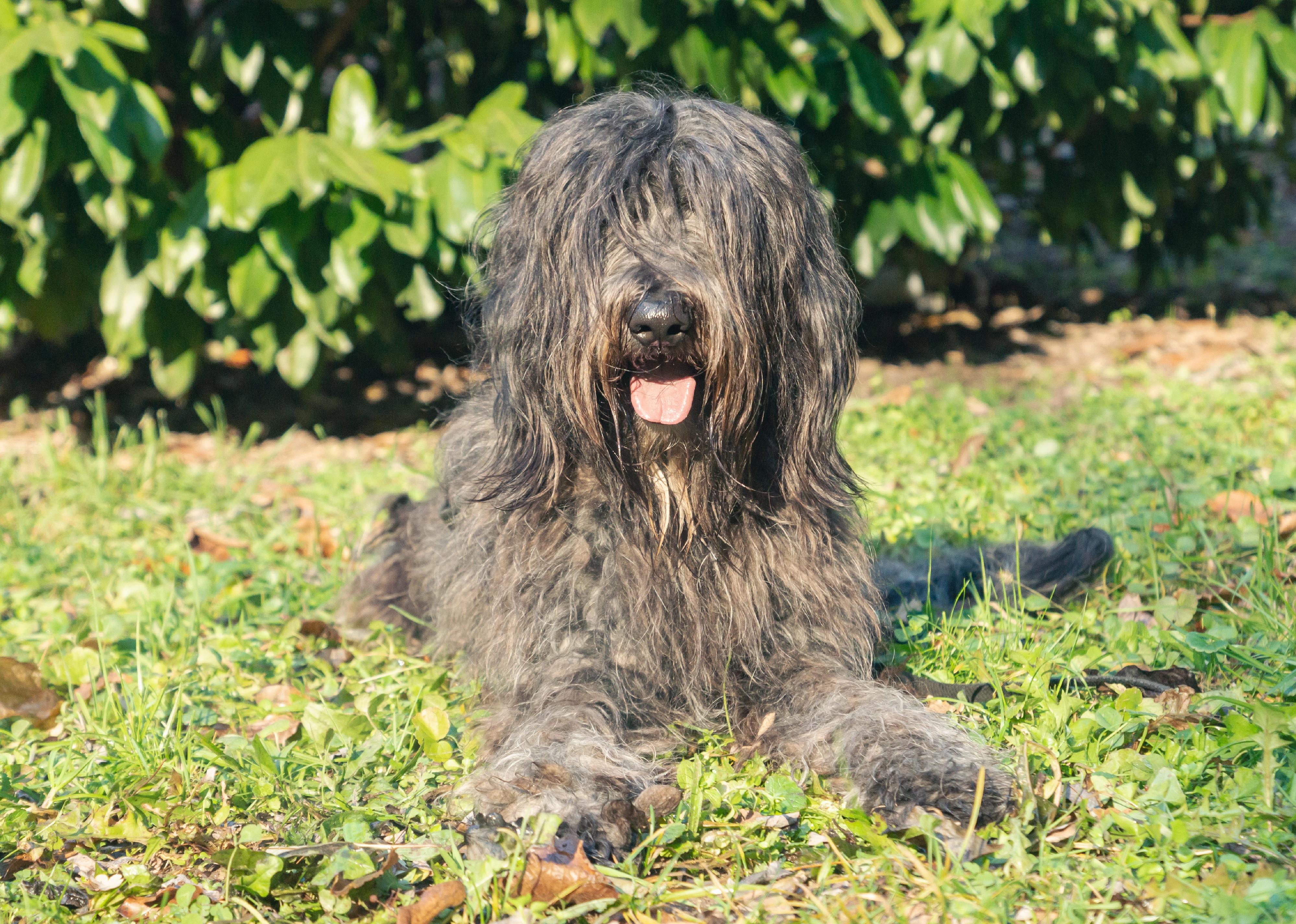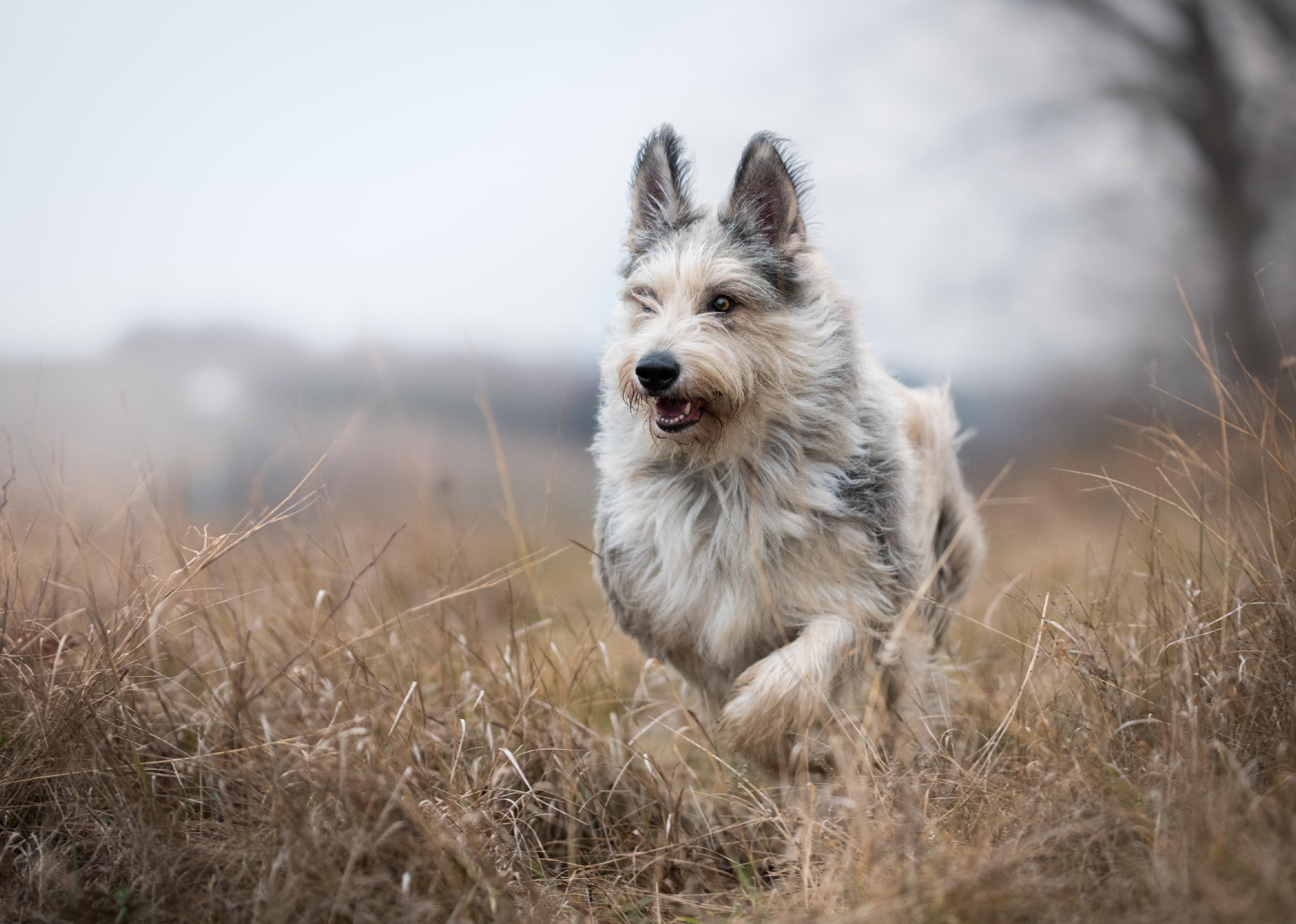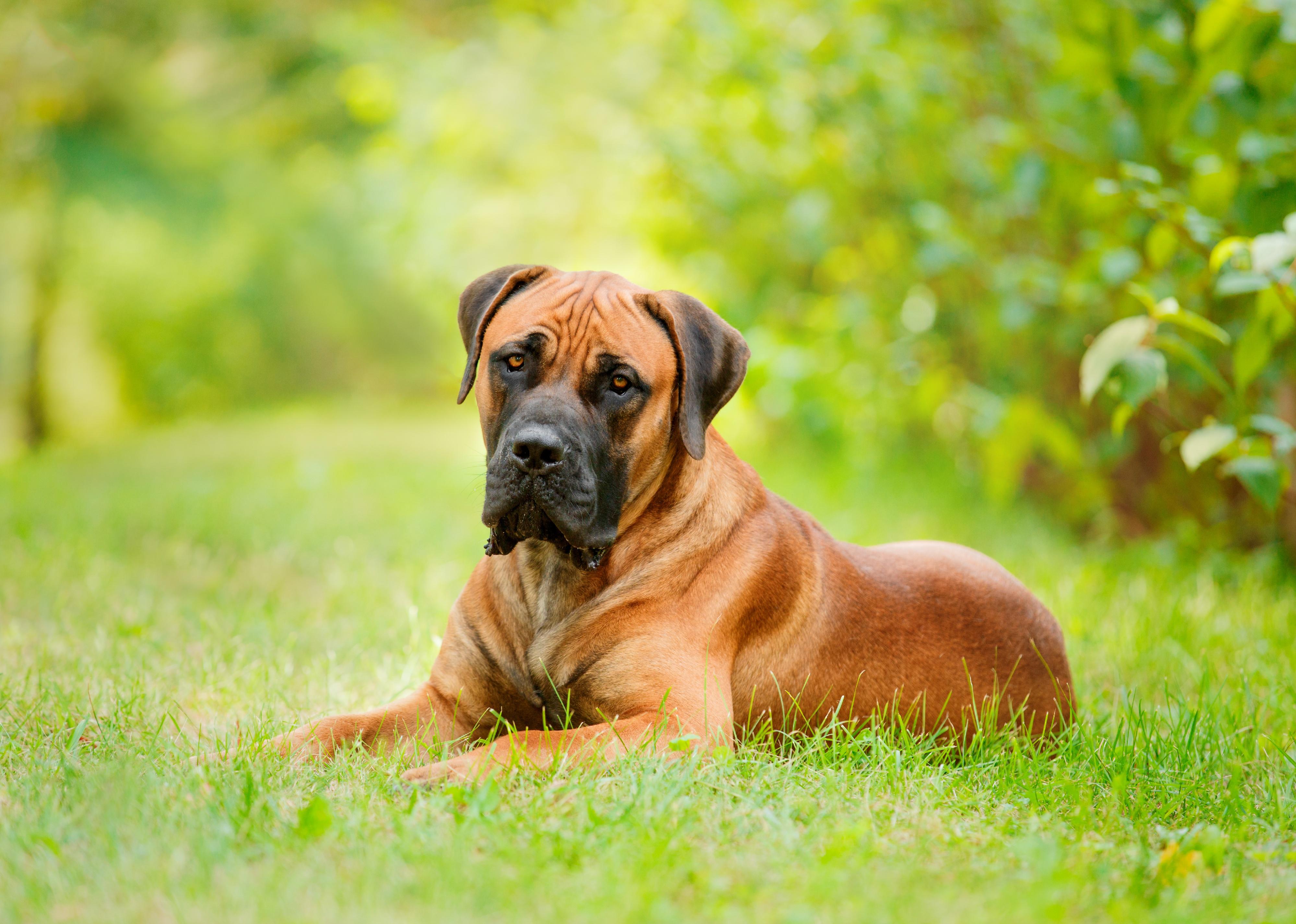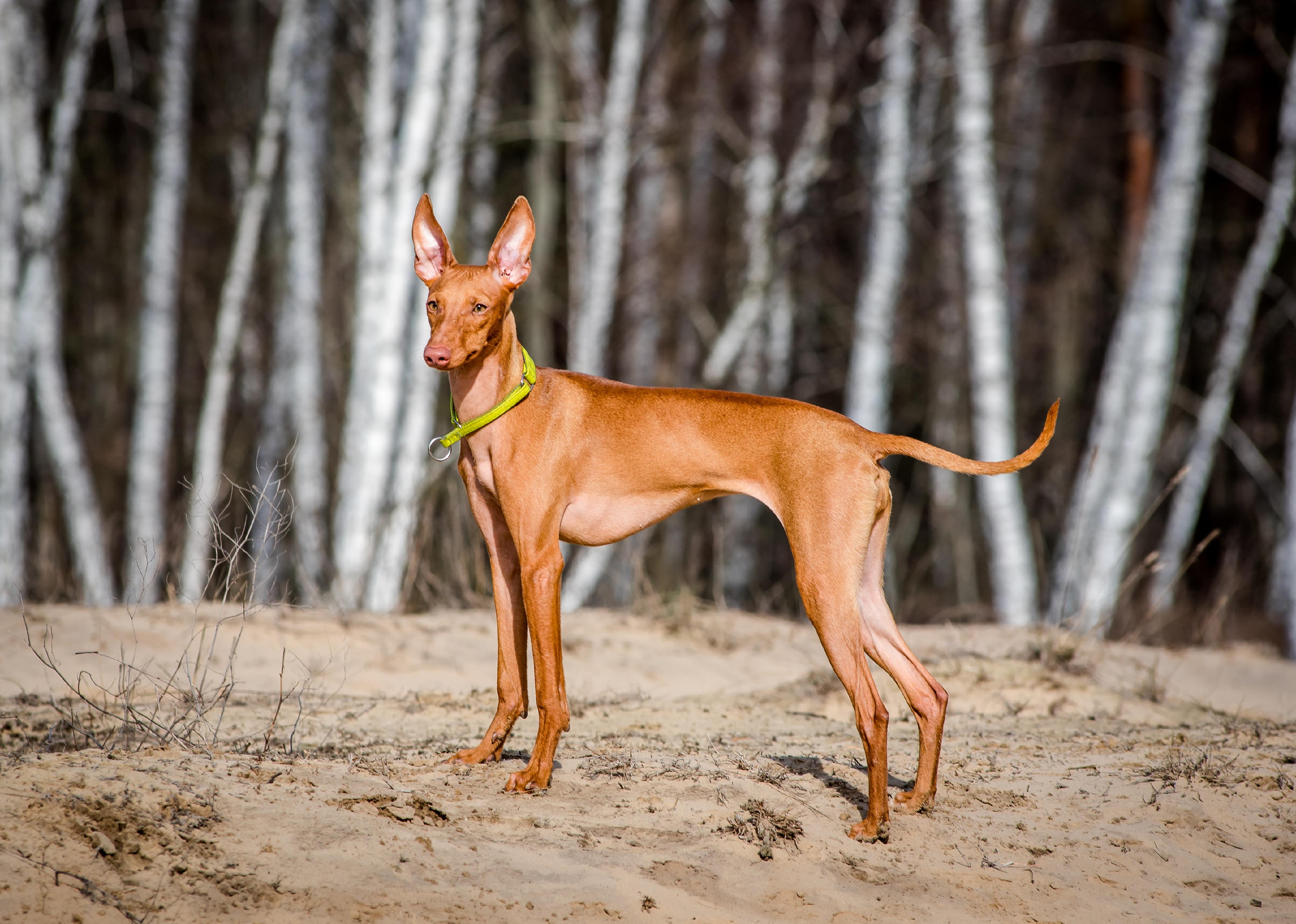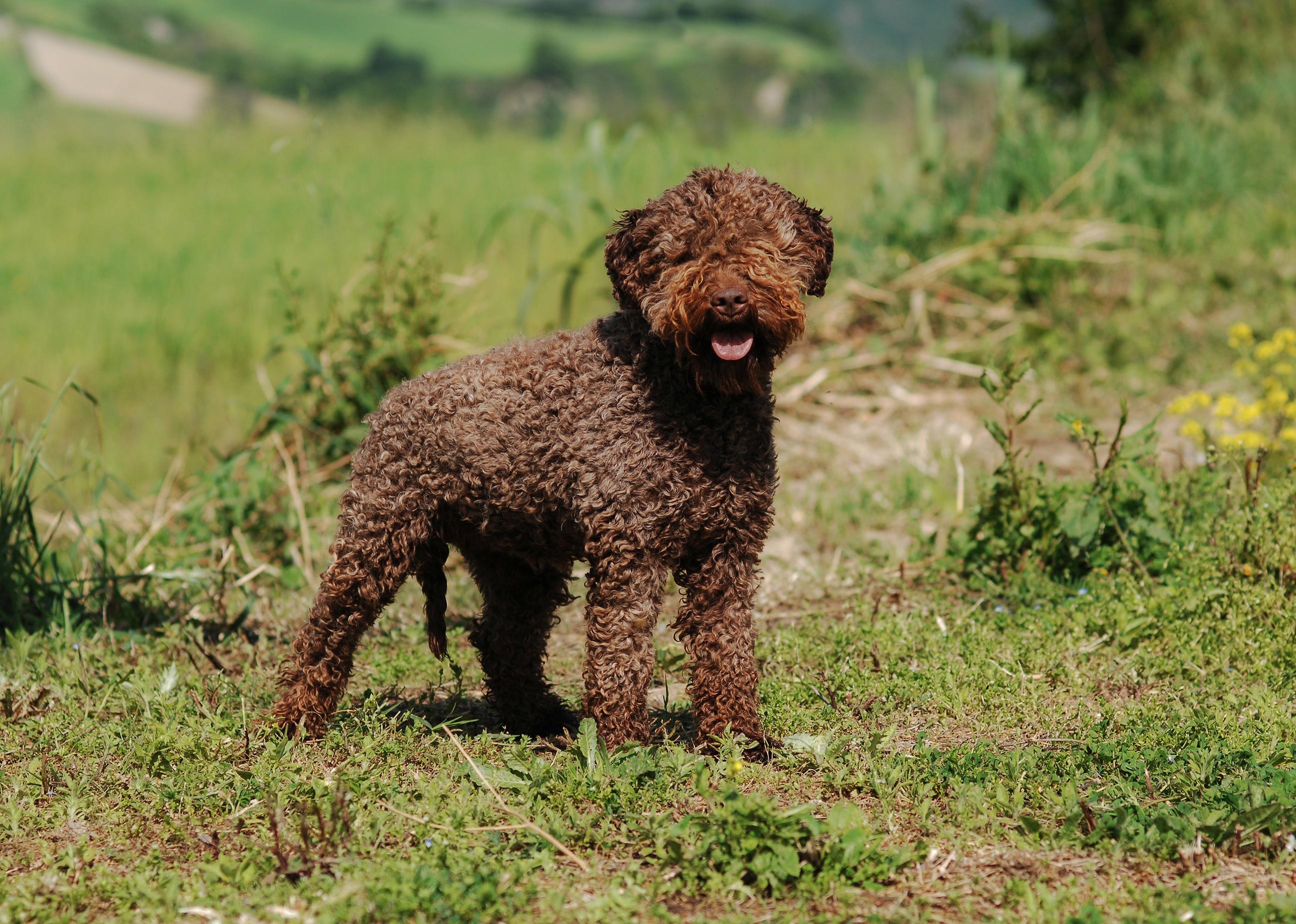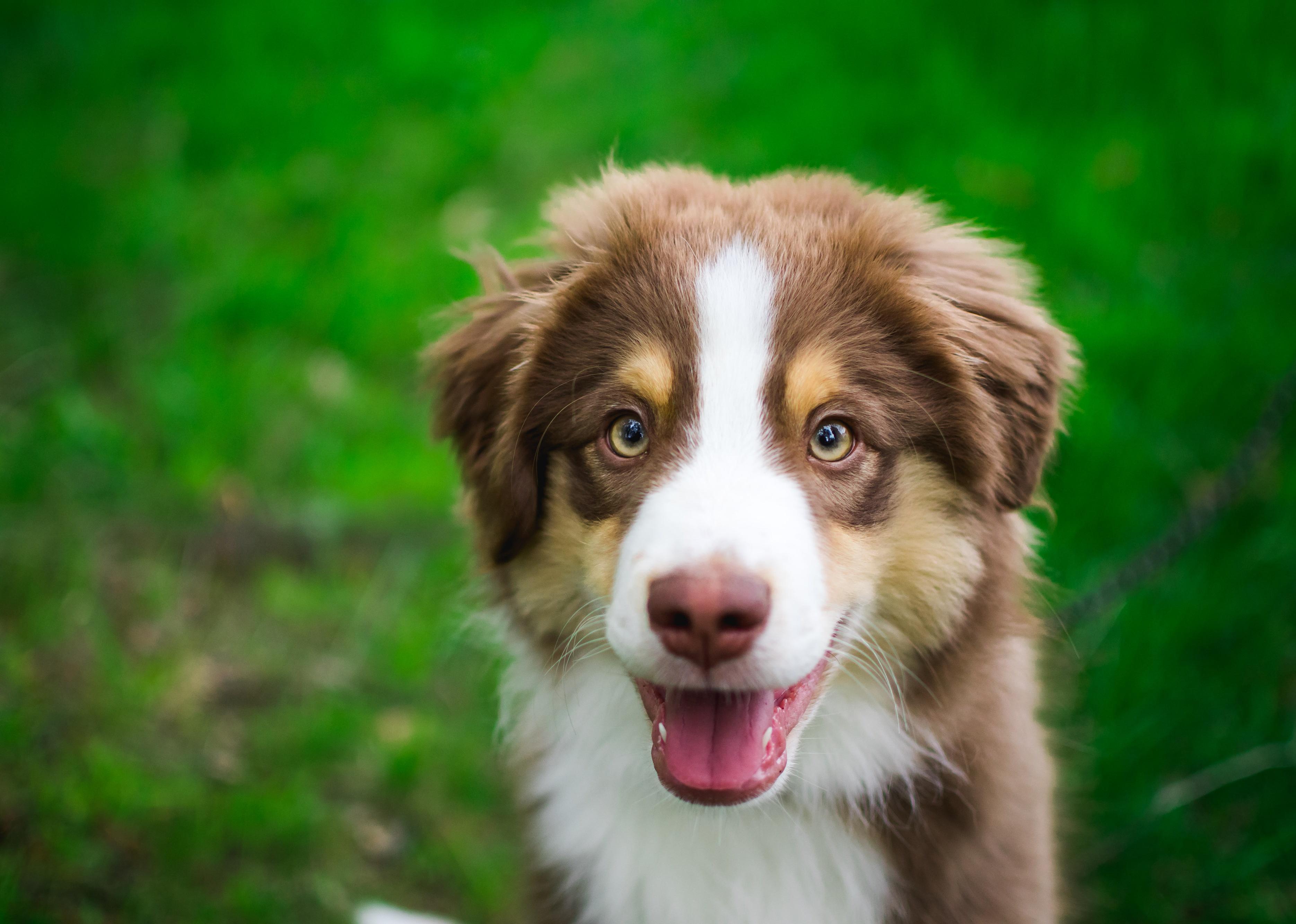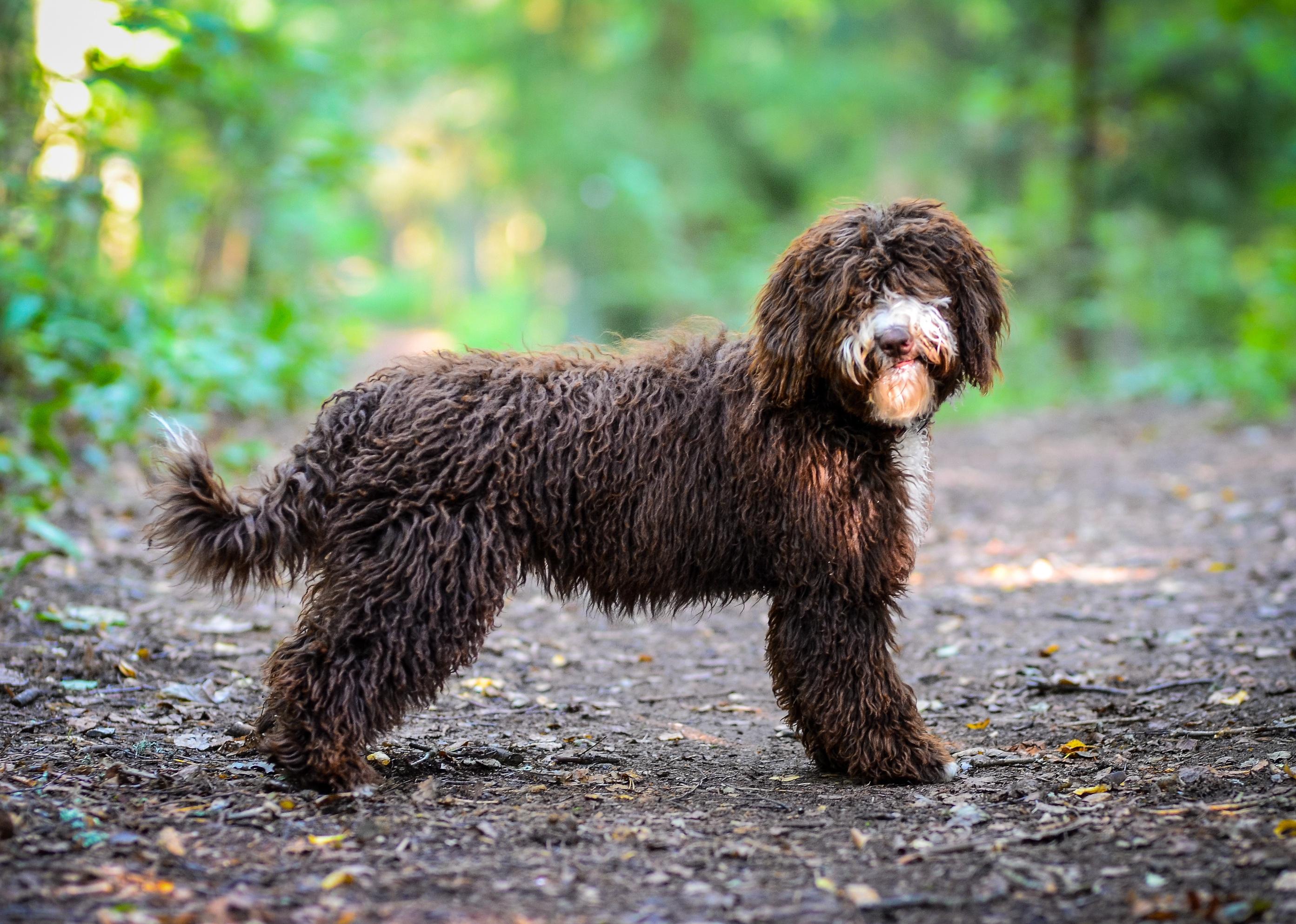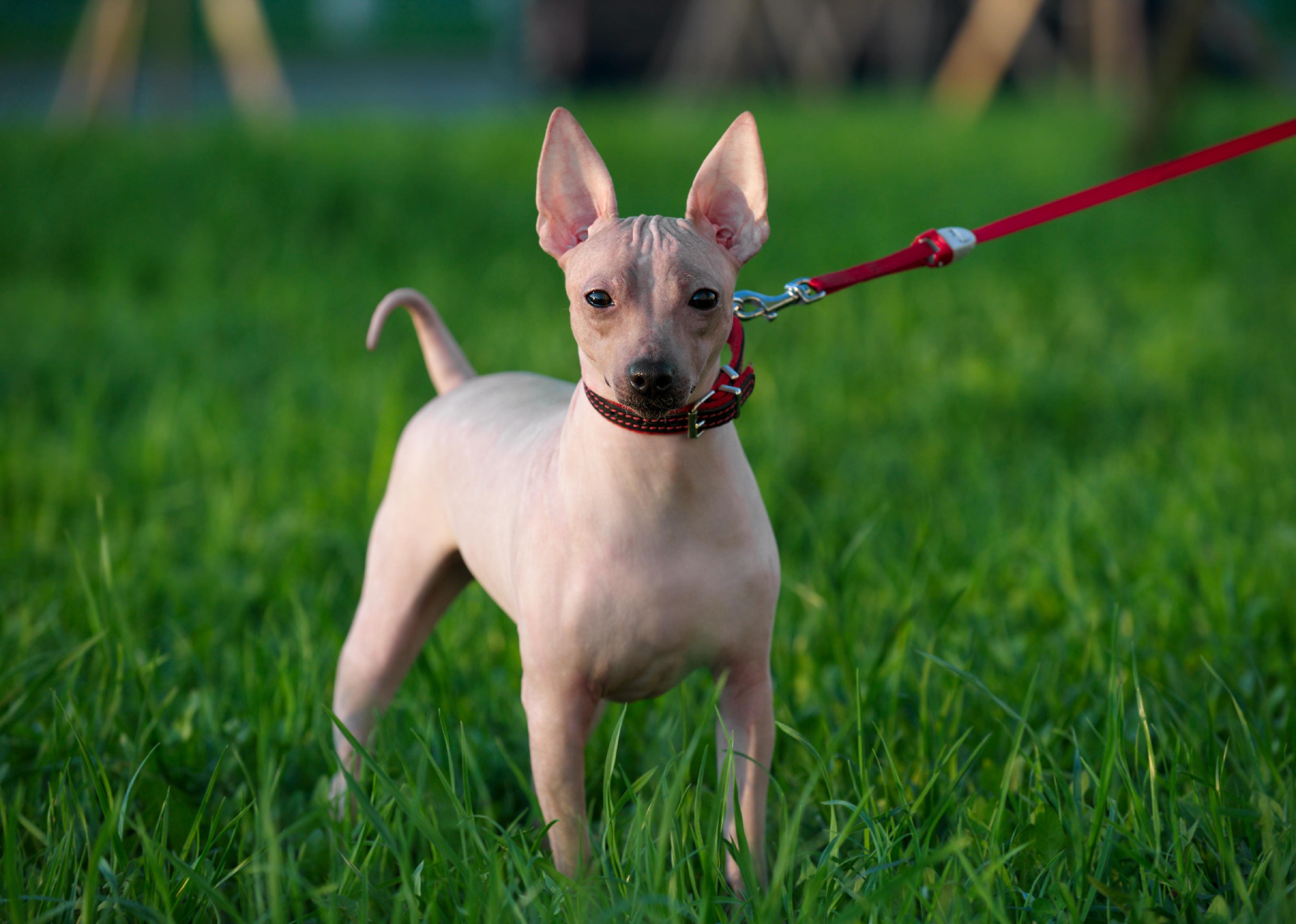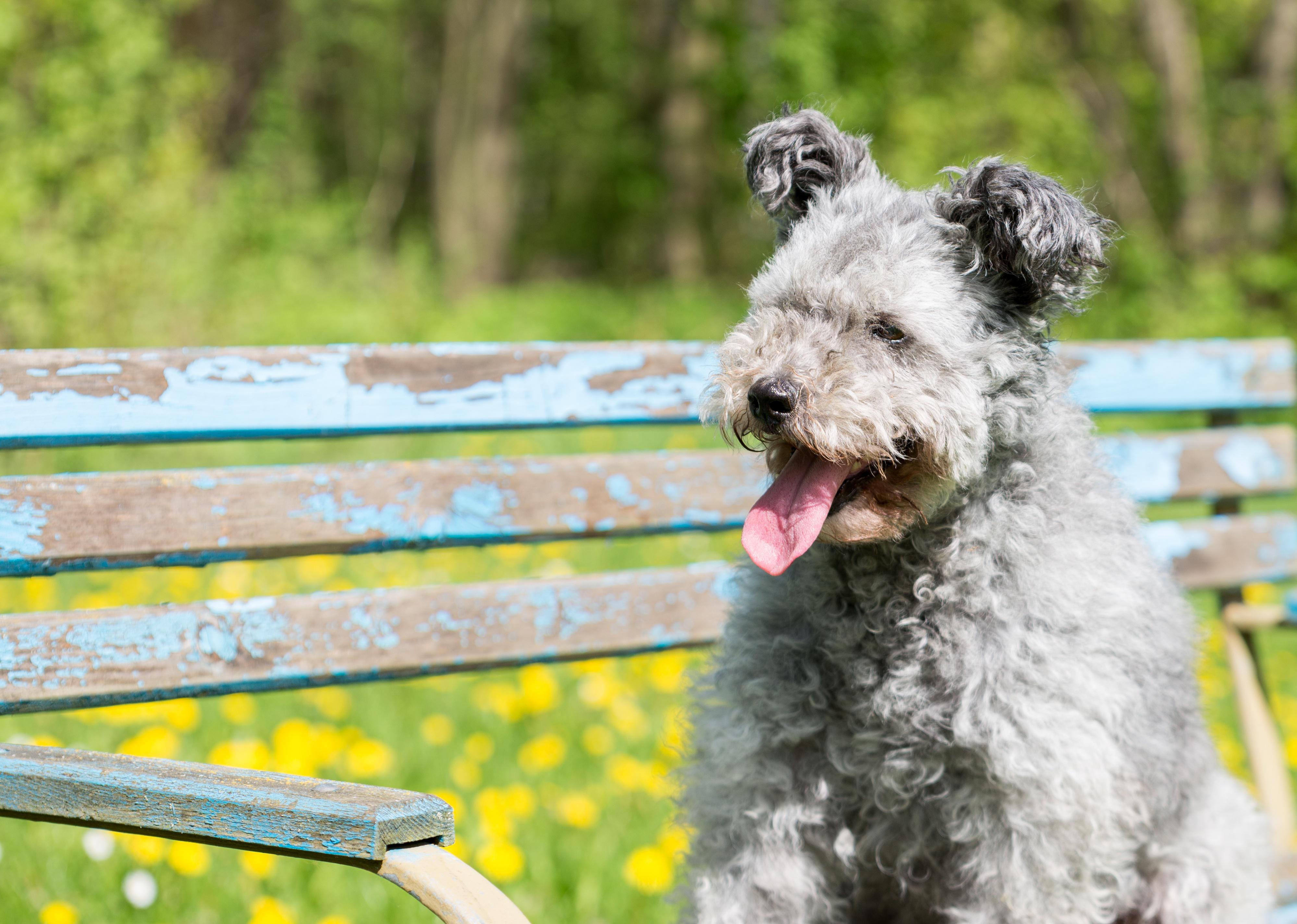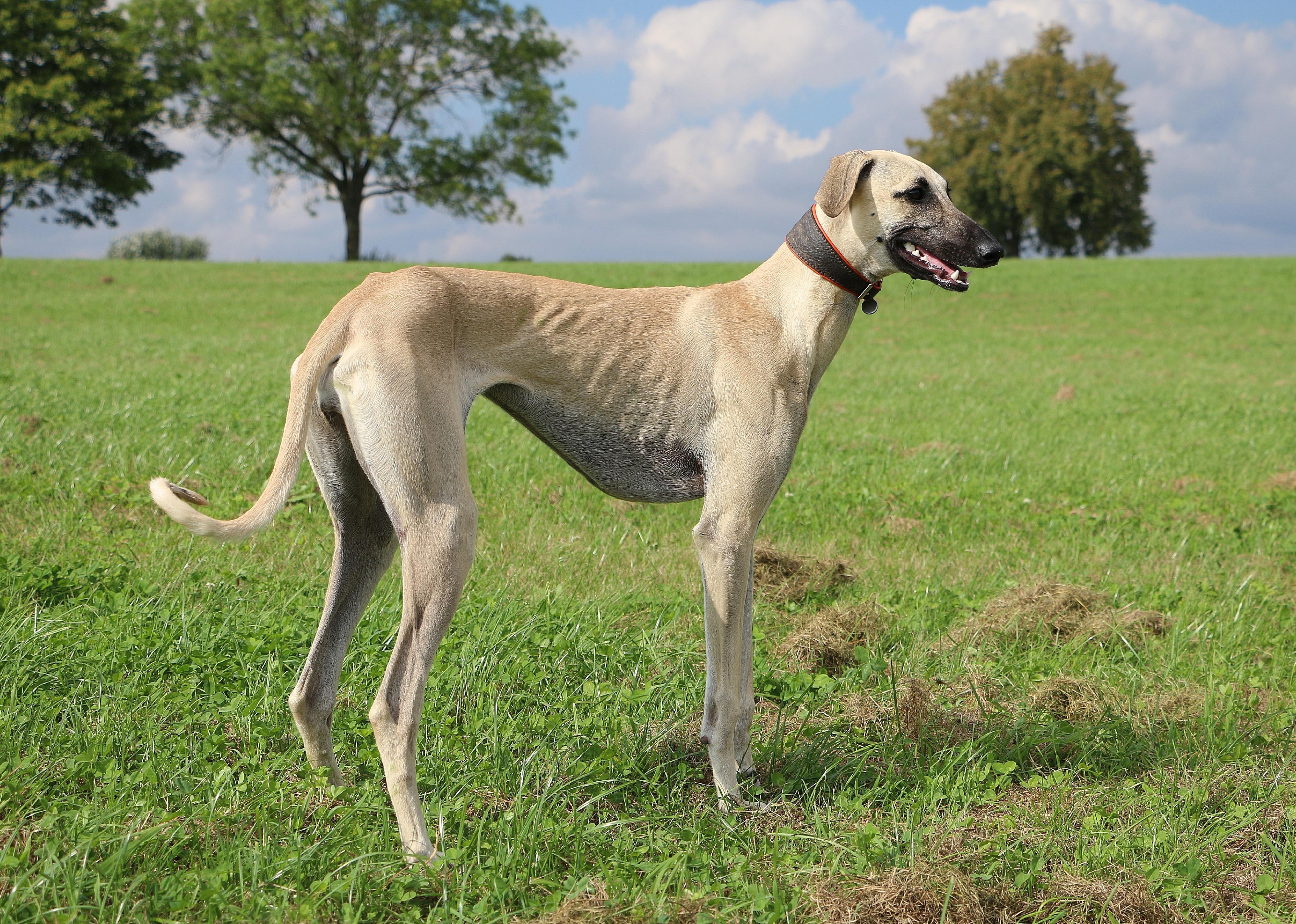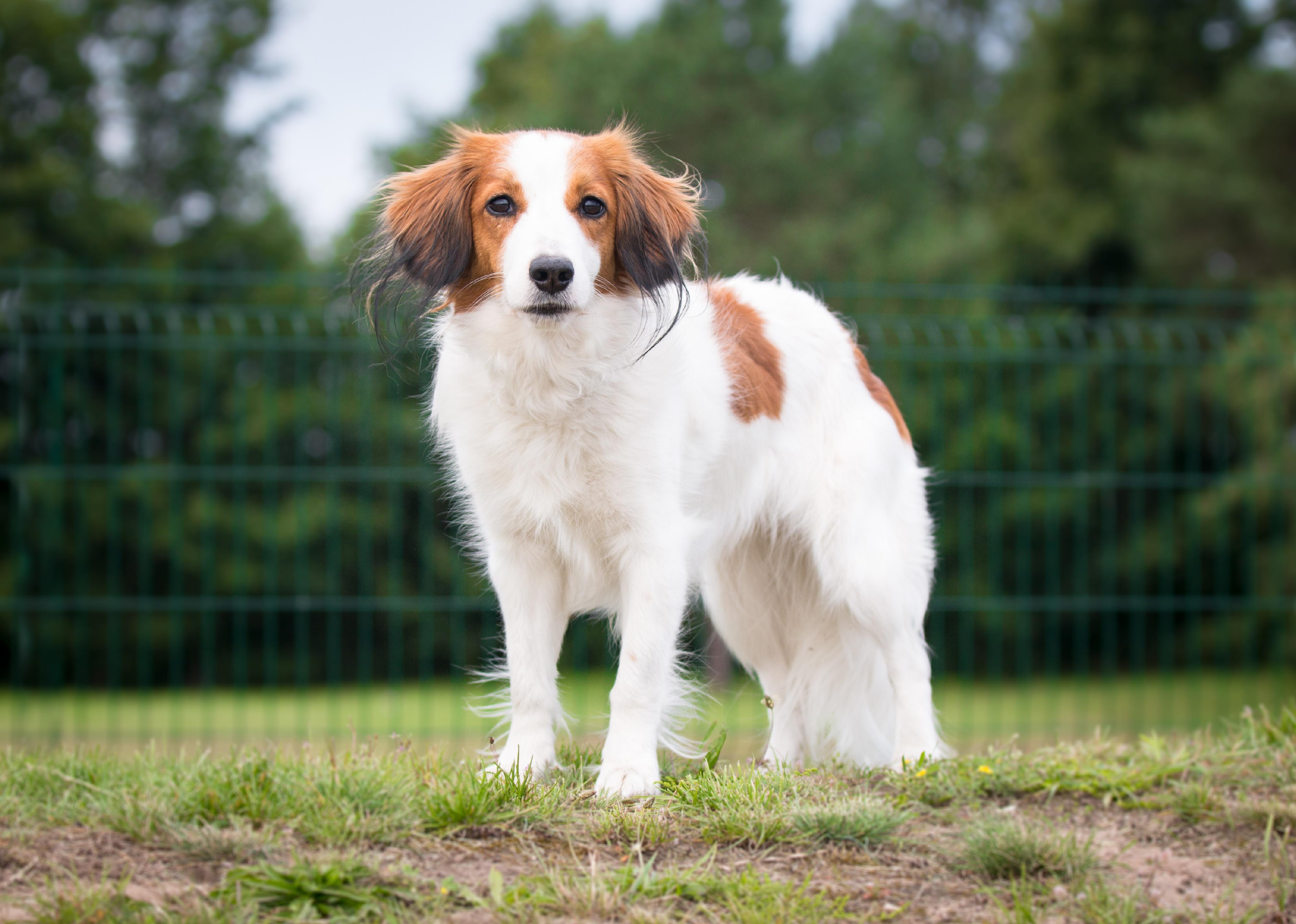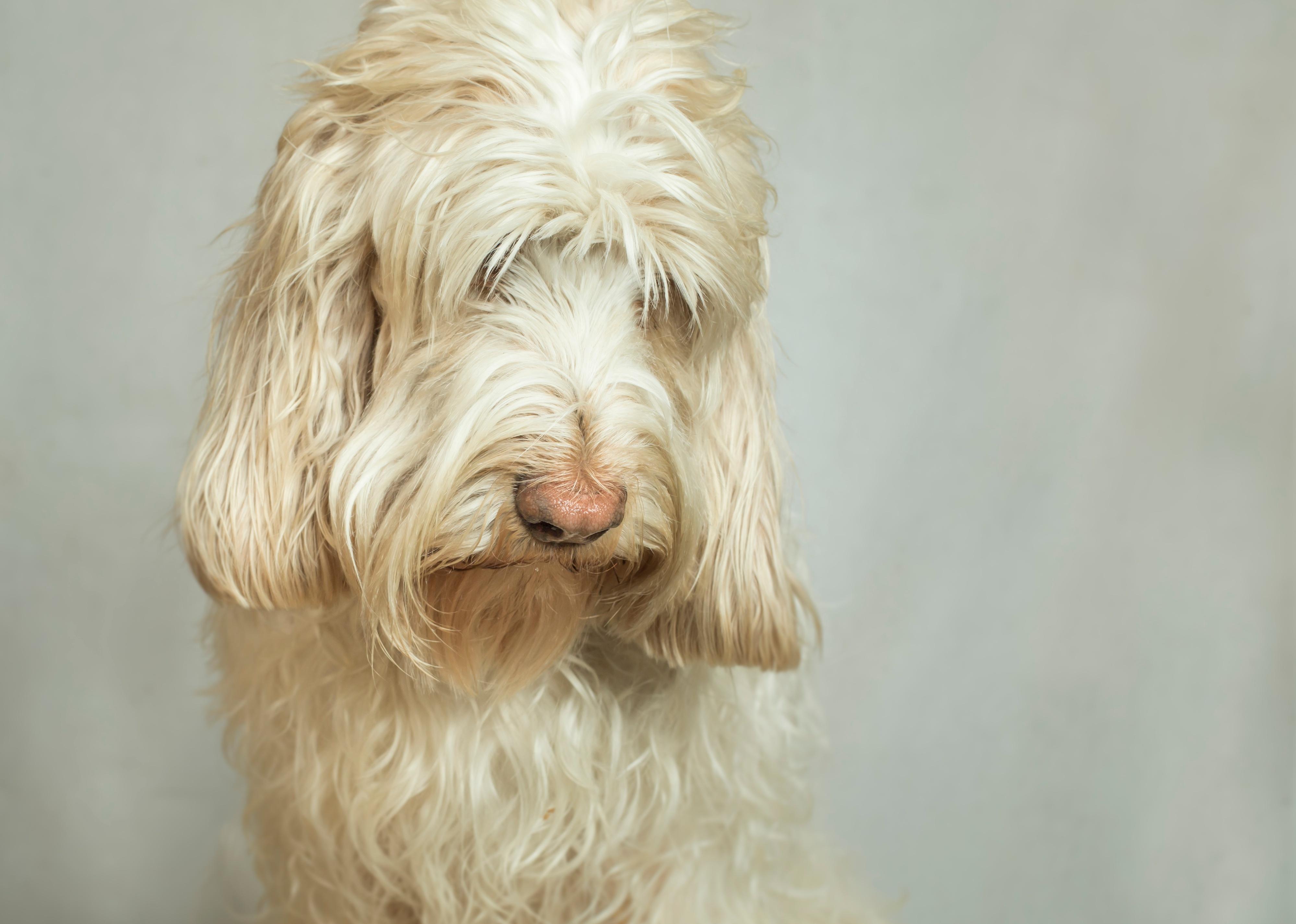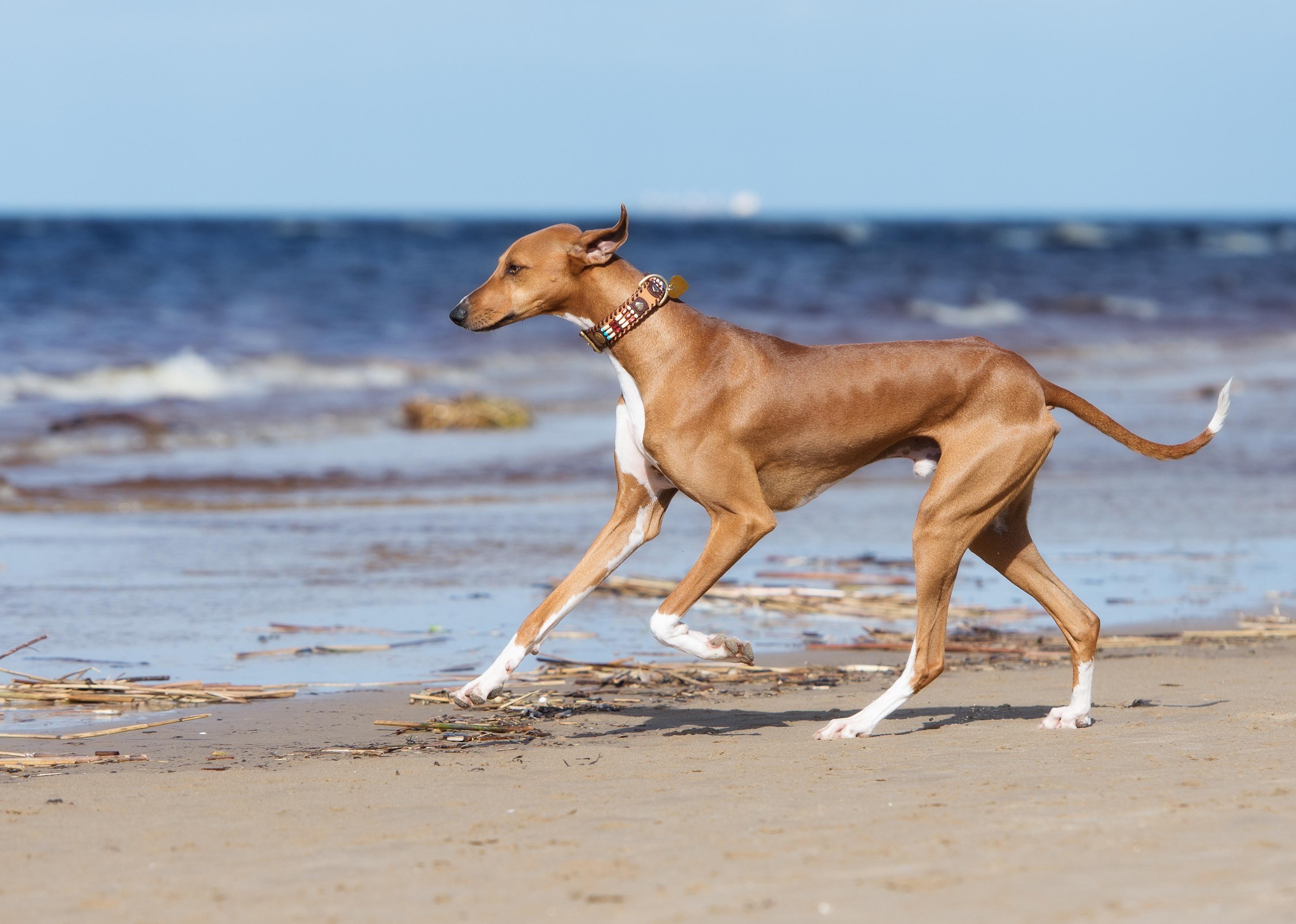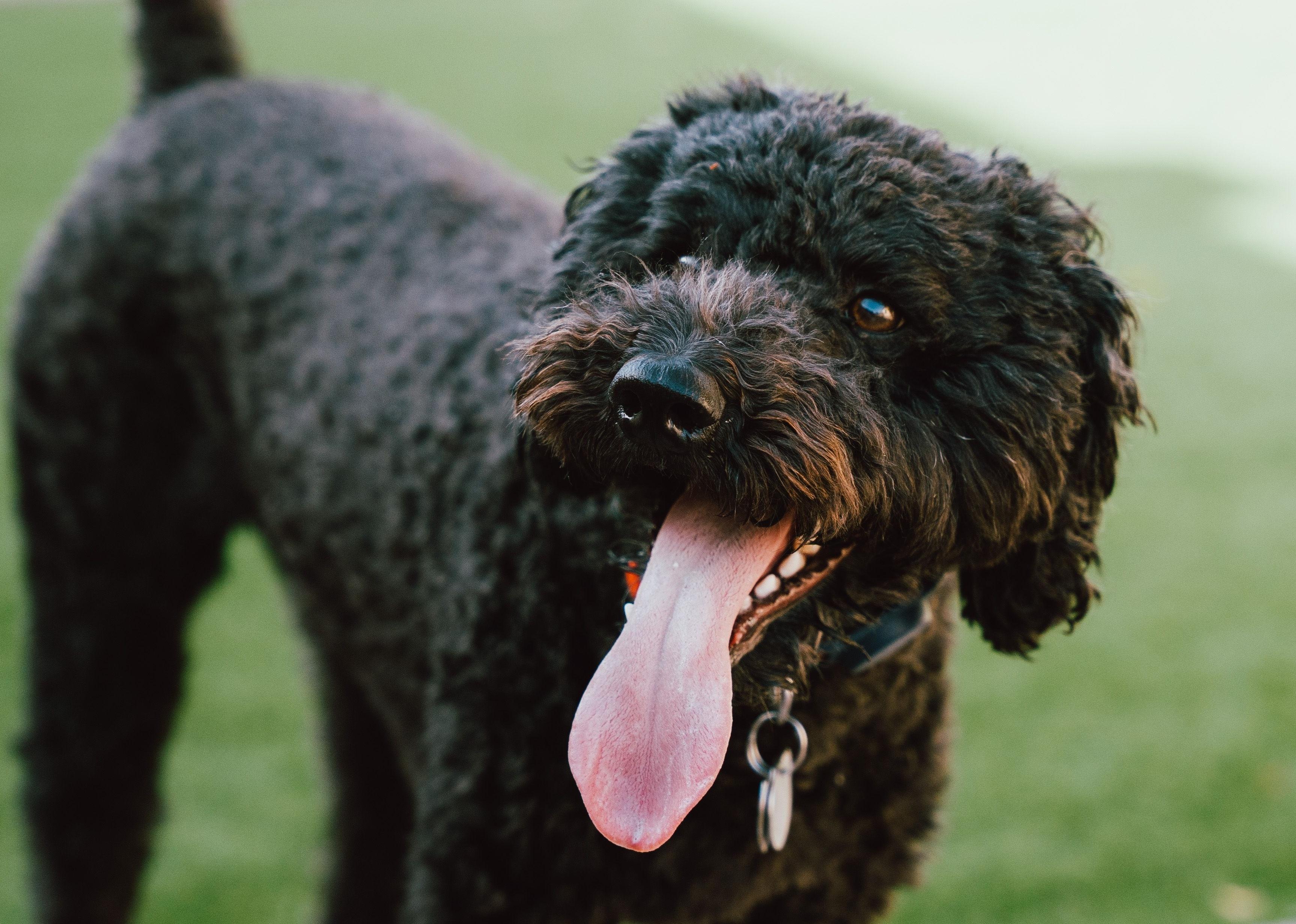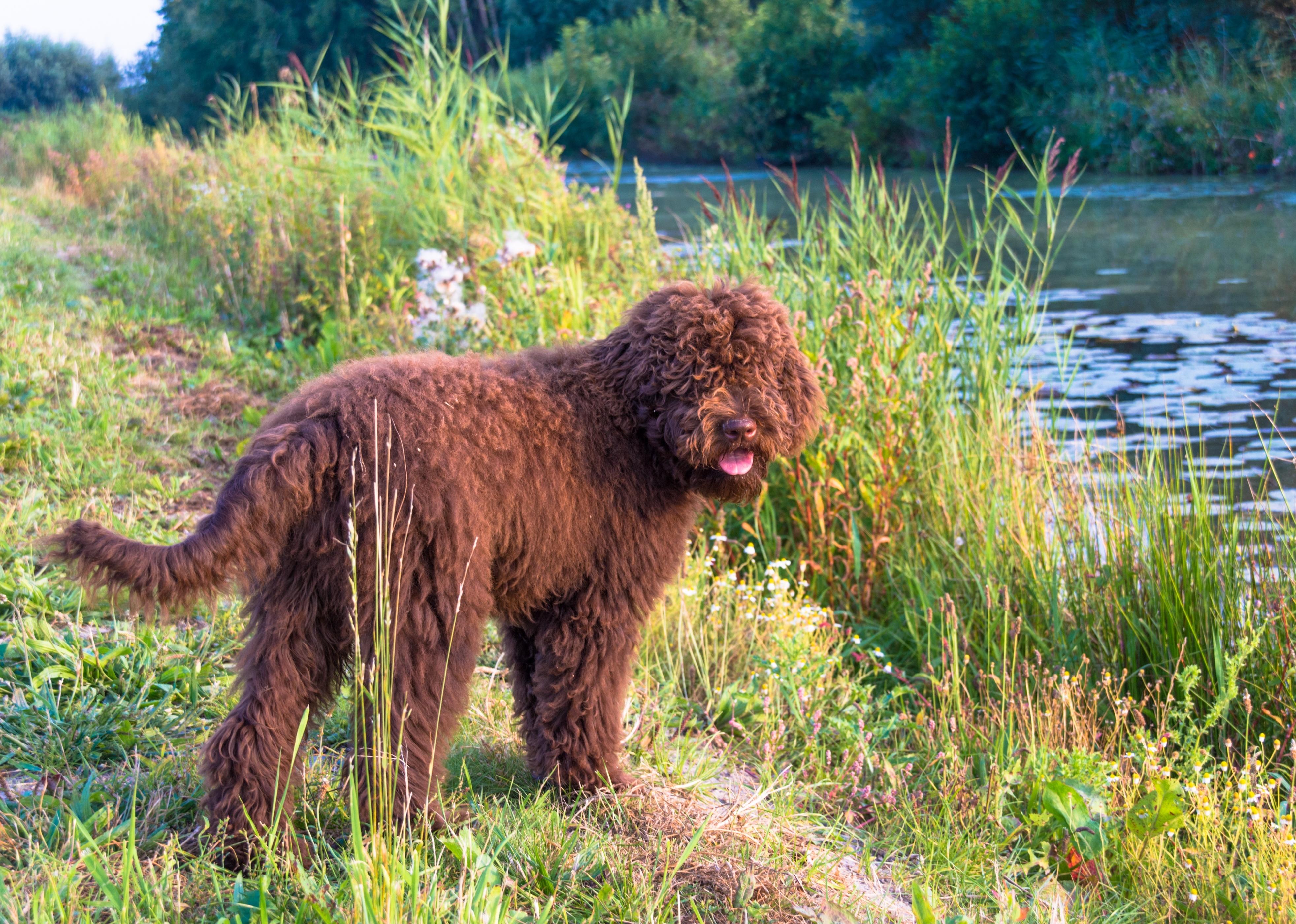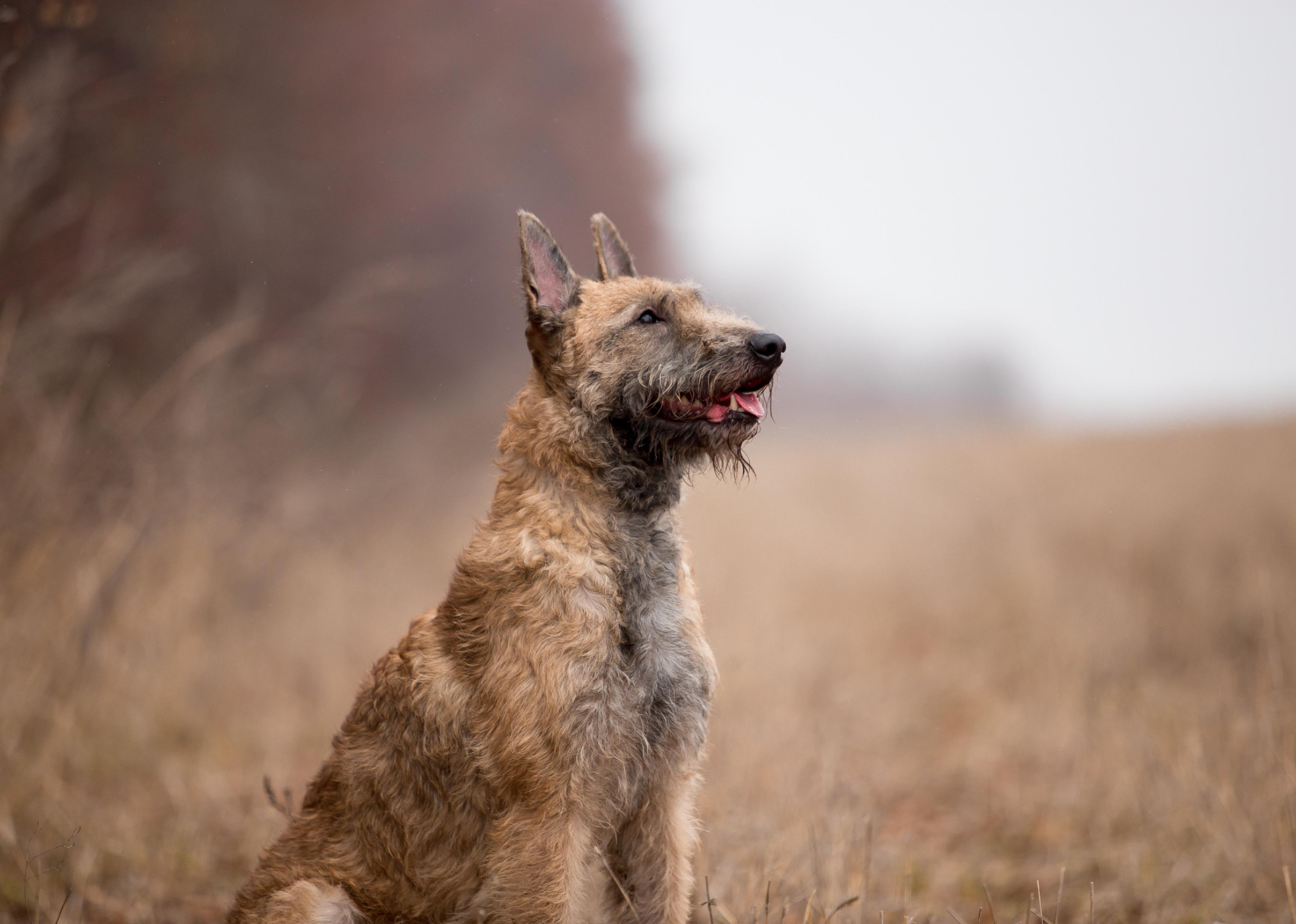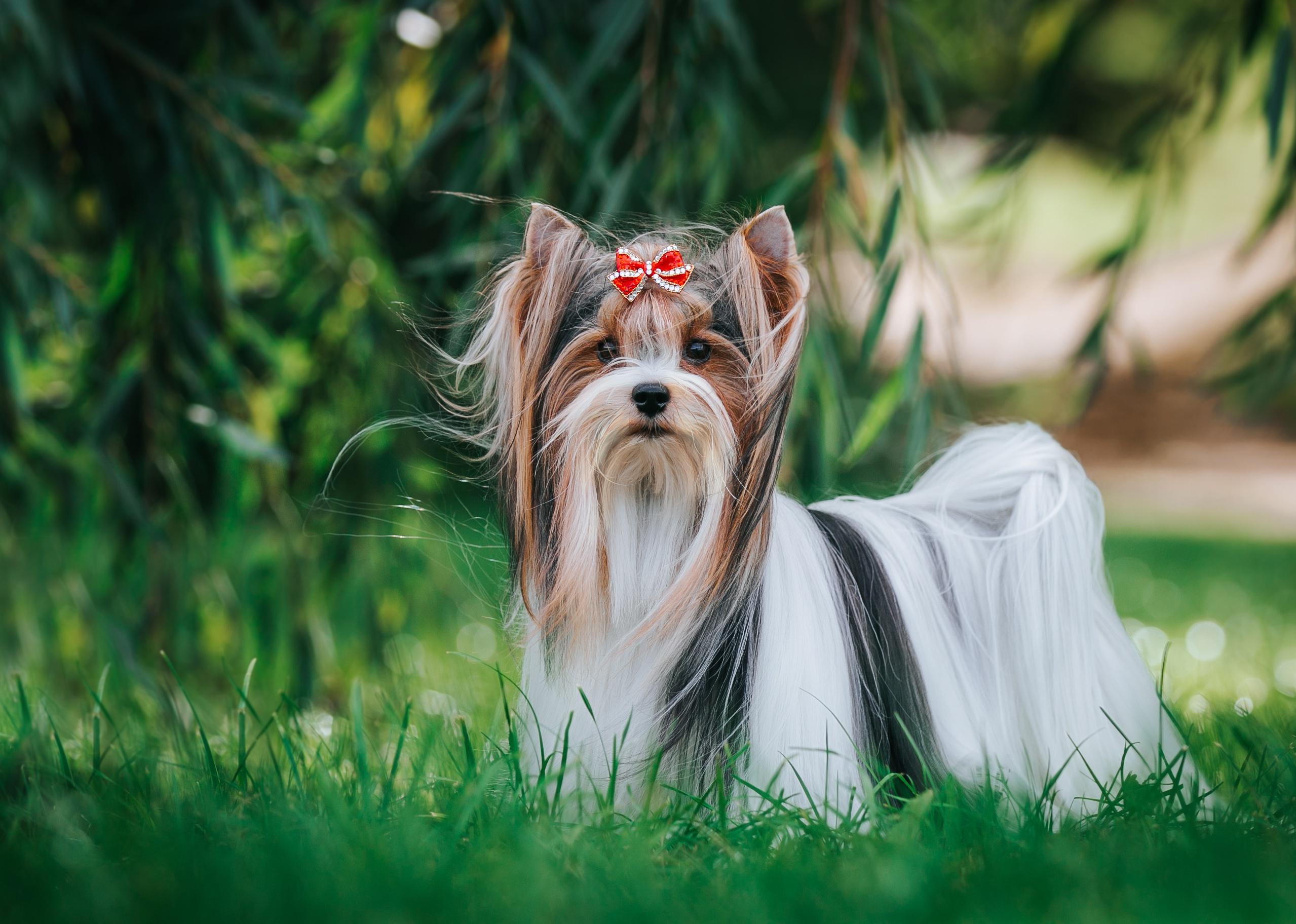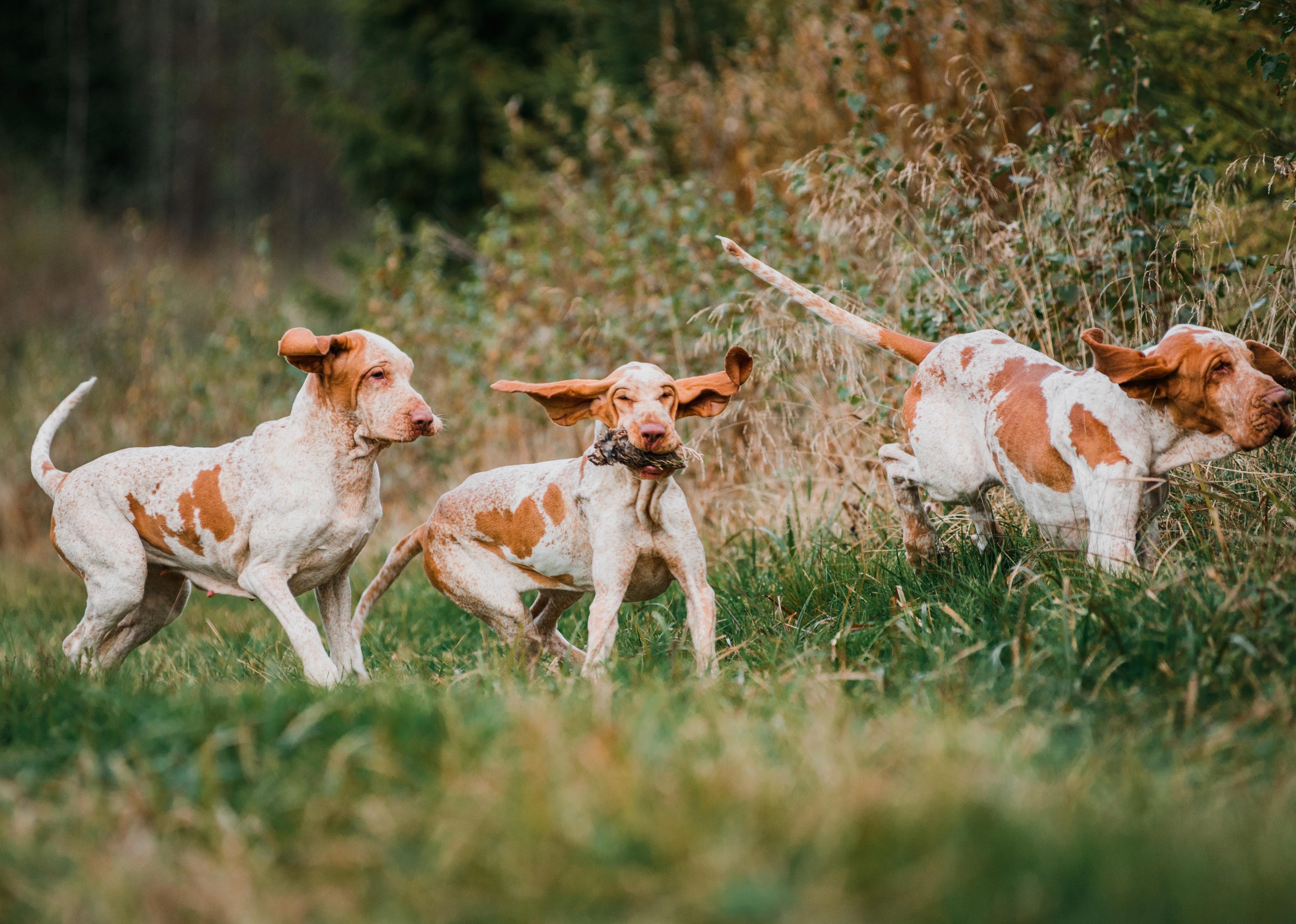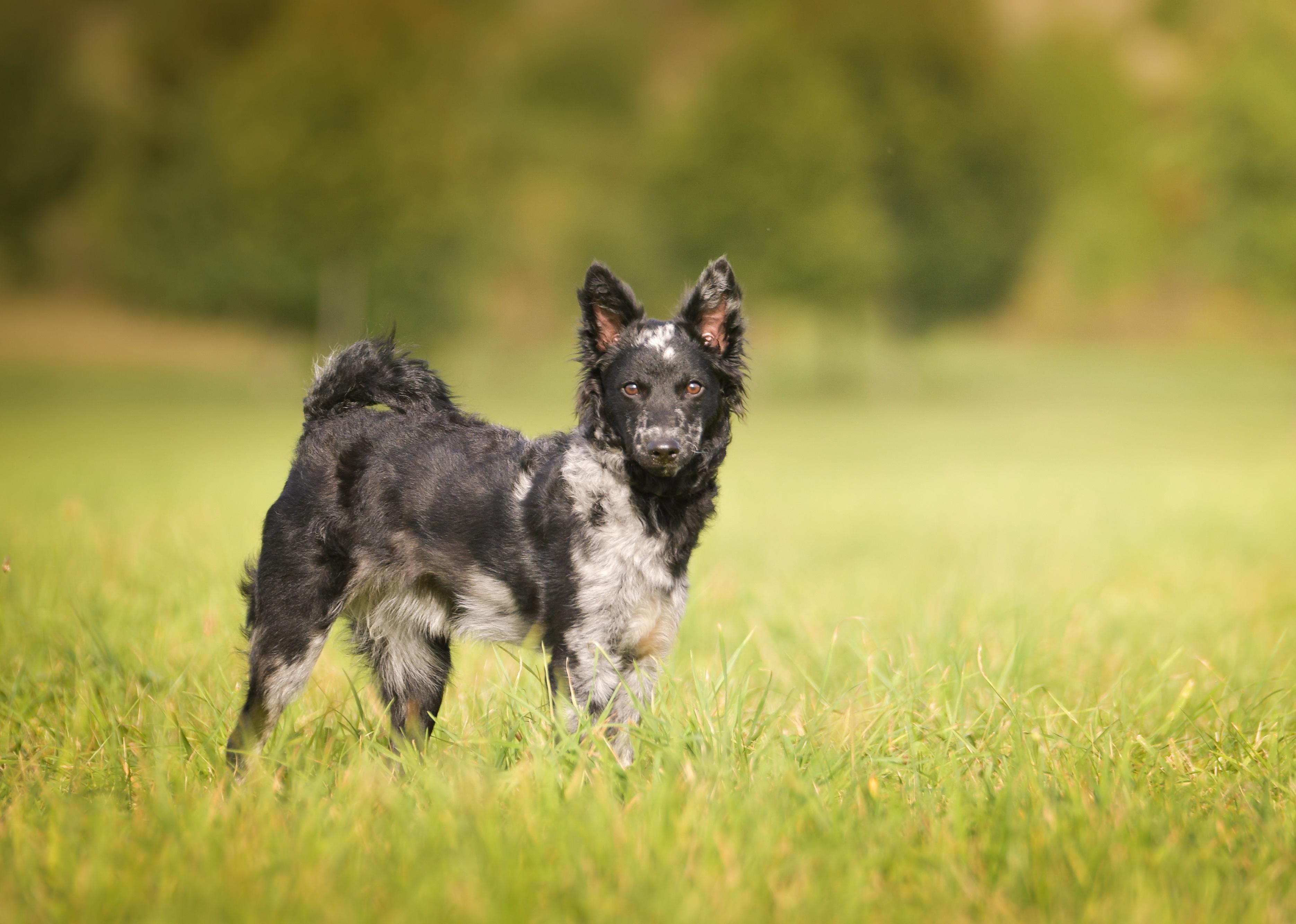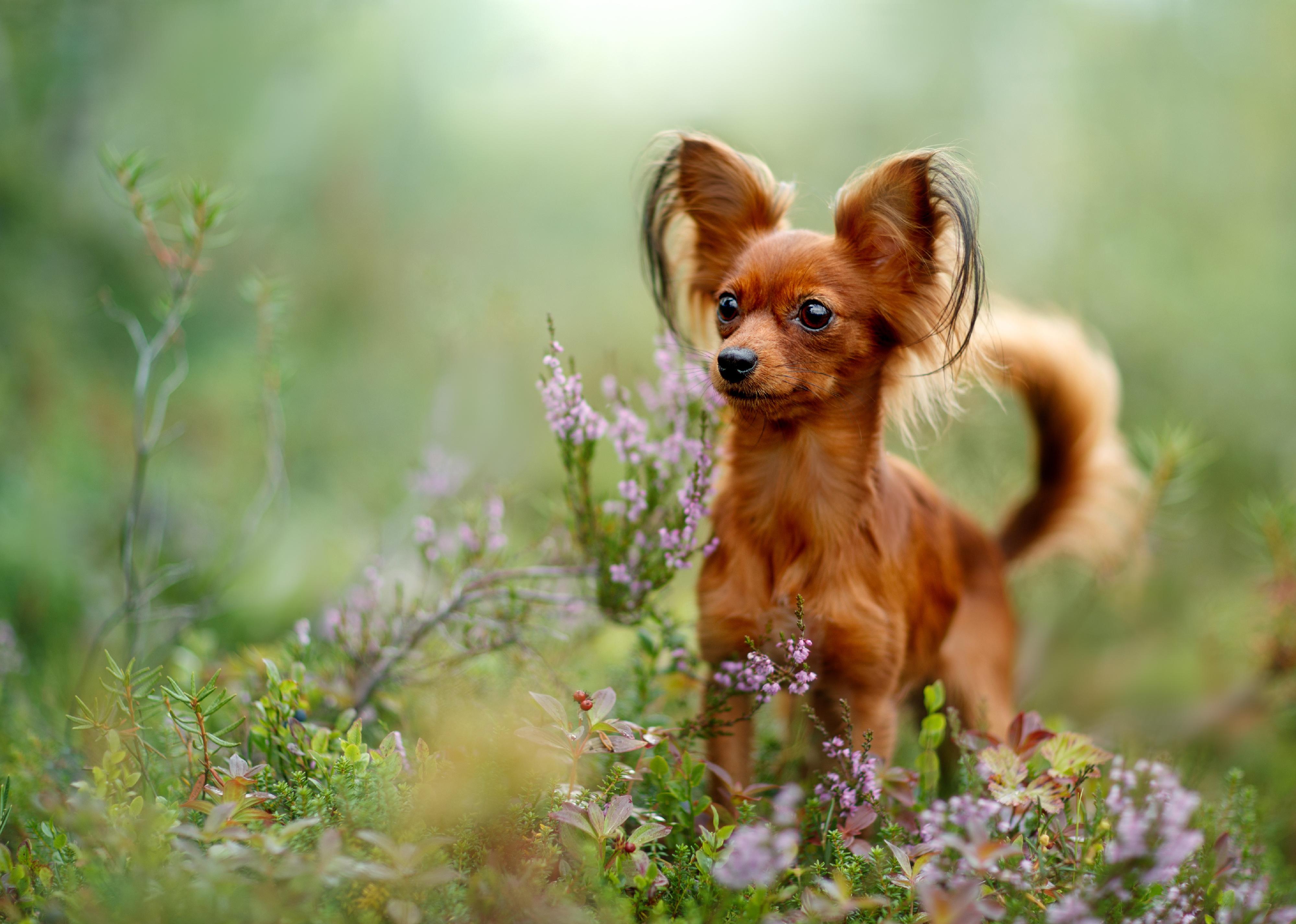Every new dog breed recognized in the 21st century
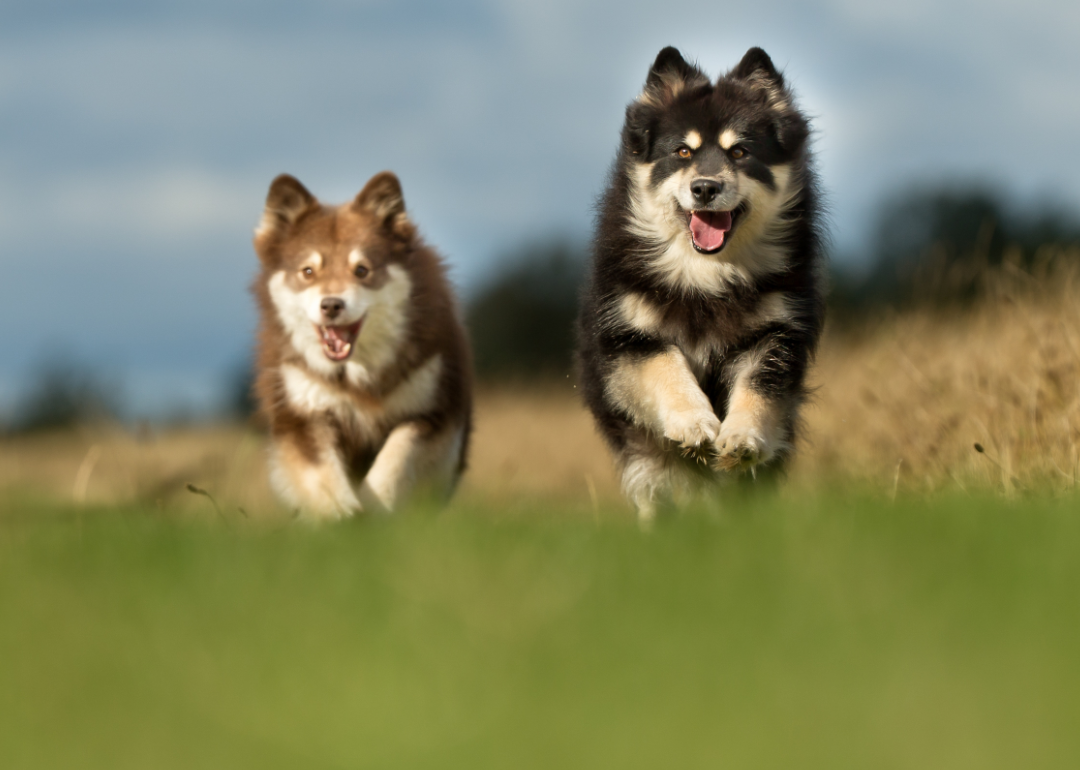
Canva
Every new dog breed recognized in the 21st century
Finnish Lapphund dogs run in a field.
The verdict is in: humans love dogs.
Trusty canines have been a human’s best friend since the dawn of modern civilization, resulting in a broad range of breeds as wonderfully diverse in appearance and personality as the very people who bred them. Good for companionship and protection, dogs remain so lovable that we’re willing to look the other way even when they occasionally ruin the carpet or destroy our favorite slippers.
Meanwhile, as we crafty humans (and chance) continue experimenting with the possibilities of genetic selection and crossbreeding, new breeds emerge to deliver all sorts of lovable (and not so lovable) unique traits along with them. Not to mention all the breeds that have been around for hundreds of years, slipping under the American radar until finally earning their way into our hearts and homes. It might lead one to wonder: Have any new purebreds been officially recognized by the American Kennel Club—which determines our pedigree registry—over the last decade or two?
Wonder no more. Stacker is here to heed the call. From the big and slobbery to the cute and cuddly, we’ve listed every dog breed officially recognized by the AKC since 2000. We reviewed the complete AKC list for the data and culled the most recent entries. As it turns out, no less than 55 new dog breeds emerged since the turn of the 21st century.
What will the future hold for our favorite furry friends? Only time will tell.
![]()
AnetaZabranska // Shutterstock
2000: Spinone Italiano
A brown spinone italiano dog in winter scene.
Distinguished by a muscular build and thick coat, the Spinone Italiano is an Italian hunting dog with origins dating back to 200 B.C. Emanating from their somewhat droopy faces are tender eyes and bushy brows, making these dogs hard to resist among Americans and Italians. This relatively docile breed might not sprint at high speeds but can stay agile and alert for long periods.
BGSmith // Shutterstock
2001: Polish lowland sheepdog
A Polish Lowland Sheepdog standing on a rock.
With wagging tongues and shaggy coats that frequently cover their eyes, Polish lowland sheepdogs (better known in the States as PONs) are recognizable on sight and surprisingly impervious to shedding. This trusty breed was cultivated in Poland, where PONs are so iconic they get their own stamp.
Also worthy of note is that PONs were almost wiped out of existence during World War II, only to be saved by a veterinarian and her proactive dog, who sired a small legion of litters. PONs are hardworking, intuitive, independent, and relatively easy to train.
Natallia Yaumenenka // Shutterstock
2003: German pinscher
Tan-and-black German Pinscher sitting on a river bank.
With a sporty physique and loyal disposition, German pinschers are indeed a human’s best friend. More to the point, the desirable breed is brilliant, energetic, reasonably easy to train, and always ready to play. Throw in a life expectancy of 14 years, and you have yourself everything one might look for in a dog.
studio vanDam // Shutterstock
2003: Nova Scotia duck tolling retriever
Young Nova Scotia Duck tolling Retriever standing in grass field.
True to its name, the Nova Scotia duck tolling retriever is a sporting breed with an instinct for luring ducks to the shoreline, making those ducks an easy target for hunters. Once the duck is shot and killed, this compact, outgoing breed and its water-repellant double coat of fur take to the water to retrieve the day’s catch.
everydoghasastory // Shutterstock
2003: Toy fox terrier
Toy Fox Terrier running through a grass field.
Less than a foot tall and perennially enthusiastic, Toy fox terriers burst with personality. This breed is also brilliant, intensely loyal, easy to train, and known to live well into its teenage years. Plus, who wouldn’t want a dog that effectively doubles as a live-action toy?
Rita_Kochmarjova // Shutterstock
2004: Black Russian terrier
Black russian terrier with autumn background.
To create the elusive Black Russian terrier, scientists combined no fewer than 17 different dog breeds. The result is a fiercely protective and dependable search and rescue dog that packs 40% of its body weight in its shaggy head alone. Keep one by your bedside and consider yourself duly protected at night.
Radomir Rezny // Shutterstock
2004: Glen of Imaal terrier
Typical Irish Glen Terrier in a spring garden.
A gentler alternative to most terriers, the Glen of Imaal terrier manages to be completely adorable despite its wiry coat and workmanlike background. Standing a mere 14 inches tall, this breed loves the outdoors and is the perfect addition to any farm.
Sue Thatcher // Shutterstock
2004: Neapolitan mastiff
A Neapolitan Mastiff running on grass.
Don’t be startled by the Neapolitan mastiff and its formidable size, whereas the droopy-chinned purebred is tremendously sweet and loyal—at least to its owners. Once known as the “big dog of the little man,” this massive canine descends from Roman dogs of war, though some have claimed the breed was brought to Greece around 300 B.C. by Alexander the Great himself.
Croft Fite // Shutterstock
2006: Plott
A Plott Hound laying in the sand of a beach.
Fearless in their pursuits and resoundingly loyal, plott hounds are the best of two worlds. With a muscular frame and a smooth, dark coat, this breed is wildly popular among hunters searching for big game. It’s also the official state dog of North Carolina.
Kat_marinina // Shutterstock
2006: Tibetan mastiff
Tibetan mastiff adult dog in drizzling rain.
As recent as 2013, Tibetan Mastiffs were so sought after among China’s elite that just one purebred could fetch up to $200,000. What those owners got in return was a noble guard dog with a thick coat and a somewhat aloof demeanor. Given the breed’s legendary independent streak, Tibetan mastiffs are notoriously hard to train for organized events like dog shows.
Snoopy0107 // Shutterstock
2007: Beauceron
A Beauceron lying in the sun in grass.
The beautiful Beauceron is an ideal watchdog known for its intelligence, athleticism, and herding instincts. Touting a pointed head and dark brown eyes, this canine is known to stay balanced and agile. A word of caution to potential owners: only buy this breed if you can keep up with its overactive lifestyle.
Marcel van den Bos // Shutterstock
2007: Swedish vallhund
Swedish Vallhund running during an agility training..
Touting a name that loosely translates to “herding dog,” the Swedish vallhund was reportedly a mainstay on Viking ships more than a century ago. The breed is known as a trusty farm dog suitable for herding cattle by nicking at their heels. With its thick coat and long body that hangs low to the ground, this breed bears a fairly clear resemblance to the corgi, its distant cousin.
Vitaly Titov // Shutterstock
2008: Dogue de Bordeaux
Twp Dogue De Bordeaux dogs sitting on a rock with a summer Norvegian landscape.
The Dogue de Bordeaux, a stocky mastiff-type dog with a smooth coat and lovable face, proves there’s more to France than wine and cheese. If this breed looks familiar, you might recognize it from the 1989 Tom Hanks movie “Turner & Hooch,” where it helped catch bad guys and then drooled all over them.
Mary Swift // Shutterstock
2009: Bluetick coonhound
A Bluetick Coonhound dog outdoors listening with a head tilt.
The bluetick coonhound delivers far more bark than bite and is a strong and swift nocturnal hunting dog unafraid to vocally express itself. While the moniker might conjure associations with woodsy, blood-sucking insects, bluetick is actually a reference to the ticking pattern and color of the dog’s coat.
Cynthia Davison // Shutterstock
2009: Boykin spaniel
Boykin Spaniel sniffing and looking in grass.
According to legend, a little brown dog named “Dumpy” followed a man home in early 1900s South Carolina. Deciding to keep Dumpy, the new owner enlisted the help of Lemuel Whitaker “Whit” Boykin, who bred the dog with a female. The Boykin spaniel was thus born. It’s a gorgeous breed that falls somewhere between a cocker and a springer in size and is known to be a natural swimmer.
rebeccaashworthearle // Shutterstock
2009: Irish red and white setter
Irish red and white setter at the park and the beach.
Popular among dog enthusiasts and bird hunters, the Irish red and white setter is a magnificent sight to behold. It has a long body, a creamy multicolored coat, and a downright friendly smile. In addition to flaunting a clean aesthetic, its unmistakable coat allows hunters to spot the dog at great distances.
Mark Herreid // Shutterstock
2009: Norwegian buhund
Norwegian Buhund running on a Dog Walk at an agility course.
Originally a guard dog and shepherd, the Norwegian buhund has achieved even greater functionality as a helper dog for those hard of hearing. That’s a good fit, given this breed’s tendency to bark loudly and frequently.
BIGANDT.COM // Shutterstock
2009: Pyrenean shepherd
Pyrenean Sheepdog outdoors on grass meadow on a summer day.
Before arriving on native soil, the Pyrenean shepherd (aka Pyr shep) was busy herding sheep in the mountains of Southern France. From this bite-sized breed, expect a bright and playful but mischievous personality and a long life span.
Mary Swift // Shutterstock
2009: Redbone coonhound
A Redbone Coonhound dog outdoors with a relaxed expression.
Sporting a beautiful red coat and a constant look of expectation, the redbone coonhound is a medium-sized hound eager to please and always ready to engage. This breed is quite popular on the hunt, with a loud bark that can travel great distances. Naturally, that constant bark is slightly less appealing when you’re just sitting at home trying to watch TV.
Grisha Bruev // Shutterstock
2010: Cane corso
Black young Cane Corso dog laying down on grass.
The cane corso was originally a guard dog, and it’s easy to figure out why. Between its stern gaze and tall, muscular figure, this might be the last breed a burglar wants to see in the middle of the night. Beware of dog, indeed!
Annabell Gsoedl // Shutterstock
2010: Icelandic sheepdog
An icelandic sheepdog running through water in late summer outdoors.
Medium in size and highlighted by a soft coat, pointy ears, bushy tail, and persistent smile, the Icelandic sheepdog is among about 50 northern breeds to qualify as a spitz. This canine is the quintessential companion and happiest in its owner’s presence.
AnetaZabranska // Shutterstock
2010: Leonberger
A young Leonberger in a autumn forest.
The Leonberger might cut a bulky figure, but behind that imposing physique is a reasonably calm dog that stays light on its paws. Thanks to tight flews, this breed retains a dry mouth—even if it looks ready to drool over you any moment. The Leonberger makes for the perfect addition to any family, ideal for work and play.
richard pross // Shutterstock
2011: American English coonhound
An American English Coonhound laying in grass.
Descended from a line of European scent hounds, the American English coonhound is a predictably athletic companion. Of course, that doesn’t mean this breed doesn’t relish a good nap now and then.
Dora Zett // Shutterstock
2011: Cesky terrier
Cesky terrier standing in a flower meadow.
Representing a mix of Scottie and Sealyham, Cesky terriers date back to early-20th-century Czechoslovakia and a breeder named František Horákn. Features include a compact body and elongated face with wavy hair at the end of it. With an unmistakable appearance and sporty demeanor, the Cesky terrier is always ready for action.
Vivienstock // Shutterstock
2011: Entlebucher mountain dog
An Entlebucher Mountain Dog in an autumn park.
The smallest of four Swiss mountain breeds, the Entlebucher mountain dog hosts an eye-catching tricolor coat of black, white, and burnt orange. This affectionate purebred comes from a herding background and instinctively looks out for children. That said, younger Entlebucher mountain dogs occasionally mistake human children for part of their flock, so you’ll want to keep an eye out before your toddler gets treated like the herd.
cynoclub // Shutterstock
2011: Finnish Lapphund
A brown Finnish Lapphund laying on a rock.
Finnish Lapphunds (aka lappies) come from a Nordic background and tout thick, insulating fur coats and curled bushy tails. This strong and hardworking breed has a long history behind it. Researchers have found Lappie remains from as early as 7000 B.C., when the dogs were used to herd reindeer.
Irine and Andrew // Shutterstock
2011: Norwegian lundehund
Norwegian lundehund plays in the forest.
While the Norwegian lundehund might sport a foxlike vibe, this spitz breed has nothing but love for humans. Meanwhile, it’s distinguishable from all other breeds for having six toes on each foot, ears that can fold, and a head that can tilt all the way back. At least some of those characteristics make these dogs exceptionally skilled in hunting puffins.
art nick // Shutterstock
2011: Xoloitzcuintli
A Xoloitzcuintle standing on stone at sunset.
For obvious reasons, Xoloitzcuintlis are commonly called Xolos or Mexican hairless dogs. Certain cultures believe this breed has healing powers and can even ward off evil spirits. It’s also one of the oldest breeds, with ancestors who migrated across the Bering Strait to the Americas.
BIGANDT.COM // Shutterstock
2012: Russell terrier
Russel Terrier dog outdoors in the nature on grass meadow on a summer day.
If you’re looking for a small, energetic, dedicated, and fearless dog, look no further than the Russell terrier. This breed finds endless ways to keep itself busy or entertained and requires an owner to keep up with the action on all fronts. In return, you’ll get one of the most loyal and enthusiastic purebreds money can buy.
Mary Swift // Shutterstock
2012: Treeing Walker coonhound
A Treeing Walker Coonhound dog outdoors.
Originally bred to hunt raccoons, the treeing Walker coonhound is a true Southern dog with a twangy name to show for it. This courageous and intelligent breed is a favorite among hunters, primarily because it is “hot-nosed.” The treeing Walker coonhound derives its name from Thomas Walker, an influential 18th-century breeder instrumental in the dog’s development.
Igor Plotnikov // Shutterstock
2013: Chinook
Chinook dog close up with winter background.
A quintessential sled dog, the chinook was saved from the brink of extinction by three breeders in the early 1980s. Nowadays, this energetic breed enjoys much healthier population numbers, which is good because chinooks make for very loyal family dogs. Fun fact: The chinook is the official dog of New Hampshire, where it was developed at the turn of the 20th century.
CL-Medien // Shutterstock
2013: Portuguese podengo pequeno
Small Portuguese Podengo wearing a blue collar.
Highly active and not without a comic sensibility, the Portuguese podengo pequeno is a primitive breed of multisensory hound that uses sight, sound, and hearing to hunt. This lively canine is immediately identifiable by its tiny body and wedge-shaped head. Both wire- and smooth-coated varieties are available, though you’ll most likely find the wire-coated variant in the States.
Liza de Bie // Shutterstock
2013: Rat terrier
A rat terrier standing in the middle of the grass with trees on background.
In the 1910s and 1920s, the rat terrier was among the most popular farm dogs in the U.S., good for hunting rodents and other pesky intruders. Decades later, the breed was still recognized for its unique rat-hunting abilities, prompting someone to write a letter to The New York Times to suggest the city use this particular breed to deal with a Brooklyn rat infestation.
BIGANDT.COM // Shutterstock
2014: Coton de Tulear
A Coton de Tulear dog without leash outdoors on a sunny day.
Often heralded as the ultimate companion dog, the coton de Tuléar hosts a fluffy white coat, a heartwarming face, and a downright sweet disposition. Records are spotty, but most believe this breed descended from a group of dogs who survived a shipwreck off Madagascar centuries ago. Purebreds don’t get more irresistible than this, folks.
Shakarrigrafie // Shutterstock
2014: Wirehaired vizsla
A Wirehaired Vizsla in a city with blurred background.
With its powerful nose and adaptive coat, the wirehaired vizsla makes for the perfect hunting and tracking dog. Not to be confused with the smooth-coated vizsla, this breed hosts a distinctly wiry coat, allowing it to blend in with tall, dry grass and withstand harsh weather conditions.
MarinaGreen // Shutterstock
2015: Bergamasco
Bergamasco Shepherd dog with black coat is seen on an autumn day outside in a park.
Like something straight out of an Italian fabric factory, the Bergamasco’s coat contains a natural combination of “dog hair,” “goat hair,” and “wool.” That unique blend amounts to some utterly distinct texture and style. Despite its appearance, the Bergamasco’s coat doesn’t shed or require much maintenance once set. Meanwhile, underneath that shaggy exterior is an unexpectedly spry, agile sheepdog with an admirable work ethic.
TMArt // Shutterstock
2015: Berger Picard
Berger picard dog running through a winter field.
A vivacious, medium-sized herding dog that’s no stranger to the show circuit, the berger Picard has origins going back to the Celtic invasion of Gaul in 400 B.C. and even appeared in paintings from the Middle Ages. Underneath the berger Picard’s wiry topcoat, you’ll find a short, thick undercoat that lends this breed all sorts of follicle dimension.
Marina Plevako // Shutterstock
2015: Boerboel
A Boerboel lying in some grass.
As brainy as it is brawny, the Boerboel is a powerful farm dog from South Africa. It features a blocklike head and dark skin under its fur. Energetic and dominant when necessary, this breed is very protective of its loved ones.
tkach-artvitae // Shutterstock
2015: Cirneco dell’Etna
Cirneco del Etna stands in a birch forest.
One look at the Cirneco dell’Etna, and you can already picture it chasing cats or squirrels through the yard. The Sicilian breed is fragile and athletic and is reportedly capable of jumping great heights and reaching high speeds. Should you make one part of the family, you’ll want to build a tall fence in the backyard.
Ricantimages // Shutterstock
2015: Lagotto Romagnolo
Lagotto Romagnolo truffle dog standing in grassy outdoors.
Meet the lagotta Romagnolo, your new furry best friend. The name translates to “lake dog from Romagna,” and the Italian breed is quite the swimmer. Originally bred to locate delicious truffles, the logatto Romagnolo is loyal, agreeably affectionate, and apparently a great resource for high-end chefs.
Fotograf Richard Emanuel // Shutterstock
2015: Miniature American shepherd
A brown and white Miniature American Shepherd looking into the camera with grass background.
Initially developed in California in the 1960s, the miniature American shepherd is a compact herding dog prone to sporting different colors in each eye and a range of colors on its coat. This breed is energetic, highly intelligent, eager to please, and downright great with kids.
Viktorija Zar // Shutterstock
2015: Spanish water dog
Spanish Water Dog puppy in the forest.
Contrary to its moniker, the Spanish water dog isn’t actually a water dog (though it is willing to work in water). More than anything else, this curly-coated breed is an overzealous herder and protector who might start to herd your kids if not properly disciplined. Thankfully, that’s not too grave an issue since Spanish water dogs are easy to train.
art nick // Shutterstock
2016: American hairless terrier
American Hairless Terrier with red leash standing on green lawn background in evening light.
In 1972, a hairless puppy emerged from a litter of rat terriers, creating an entirely new breed. Decades later, the AKC officially recognized the American hairless terrier as a purebred. Curious, friendly, and spry, this breed is a huge hit among those with allergies for obvious reasons.
Barita // Shutterstock
2016: Pumi
Pumi dog sitting on a bench.
A well-rounded Hungarian herding breed, pumis have slightly pointy ears, upright heads, and curly or wavy coats. This breed loves to stay active and will likely want to play fetch long after you’ve thrown out your arm.
Bianca Grueneberg // Shutterstock
2016: Sloughi
A sloughi dog standing in a garden.
Touting sloped ears and the kind of nimble physique you might expect to find in dog racing, sloughis are athletic, smooth, and sophisticated. This legendary breed was the original sighthound for the Berber and Bedouin people, with a history going back as far as 7000 B.C. In fact, ancient artifacts suggest that their ancestors were integral to Egyptian civilization.
Lisjatina // Shutterstock
2017: Nederlandse kooikerhondje
A small white Nederlandse Kooikerhondje on a sunny day.
There is some fascinating history behind the Nederlandse kooikerhondje’s hard-to-pronounce name, which translates to “decoy dog” in Dutch. Apparently, this unique and beautiful spaniel breed was credited with saving William of Orange’s life by alerting him to an advancing Spanish attack in the 17th century. Therefore, it’s no wonder the famous decoy dog appeared in several subsequent Dutch family portraits.
Csillag Zsuzsanna // Shutterstock
2018: Grand basset griffon Vendeen
A Grand Basset Griffon Vendéen dog against a studio background.
Initially known in France as the poor man’s hunting dog (because it moved slowly enough to trail without a horse), the grand basset griffon Vendéen didn’t become its own breed until the 1970s. Before that, it was clumped together with the petit basset griffon Vendéen, which, as one might guess, was a smaller version. Over the following decades, the differences between the two breeds became more pronounced. With its elongated body and other extended features, the grand basset griffon Vendéen now stands firmly on its own four legs as a purebred, hence its recent recognition by the AKC.
otsphoto // Shutterstock
2019 – Azawakh
An Azawakh dog running on a beach.
With similar body shapes to Great Danes or greyhounds, the lean Azawakh is a small, athletic breed well-suited to hot climates. This small and independent breed bonds closely with its family but can be standoffish with strangers.
Wirestock Creators // Shutterstock
2020 – Barbet
A black Barbet dog on a blurry background.
The hypoallergenic barbet is a French water dog with curly hair that started as a water-fowl retriever. Enthusiasts raised the friendly breed’s numbers following the world wars; demand for hypoallergenic breeds made the family-friendly barbet a global sensation in recent years.
Tom van Hoorn // Shutterstock
2020 – Dogo Argentino
A furry brown Barbet standing in summer evening light along water.
An Argentine doctor developed the Dogo Argentino as a hunter of large game like wild boars and mountain lions. Because of their extreme strength and stubborn nature, the best human companions to the breed have extensive experience with them.
Marry Kolesnik // Shutterstock
2020 – Belgian Laekenois
A Belgian Shepherd Lackenois sitting in a field.
The Belgian Laekenois weighs between 55 and 65 pounds and has a life expectancy of between 10 and 12 years. This breed is loyal, athletic, and strong, sporting a rough coat in tans, reds, and creams.
Eve Photography // Shutterstock
2021 – Biewer terrier
A Biewer terrier puppy standing in green grass.
This toy breed has only been around since the mid-’80s and was originally called the German Yorkshire terrier. This tiny breed enjoys a long life span of 16 years on average.
olgagorovenko // Shutterstock
2022 – Bracco Italiano
Three Bracco Italiano pointer hunting dogs fowling partridge.
Among the oldest pointing breeds, the bracco Italiano reached American shores in the 1990s. These dogs are still widely used for hunting but have also found a reliable spot at home as a wonderfully loyal and affectionate addition to any family.
dodafoto // Shutterstock
2022 – Mudi
Puppy of a Mudi standing in grass field.
The mudi is eager to please and makes for a wonderful family dog. This breed is also active and very intelligent, meaning they’re happiest with a job to do—even if that’s simply keeping track of children running outside.
Vivienstock // Shutterstock
2022 – Russian toy
Russian Toy Terrier in the autumn forest.
The diminutive Russian toy stands no taller than 11 inches and weighs around 6.5 pounds. The breed was developed in Russia in the 1700s and became immensely popular as companion animals for the Russian aristocracy. These tiny dogs bond intensely with their humans, showing major affection and loyalty to those closest to them, but they can be a bit aloof with new faces.
Data reporting by Lucas Hicks. Story editing by Nicole Caldwell. Copy editing by Paris Close. Photo selection by Clarese Moller.
